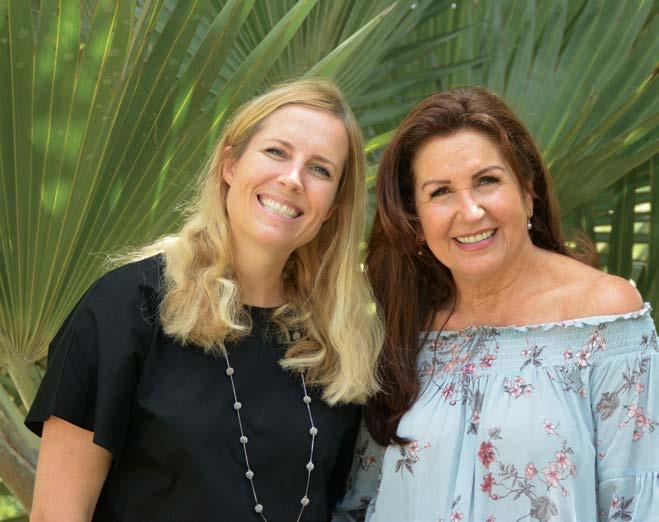Is blockchain the solution to Caribbean de-risking?

The tokenised securities revolution
Sea turtle conservation high on the agenda
The islands’ iconic landscapes and beaches as never seen before
Issue 2 • OctOber 2018




II welcome this second edition of Antigua & Barbuda | THE CITIZEN which is intended to introduce you to our country and make the decision to invest and become a citizen of Antigua & Barbuda easier. This and future editions will present engaging themes of interests to our stakeholders including business and culture while showcasing the magnificent island lifestyle our beautiful twin-island state offers.
Antigua & Barbuda is a beautiful, tropical island-country inhabited by about 100,000 friendly, welcoming people, and encircled by 365 white-sand beaches. Hotels dotting the shoreline serve as the engine of development, as do cruise ports that welcome the largest vessels in the world. Each year, hundreds of thousands of cruise passengers will disembark for a day; many will return as overnight guests in the hotels to enjoy the beauty more fully.
In April each year, and for 50 continuous years since 1967, Antigua hosts its Annual Sailing Week. More than 100 tall ships from as far away as Australia compete in multiple races over a seven-day period. The regatta draws thousands of onlookers to the venues, party-goers to the beaches and inquisitive aficionados to the historic Nelson’s Dockyard. The sheltered 17th century dockyard was once the center of operations of the British Navy, when that nation ruled the waves. It has been preserved for future generations to enjoy the magnificence of British naval architecture in the Caribbean.
Antigua & Barbuda is a wonderful place to visit and to live. It is a magnificent piece of nature’s work in a corner of the world that is so beautiful. I invite you to examine our Citizenship by Investment Program and experience the joy and convenience which many have experienced. Welcome!
 Honourable Gaston Browne Prime Minister
Honourable Gaston Browne Prime Minister


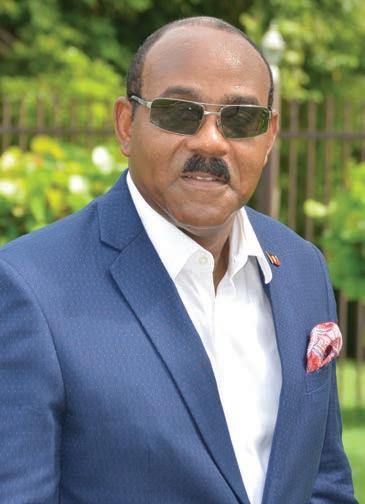
03 ISSUE 2 • OCTOBER 2018
welcome
“Antigua & Barbuda is a wonderful place to visit and to live. It is a magnificent piece of nature’s work in a corner of the world that is so beautiful.”
Barbuda&antigua
World Heritage Site of Nelson’s Dockyard. Our crystal-clear waters, plentiful marine life and shipwrecks also attract snorkelers and divers alike with the unique Sting Ray City providing an unforgettable experience. In season, why not try out our excellent kite surfing along our unspoilt north-eastern coast.
Our beautiful Caribbean islands of Antigua & Barbuda are part of the Leeward Islands in the Lesser Antilles. Our history goes back thousands of years, and we are now an independent member state of the Commonwealth as well as a member of the United Nations, CARICOM and the Organization of American States, among many other international organisations.
Our year-round tropical climate tempered by cooling trade winds and 365 palm-fringed beaches lapped by turquoise waters is home to a multi-cultural population of around 100,000 as well as internationally famous celebrities such as Oprah Winfrey and Eric Clapton who live in some of the most beautiful homes in the Caribbean. Just a four-hour flight from New York and eight hours to Europe, beyond our picture-perfect scenery we have a politically stable government, a growing economy and even a currency which is pegged to the US dollar, making our country the ideal environment in which to live and invest.
Our seas are a hub of international sailing activity, with two of the world’s most famous yacht regattas, Antigua Sailing Week and Antigua Classic Yacht Regatta, taking place each year when the world’s sailing aficionados flock to Falmouth Harbour and our UNESCO
OHowever, we haven’t forgotten about you landlubbers here in Antigua. Come and learn the rules of our national sport of cricket and watch our world-class players at the island’s cricket ground. If golf is your bag, enjoy a round at one of our golf courses or explore our incredible hiking trails, take a zipline in our lush rainforest, cross the island by bike or go horse-riding along our pristine beaches.
For real downtime, get pampered at one of the many luxury spas across our islands to help you unwind or reenergise yourself, or alternatively enjoy one of the many other wellness facilities we have here including yoga and meditation.
For you food lovers, the wealth of fresh fish, seafood and tropical fruits have gifted us with a thriving culinary scene where internationally renowned chefs offer fine dining complimented by local beach bars and restaurants.
According to Henley & Partners’ Global Residence and Citizenship Programmes 2017-2018 report, we were rated the Best Citizenship by Investment (CBI) destination in the Caribbean and the fourth best globally by scoring 61 out of 100 on the Global Citizenship Programme Index. The programmes were evaluated according to 10 indicators including quality of life, visa-free access, processing time and quality of processing, compliance, financial requirements, residence requirements, relocation flexibility, physical visit requirements, and transparency. As a citizen of our paradise islands of Antigua & Barbuda, you can travel visa-free to over 150 countries, including the EU and the Schengen area.
04 The CiTizen

05 ISSUE 2 • OCTOBER 2018
THE CITIZEN, the official publication of the Antigua & Barbuda Citizenship by Investment Unit (CIU), is produced by Select Publishing with the full support of Charmaine Quinland-Donovan, CIU’s Chief Executive Officer and the government of Antigua & Barbuda.
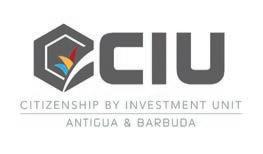
Publisher:

Editor:
Managing Editor:
Creative & Art Director:
Advertising Designer:
Danielle Jacobsen
Susan Brophy
Mauro Perillo
Marta Conceição
Analu Pettinati
Antigua & Barbuda aerial photo (page 5): Tommy Clarke
Photo credits: Tommy Clarke, Andre Phillip, Ben J. Hicks, Simon Ager (Sea Shepherd), Kimberley Hall, Emily Bauman, Zbynek Burival, Jcob Nasyr, Jonathan Smith, Fer Ribes, Danielle Jacobsen, Ferretti Group, Antigua & Barbuda Tourism Authority (ABTA), American Public Power Association (APPA), Shutterstock, Adobe Stock, iStock.
Translations: BCB Soluciones
Repro and printing: Lisgráfica – Impressão e Artes Gráficas
Circulation: 2,500
For all editorial and advertising enquiries, or to order a free copy, contact: select@select-publishing.com www.select-publishing.com
The views expressed in the publication are not necessarily those of the CIU or the publishers. The publishers make every effort to ensure that the magazine’s contents are correct, but cannot guarantee the accuracy of any information published herein, or be held accountable for any errors, omissions, or claims for any damages.
All rights reserved. No part of this work may be reproduced or transmitted in any form or y any means, electronic or mechanical, without prior permission in writing from the publishers.
For Citizenship by Investment Programme (CIP) related enquiries, contact CIU at: info@cip.gov.ag
www.cip.gov.ag
For Investment Migration Council (IMC) membership enquiries, contact the Regional Representative Office at: caribbean@investmentmigration.org www.investmentmigration.org

To access THE CITIZEN:
www.thecitizenantiguabarbuda.com
06 The CiTizen
Susan Brophy Editor
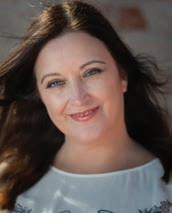
elcome to the second, revamped issue of THE CITIZEN. This and future editions will be a spotlight on themes of interest from Antigua & Barbuda as well as from the wider Citizenship by Investment (CBI) world. We hope you find the new-look magazine both informative and entertaining. Blockchain and cryptocurrency are hot topics around the world today and in this issue, we look at how fintech may be the solution for Caribbean de-risking. We caught up with Nick Cowan, CEO of the Gibraltar Stock Exchange (GSX) and Gibraltar Blockchain Exchange (GBX), who explains how Gibraltar shares characteristics with jurisdictions in the Caribbean and why cooperation can facilitate small nations joining the global tokenised securities revolution. Due diligence is an important issue for the CBI industry. To delve deeper into this subject, we seek the opinion of sector leaders to get an insight into how the region’s CIUs ensure qualified applicants to their CIPs. Our team has greatly enjoyed exploring different facets of this beautiful country by uncovering the little-known history of Barbuda and by capturing the vibrancy of Antigua’s 2018 Carnival.

One of the most recent citizens to the country, Australian banker Alex Thursby, reveals how welcome he’s been made to feel and outlines the islands’ attractiveness for real-estate investment. The two inspirational women at the helm of the prestigious Island Academy tell us how they offer world-class education for future citizens of the global community. And the head of the nation’s CBI unit, Charmaine Donavan, chats to us about what Antigua & Barbuda means to her.
We invite you to admire the unique bird’s-eye view of the islands offered by Tommy Clarke’s incredible aerial photos and discover efforts to safeguard the country’s most VIP visitors – the sea turtles who choose to nest on the islands’ beaches.
On behalf of the Select Publishing team, I thank all those who contributed and helped us with this magazine. It’s been a real pleasure to see so many people of different nationalities, aspirations and dreams working together.
We sincerely hope you enjoy the second issue of THE CITIZEN. Happy reading!
07 ISSUE 2 • OCTOBER 2018
letter editor’s
cont ribu to rs
Karen Kelly
She has 10 years of experience in the immigration, Citizenship & Visa (iCV) Practice including due diligence management, training program development, and a large-scale Citizenship by investment programme review.
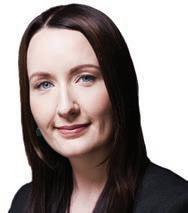
Russell Scarcella
Brings more than 20 years of legal and risk management consulting and advisory experience assisting clients in due diligence and operational risk programs. he’s provided investigative due diligence consulting services to foreign governments with respect to immigration and citizenship programmes.

Stephen J. First
One of the citizenship investment industry’s most respected legal consultants. he has provided advice to clients and governments in Canada and the Caribbean, and has some of the world’s highest expertise in the legal and processing components of international citizenship investment programmes.
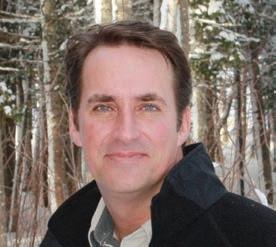
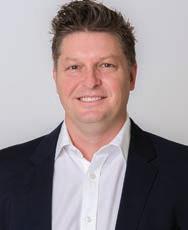
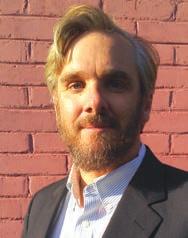
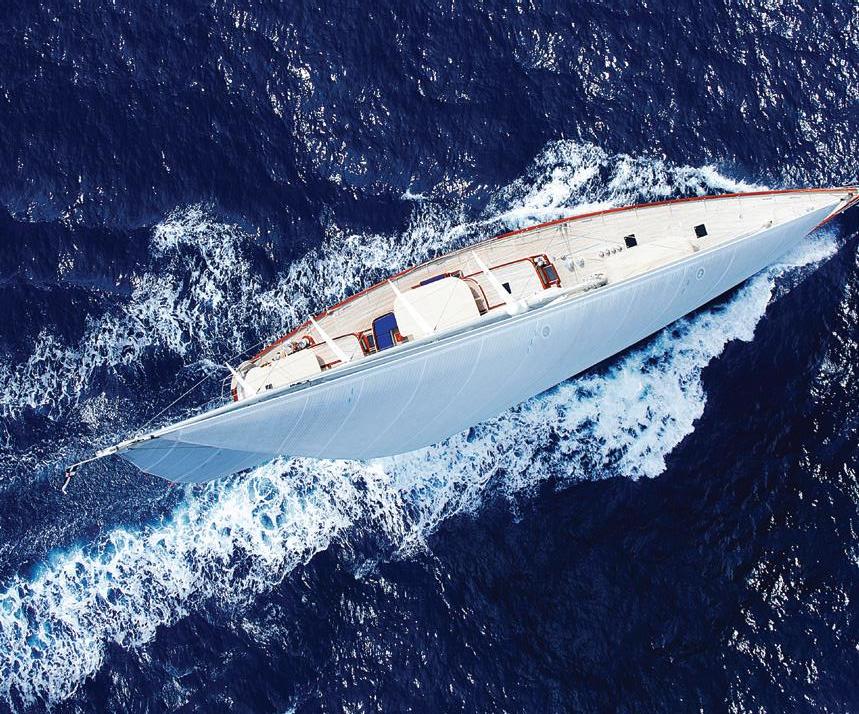
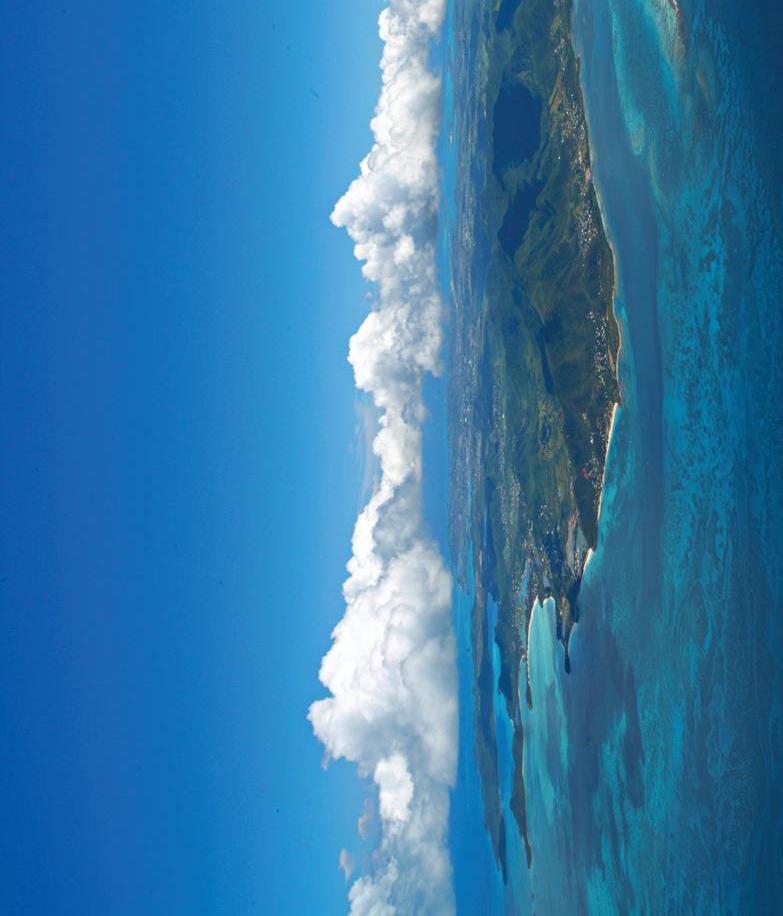
Bobby Williams
Former officer of the United nations Secretariat who now works as an independent consultant focused on technology strategy and iCT for Development issues in the Caribbean region.
Heyrick Bond Gunning
Joined S-RM in 2007. Before, he was the MD of Security Consulting for Kroll, where he was also head of Kidnap for Ransom. he has a BA in Geography and Archaeology from the University of Manchester and is an inSeAD alumni.
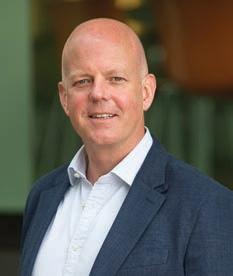
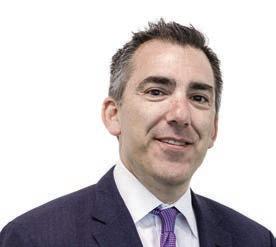
Teresa Esmezyan
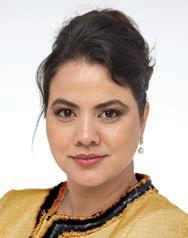
A Montreal-based biologist turned freelance writer, editor and published poet. her storytelling is crafted through the voice and lens of a global citizen.
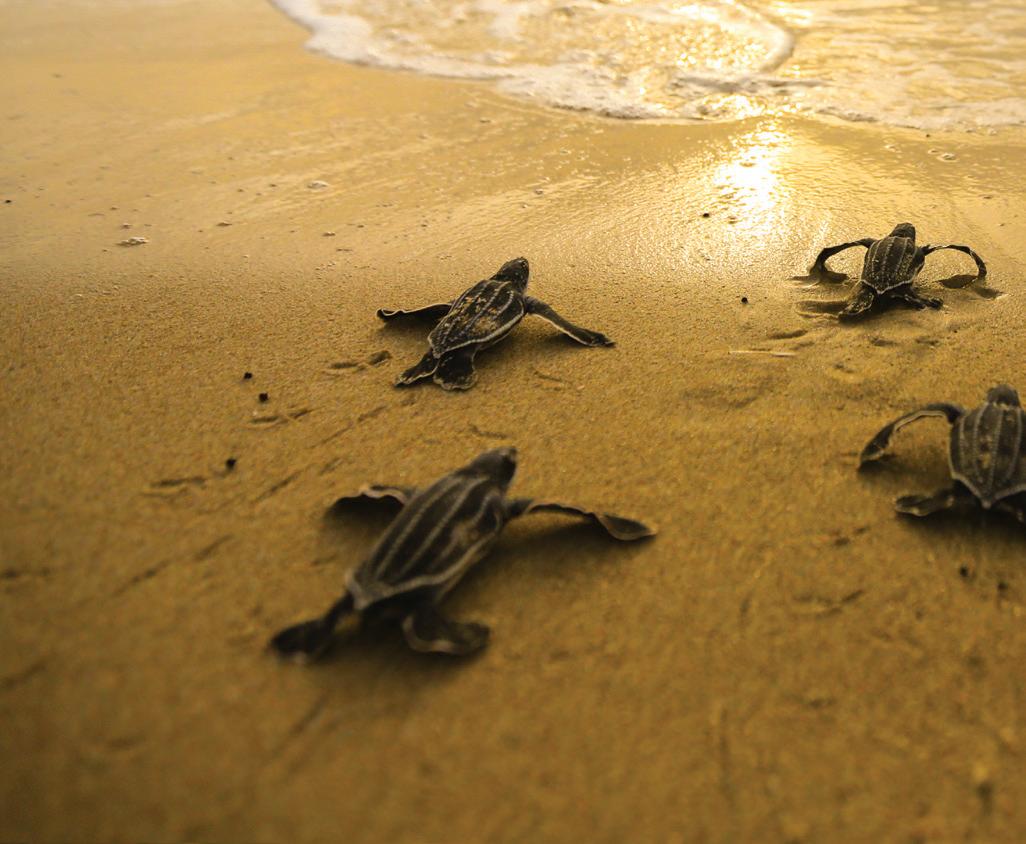
Brian Dobbin
Founded Citizens international in 2011. he became familiar with citizenship investment in the 1990s in Canada. Then lobbied in europe and the West indies for CiP creation and understands intimately the benefits and investment impact of international citizens.
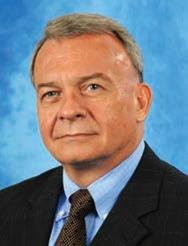
Christopher Willis
MD of Latitude Consultancy and is responsible for operations in the Americas and Caribbean. he has been involved in the immigration industry since 1995 and is a member of several sectorial associations including the investment Migration Council (iMC).
Giselle Bru
With more than a decade’s experience in second citizenship planning, real estate sales and consultancy, government liaison, protocol and diplomatic support, Giselle Bru is the COO of PassPro immigration.
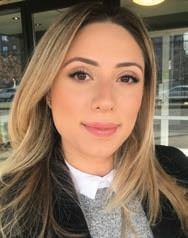
08 The CiTizen
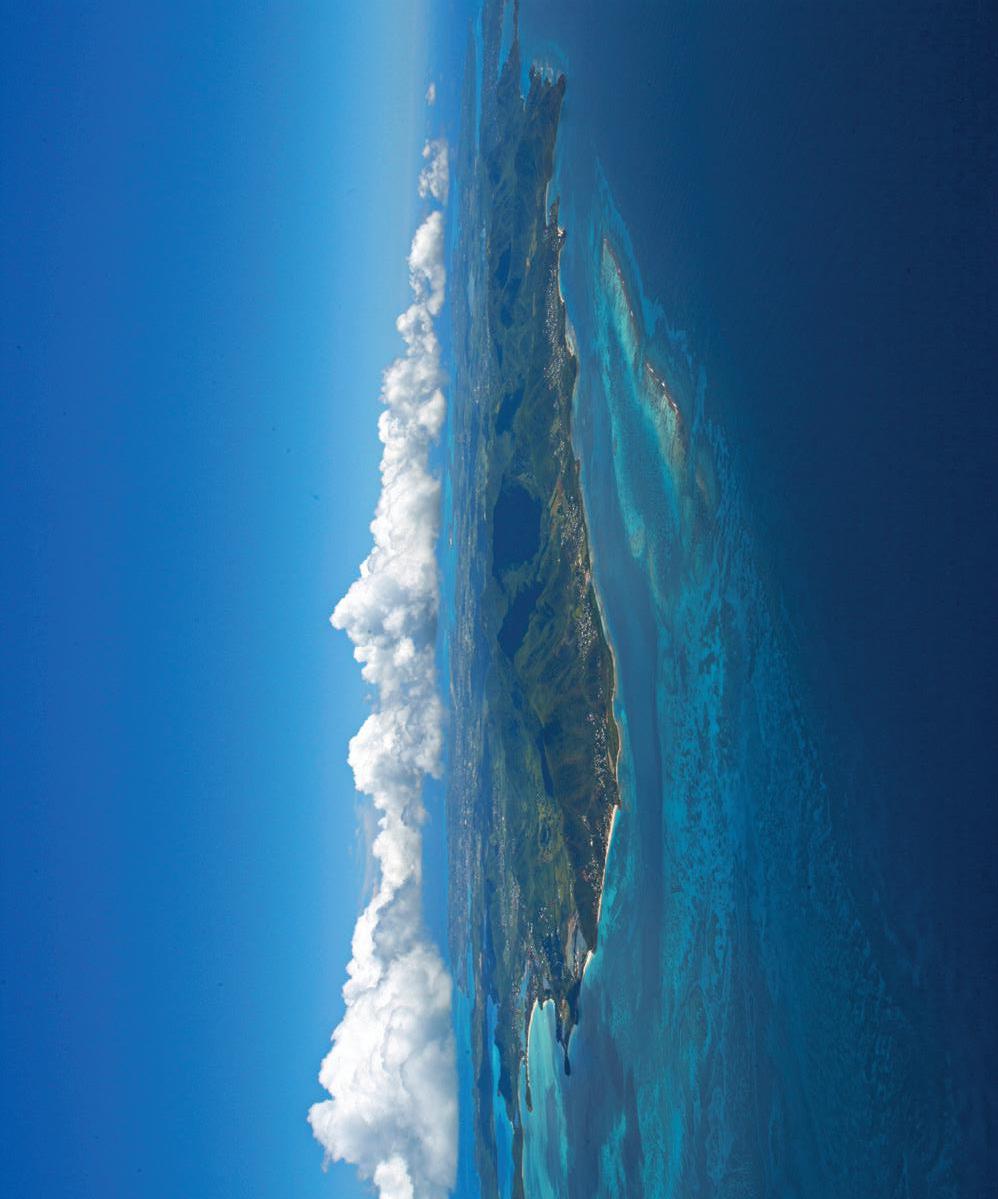
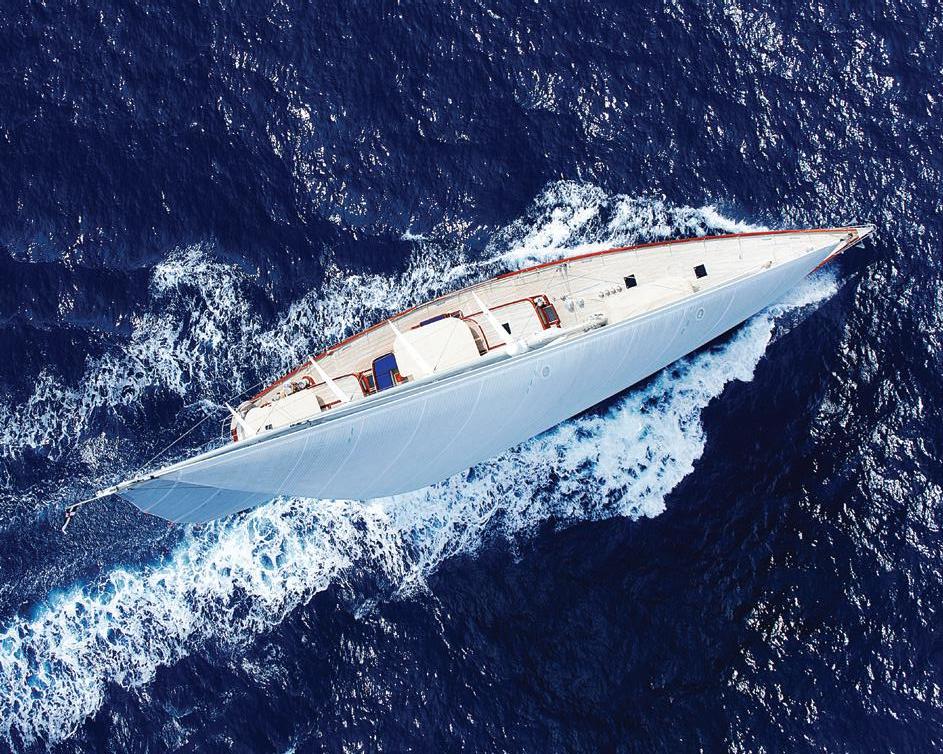


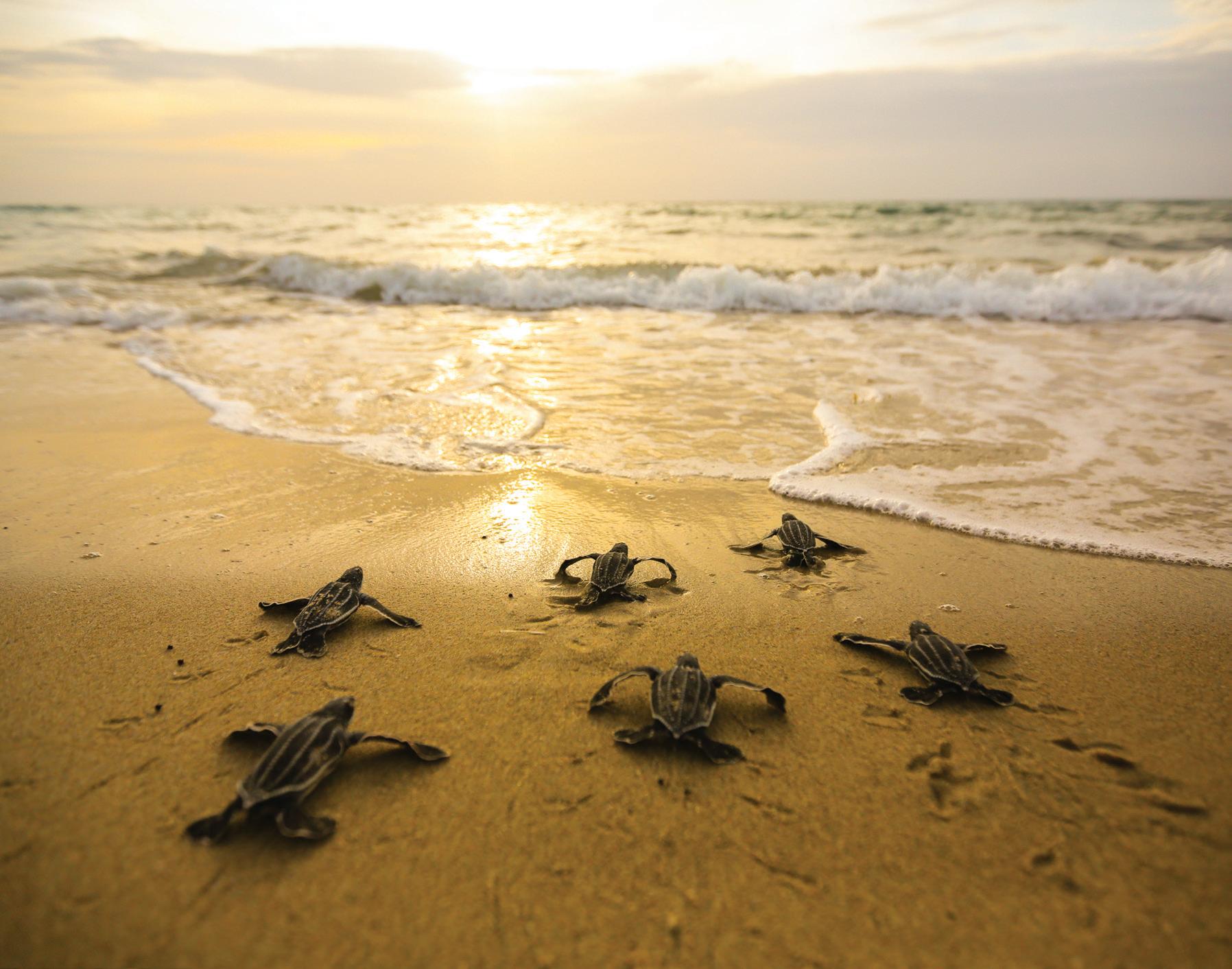
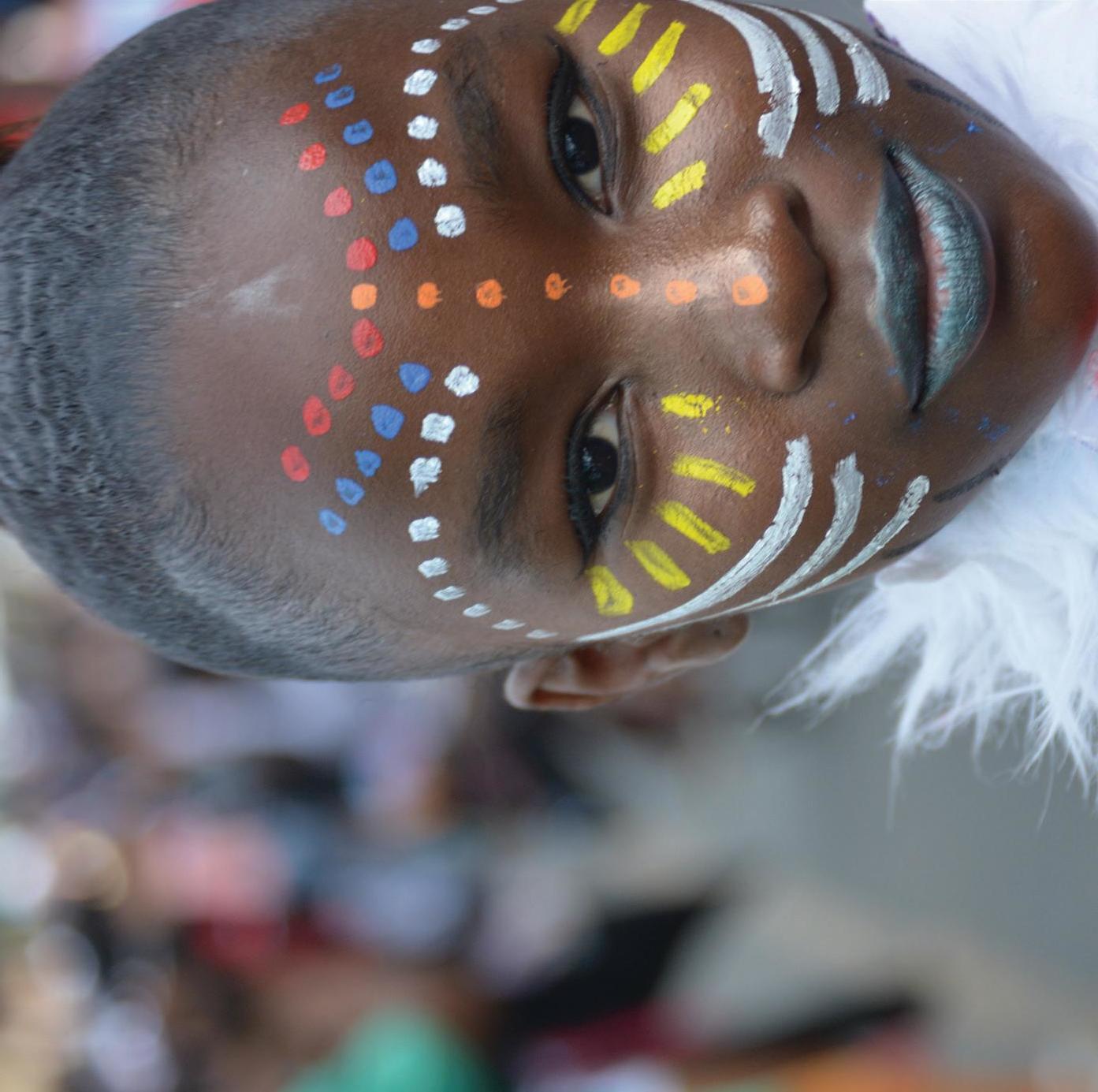
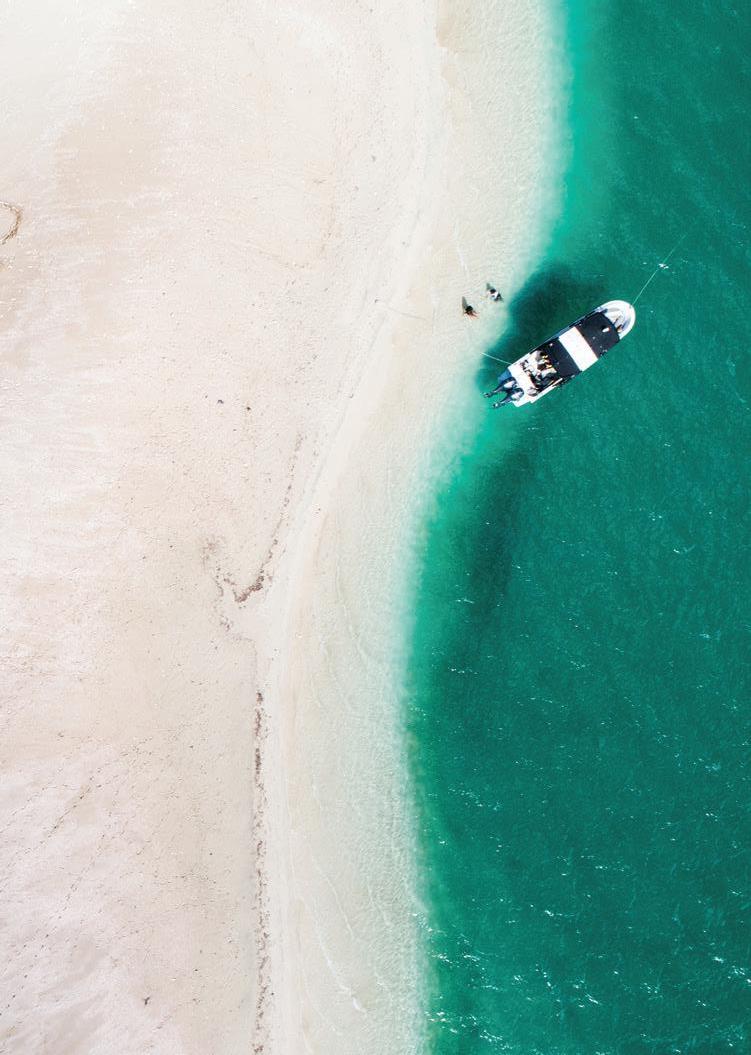

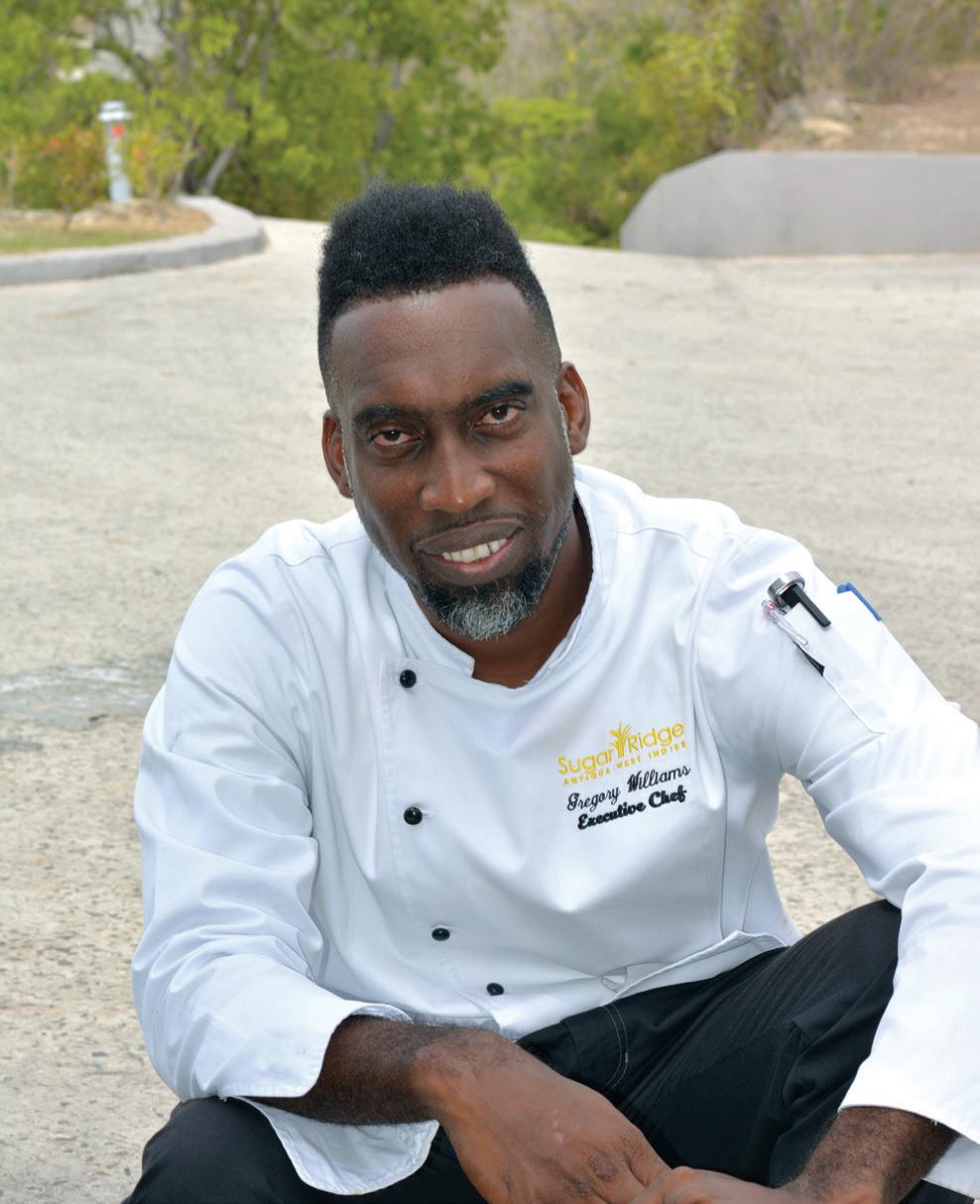
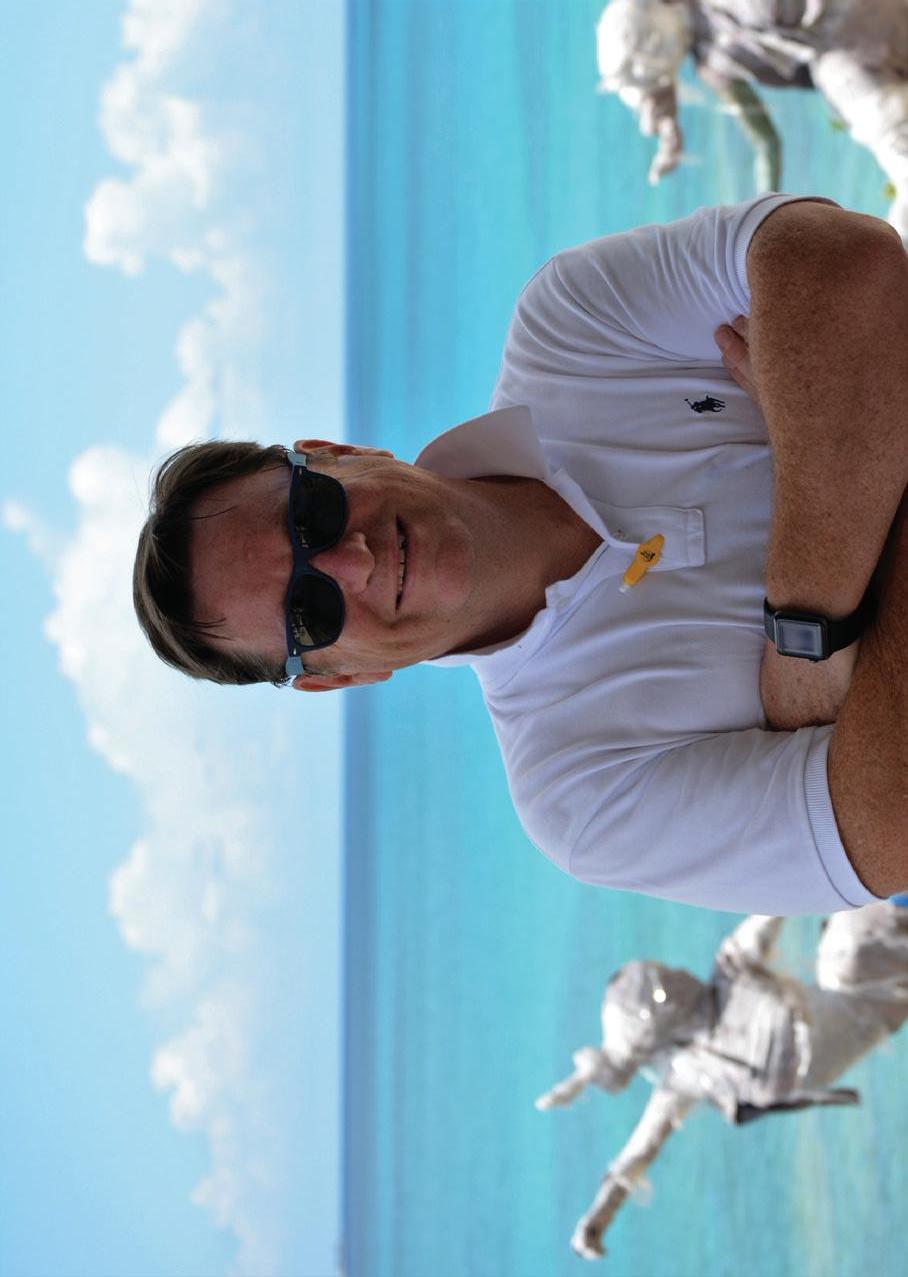
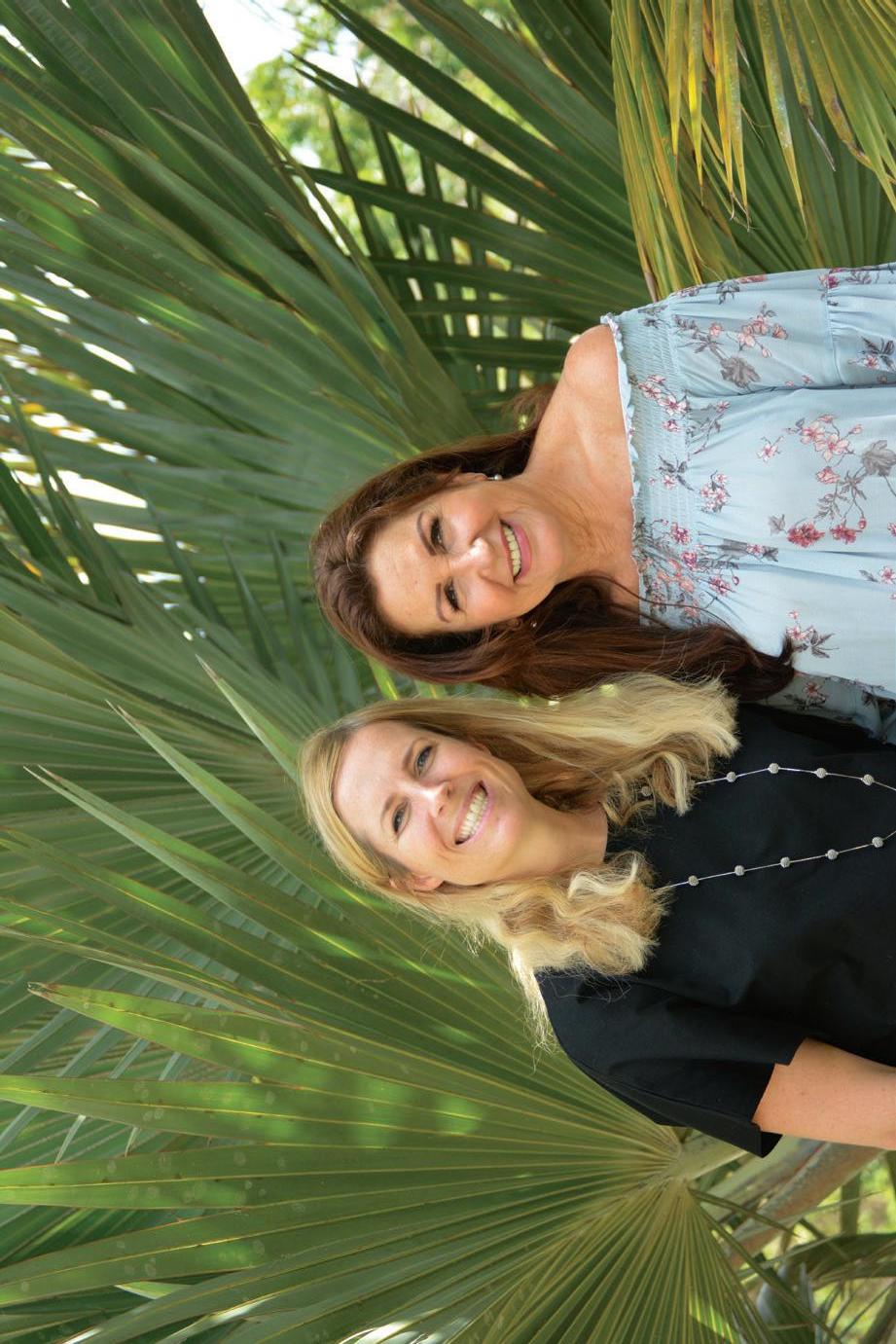
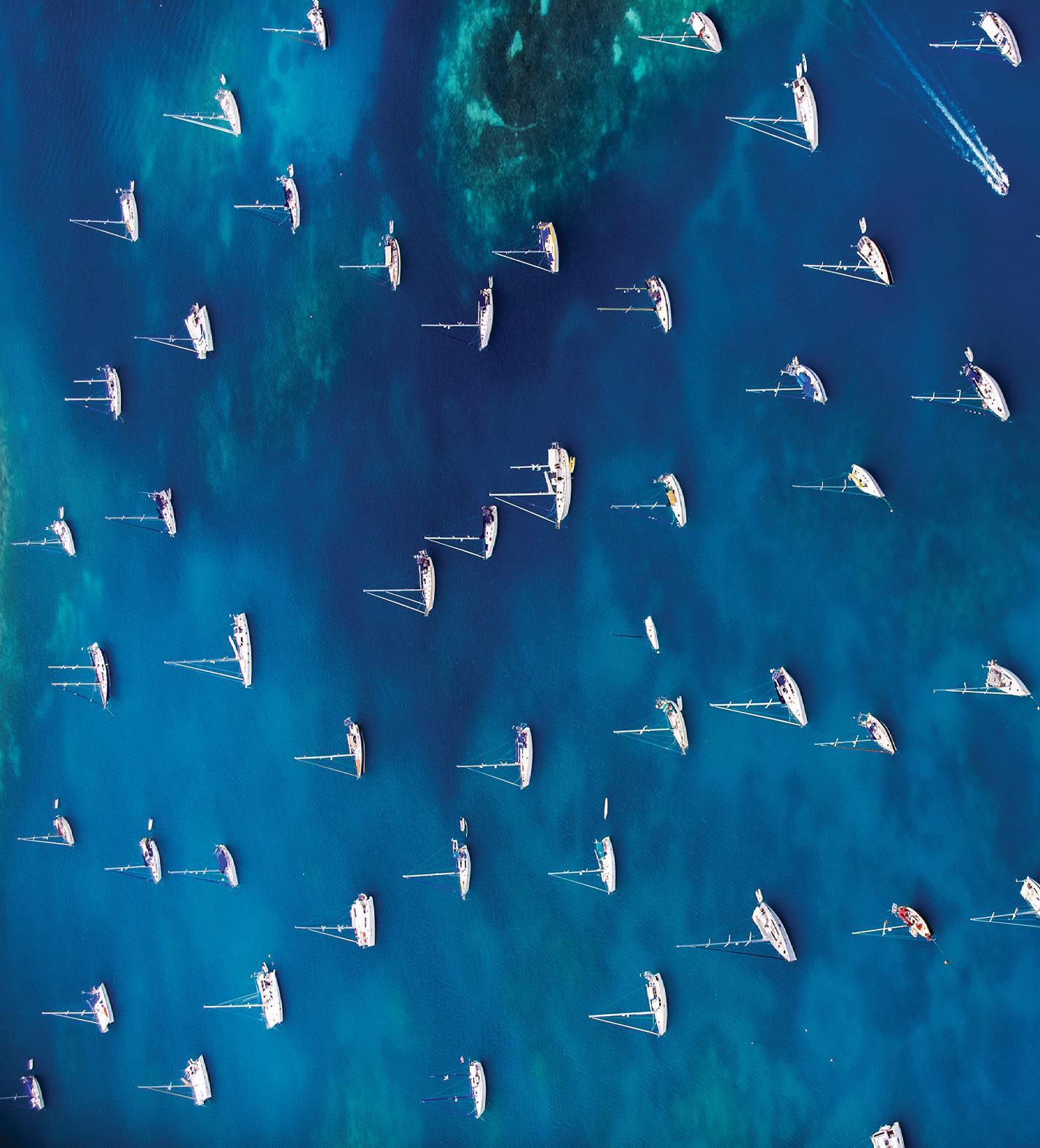
60 PhotograPhy 68 FoCUs on edUCatIon A world-class education Cover story Blockchain, the solution to Caribbean de-risking? why it’s a good thing thoughtleadership guestswriters:HeyrickBondGunning(72) RussellScarcella&KarenKelly(74) GiselleBru(76)StephenJ.First(110) CIPInformation CIPFAQYachtoftheQuarter NewCitizenArts&Culture BarbudaChefoftheQuarter ConservationWorthNoting 1517 78849097101106114
Focus
What makes Antigua & Barbuda unique?
As CEO of the Citizen by Investment Unit (CIU), you can usually find Charmaine Donovan running from meeting to meeting and processing applications for the programme. We caught up with her during a rare quiet moment in her hectic schedule to get her personal take on what Antigua & Barbuda means to her.
With its breathtaking coastline, lush hillsides, rainforest and lagoons, and a beach for every day of the year, Antigua & Barbuda is in every way, paradise. The islands are renowned as world-class sailing destinations thanks to calm Leeward waters and trade winds. Antigua plays host to a number of major sailing regattas and shows year round to include the Antigua Classic Yacht Regatta and Antigua Sailing week. Our culture is a rich blend of traditions drawn from all corners of the globe, with a modern and cosmopolitan flair. Everybody feels at home in Antigua & Barbuda. We’re always the gracious hosts who make you feel like family. From our food and festivities to our adept commercial service providers and traders, living and working in Antigua is a breeze.
How do you define the heart & soul of the country?
Antiguans & Barbudans are who define the uniqueness of our country. Perhaps it is as a consequence of our continual transformation as a people – in our social groups and in our economic experiences – but the heart and soul of the country is our collective perspective that to embrace and surmount every challenge, confident that hard work and commitment to make our mark, will always result in the success we envision.
What is your personal favorite tradition?
Mocko Jumbi – “Mocko” a word derived in Central America meaning healer and “Jumbi” often referring to a ghost or spirit. The skill required to balance on the stilts while performing in designed costumes no doubt “heals the spirit” attributing to their infectious merriment.
Would you consider Antigua & Barbuda a safe place to raise a family?
Without fear of contradiction, I can tell you that there are few places safer. In fact, we come from a tradition of such trust and neighbourliness, that it was unusual for families to actually lock their doors. Of course, times have changed and so matters of personal safety and security are given the appropriate attention, but there is not much need for concern. Our law enforcement agencies are proactive, our neighbourhood watches are vigilant, but most importantly, our people are kind.
10 The CiTizen
Will the opening of a new campus of the University of the West Indies in St. John’s next year consolidate Antigua as a knowledge centre?
Antigua & Barbuda has long been a leader in the field of education and the Government’s plans for establishing the fourth landed campus of the University of the West Indies are quite simply a continuation of this tradition. In the earliest experiences of the islands with increasing access to formal education, Antigua & Barbuda served as a teacher training college for the Lesser Antilles, from the British Virgin Islands in the north to Grenada in the south. In addition to the two medical schools currently in operation and the Hospitality Training Institute, tertiary level training is widely available at other institutions. From IT and Business at the Antigua & Barbuda International Institute of Technology, to the disciplines of Nursing, Teacher Education, Engineering, Pharmacy, Business and Advanced Levels, the country’s focus on educational development is evident.
Do you consider Antigua well connected?
We’ve been known as the “heart of the Caribbean” for decades for that very reason – the ease with which you can connect with the rest for the world from Antigua. Our twin-island nation was among the first in the Eastern Caribbean to boast an international airport and continues to serve as a travel hub for many major carriers. Our geographic location, infrastructural development, ICT network and superior human resources position Antigua & Barbuda as an attractive location for investment and business development.
What sort of FDI would you like to see coming to the country?
We’re open to viable, high-growth business concepts with the potential to further transform the economy. With tourism as our main driver of economic activity, we are now focused on augmenting the visitor experience with value-added attractions, including the development of alternative stay over offerings such as eco-lodges. Investment in medical tourism forms a part of the country’s investment strategy. We also have great interest in welcoming investment in clean energy, automation, mobile app development and graphic design, film and e-publishing as well as robotics.
The Caribbean dictionary mentions a saying from Antigua: Moon run faas but day ketch im (Your actions and misdeeds will eventually have consequences). What is your favourite local proverb and saying?
Crappo nah jump an he pickney walk – this simply means that children usually have similar physical and nonphysical characteristics to their parents.
A final word of wisdom or your motto or your belief… I believe you get out of life what you put into it. Therefore, it behooves us to be true to ourselves and to be honest and impartial in our dealings with others.
Antigua & Barbuda has been able to progress significantly in spite of the many challenges encountered over the years. We are determined to maintain this upward trajectory as we endeavour to preserve not only its prestige, but the pride that resounds from its people throughout the nation.

11 ISSUE 2 • OCTOBER 2018

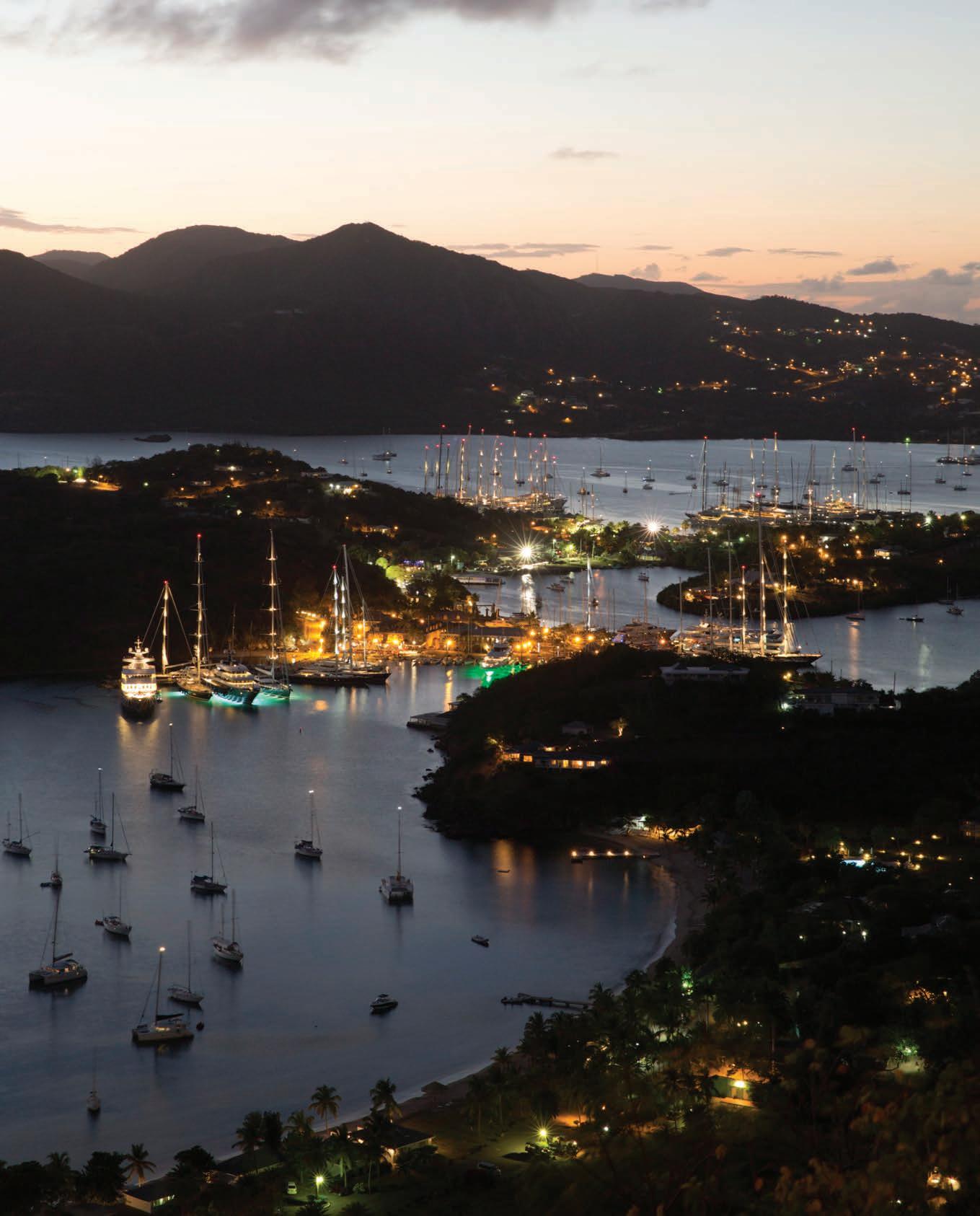
Embracing the future.
For 35 years, Global Bank of Commerce, Antigua’s oldest institution providing wholesale and international financial services, has offered its clients the perfect balance of world class banking, security and convenience.
Antigua is an independent and sovereign jurisdiction since 1981, and is well positioned to manage the portfolios of the more selective investor, who may also qualify to obtain second citizenship via a regulated process.
Contact us and learn how we can support your financial goals, today and tomorrow. Global

Wholesale Banking
Private Banking
Wealth Management
Portfolio Services
Card Programmes
Citizenship Services
Tel: (268) 480-2240 Fax: (268) 462-1831 email: customer.service@gbc.ag www.globalbankofcommerce.com
Commerce Centre
Parham Road
Box W1803
John’s, Antigua, West Indies
Old
P.O.
St.
Innovating now.
14 The CiTizen
Global mobility means freedom, whatever your passions and wherever you want to pursue them
a ntigua & Bar B u Da Citizenship by investment program
There are three types of investment which will qualify you for citizenship in the paradise islands of Antigua & Barbuda. As an applicant, you can choose between a contribution to the National Development Fund (NDF), purchase property in a pre-approved real estate development, or invest in an approved business venture. As a candidate, you must be over 18 years of age, hold no criminal record and have excellent health.
Upon successful application, you and your family will obtain a lifetime citizenship and enjoy travelling visa-free to over 150 countries.
ContriBution to the national Development FunD
The non-profit NDF was established to fund incomegenerating public sector projects, innovation in entrepreneurship and approved charitable investments. It is audited by an internationally recognized accounting firm and reports on its status are published each year.
If this is your investment of choice, you are invited to contribute USD 100,000 to the NDF, which is a one-time contribution for a family of four. Processing fees will be applied as indicated below.
For a single applicant, or a family of 4 or less:
• USD 100,000 contribution
Processing fees: USD 25,000
For a family of 5 or more:
• USD 125,000 contribution
Processing fees: USD 15,000 for each additional dependent over four people
investment in real estate
You and your family can obtain citizenship by purchasing a property in Antigua & Barbuda. You may also benefit from rental revenue with this investment. To qualify for citizenship under this option, you must invest in a designated, officially approved real estate development worth at least USD 400,000. Until 31st October, 2018, two (2) applications from related parties can make a joint
citizenship investment program
by
investment, with each applicant investing a minimum of USD 200,000 in order to qualify. All processing and due diligence fees remain unchanged.
You must own the property for a minimum of five years before selling it. Processing fees will be applied as indicated below.
For a single applicant, or a family of 4 or less:
• Processing fees: USD 50,000
For a family of 5 or more:
• Processing fees: USD 15,000 for each additional dependant
Business investment
The Citizenship by Investment Unit (CIU) after consulting with the Antigua & Barbuda Investment Authority (ABIA) approve businesses, whether existing or proposed, for the purposes of investment in business under the Citizenship by Investment Program (CIP).
There are two business investment options:
• Invest at least USD 1,500,000 in a pre-approved business.
• Alternatively, at least two applicants can propose to make a joint investment in an approved business with a total investment of at least USD 5,000,000. Each investor must contribute at least USD 400,000 to the joint investment.
For a single applicant, or a family of 4 or less:
• Processing fees: USD 50,000
For a family of 5 or more:
• Processing fees: USD 15,000 for each additional dependant
Please note that all three options also include a due diligence fee of USD 7,500 for the main applicant and spouse, USD 2,000 for any dependent child between 12-17 years of age and USD 4,000 for any dependent child/parent between 18-28 and 58 plus years.
15 ISSUE 2 • OCTOBER 2018
16 The CiTizen Offer your family mobility insurance in today’s ever-changing geopolitical landscape
Ant I gu A & B A r B u DA Citizenship by Investment Program Frequently Asked Questions
Why does Antigua & Barbuda have a citizenship by investment program?
The program was introduced to promote economic growth, attract real estate development, increase foreign direct investment to the country, support the development of infrastructure and provide for a sustainable future.
How many visa-free countries can I travel to as a citizen of Antigua & Barbuda?
You can travel to more than 150 countries without requiring a visa, including the EU and Schengen countries, Hong Kong and Singapore.
‘What is the processing time?
Processing your application should take from 3 to 6 months.
Who can apply for citizenship?
To apply for the citizenship program in Antigua & Barbuda, you must be at least 18 years of age, be of a good character with no criminal record, and have good health.
Do I need to speak English to apply for citizenship? You don’t need to speak English to be an applicant.
Who can be included on the application? Your dependent children under 28 and dependent parents over 58 can be included within the application.
How do you conduct the due diligence and vetting of applicants?
There are no interviews. However, all applicants undergo rigorous screening prior to consideration by the Citizenship by Investment Unit. Complete files will be forwarded to an international, unbiased thirdparty due diligence service provider who will conduct detailed background checks on all applicants before the application is approved.
What happens once my application has been accepted?
A certificate of registration of citizenship will be issued and submitted to the passport office. Your authorized agent/representative will forward your passports and Citizenship Certificate to you.
Do I need to travel to Antigua & Barbuda to complete the process?
The application process can be made from your country of residence. Once your application is successful and you have received your passport, you must travel to Antigua & Barbuda to take your oath or affirmation of allegiance. You are entitled to take up full-time residence in Antigua & Barbuda at any time you wish.
Does Antigua & Barbuda recognise dual citizenship?
There are no restrictions on dual citizenship in Antigua & Barbuda.
For how many years will my passport be valid for?
The passport will be valid for a period of 5 years and is renewable for a period of 10 years thereafter, provided that the requirements are met, which includes spending a minimum of five days in the country during this period after becoming a citizen.
Can I invest with my Bitcoins or other cryptocurrencies?
This is in the pipeline but has not yet been established.
In addition to the citizenship by investment program does Antigua & Barbuda have a tax residency program?
Antigua & Barbuda does not currently offer a tax residency program.
For any additional questions, please contact an authorized representative, licensed agent or the CIU directly.
17 ISSUE 2 • OCTOBER 2018
citizenship investment program by
18 The CiTizen لىع لقنتلا ةيناكمإ ينعت يلماعلا ديعصلا تناك ماهم ،ةيرحلا بغرت مانيأو كتاياغ .اهتقحلام في
19 ISSUE 2 • OCTOBER 2018
لىع لوصحلل ًلاهؤم كلعجتس يتلا تارماثتسلاا نم عاونأ ةثلاث كانه كنكيم ،بلطلا ميدقت دنع .ادوبرابو اوغيتنأ ةيسودرفلا رزجلا ةيسنج ءاشر وأ ةيمنتلل ينطولا قودنصلا حلاصل ةمهاسم ميدقت ينب رايتخلاا في رماثتسلاا وأ اقبسم ةدمتعلما ةيراقعلا تاعومجلما ىدحإ في ةيكلم نوكي لاأو اماع 18 كرمع زواجتي نأ بجي ،حشرمكو .دمتعم يراجت عوشرم .ةزاتمم ةحصب عتمتت نأو ةيئانج قباوس كيدل ةايحلا ىدم ةيسنجلا لىع كتسرأو تنأ لصحتس ،كبلط حاجن دنع ادلب 150 نم ثركأ لىإ ةيرشأت نودب رفسلاب نوعتمتستسو ةيمنتلل ينطولا قودنصلا حلاصل ةمهاسم ميدقت ليومتل ،حبرلل فدهي لا يذلا ،ةيمنتلل ينطولا قودنصلا سيسأت مت تارماثتسلااو لماعلأا ةداير في راكتبلااو لخدلل ةردلما ماعلا عاطقلا عيراشم ايلود اهب فترعم ةبساحم ةكشر لبق نم هتاباسح عجارتو .ةدمتعلما ةييرخلا .ايونس هعضو نع ريراقت شرنتو ميدقت كنم بلطيف ،تارماثتسلاا نم عونلا اذه لىع كرايتخا عقو اذإ يهو ،ةيمنتلل ينطولا قودنصلل كييرمأ رلاود 100.000 اهردق ةمهاسم .دارفأ ةعبرأ نم ةنوكم ةسرأ لك نع ةدحاو ةرم مدقت ةمهاسم نع ةرابع .هاندأ حضوم وه ماك ةجلاعلما موسر قيبطت متيسو :لقأ وأ دارفأ 4 نم ةنوكم ةسرأ وأ دحاو بلط مدقلم كييرمأ رلاود 100.000 اهردق ةمهاسم كييرمأ رلاود 25.000 :ةجلاعلما موسر :ثركأ وأ دارفأ 5 نم ةنوكم ةسرلأ كييرمأ رلاود 125.000 اهردق ةمهاسم • ةعبرأ لىع فياضإ لاعم صخش لكل كييرمأ رلاود 15.000 :ةجلاعلما موسر دارفأ تاراقعلا في رماثتسلاا اوغيتنأ في راقع ءاشر للاخ نم ةيسنجلا لىع لوصحلا كتسرأو تنأ كنكيم اذه لضفب راجيلإا تاداريإ نم ةدافتسلاا اضيأ كنكيم ماك .ادوبرابو ،رايخلا اذه بجوبم ةيسنجلا لىع لوصحلل ًلاهؤم نوكت كيلو .رماثتسلاا ّلقت لا ايمسر ةدمتعمو ةنيعم ةيراقع ةعومجم في رماثتسلاا كيلع بجي لولأا نيشرت/ربوتكأ 31 ةياغ لىإ .كييرمأ رلاود 400.000 نع اهتميق ءارجلإ ةقلاع اوذ نافرط ماهمدقي )2( يننثا ينبلط جمد نكيم ،2018 200.000 نع لقي لا اغلبم فرط لك رمثتسي نأ لىع ،كترشم رماثتسا قيرط نع ادوبرابو اوغيتنأ ةيسنج لىع لوصحلا رماثتسلاا جمانرب ةبجاولا ةيانعلاو ةجلاعلما موسر عيمج لظتو .ًلاهؤم نوكي كيل كييرمأ رلاود .يريغت نود متيسو .هعيب لبق لقلأا لىع تاونس سمخ ةدلم راقعلا كلاتما كيلع بجيو .هاندأ حضوم وه ماك ةجلاعلما موسر قيبطت :لقأ وأ دارفأ 4 نم ةنوكم ةسرأ وأ دحاو بلط مدقلم كييرمأ رلاود 50.000 :ةجلاعلما موسر • :ثركأ وأ دارفأ 5 نم ةنوكم ةسرلأ فياضإ لاعم صخش لكل كييرمأ رلاود 15.000 :ةجلاعلما موسر • يراجتلا رماثتسلاا رماثتسلاا ةئيه عم رواشتلا دعب - رماثتسلاا قيرط نع ةيسنجلا ةدحو موقت وأ ةئماق تناك ءاوس ،ةيراجتلا عيراشلما لىع ةقفاولماب - ادوبرابو اوغيتنأ في نع ةيسنجلا جمانرب بجوبم ةيراجتلا لماعلأا في رماثتسلاا ضارغلأ ،ةحترقم .رماثتسلاا قيرط :يراجتلا رماثتسلال نارايخ كانه ةدمتعم يراجت عوشرم في كييرمأ رلاود 1.500.000 نع لقي لا ام رمثتسا • اقبسم في كترشم رماثتسا ءارجإ حاترقا لقلأا لىع ينفرطل نكيم ،كلذل ليدبك • .كييرمأ رلاود 5.000.000 نع لقي لا ليماجإ غلببم دمتعم يراجت عوشرم كييرمأ رلاود 400.000 نع لقي لا غلببم ةمهاسلما رمثتسم لك لىع بجيو .كترشلما رماثتسلاا في :لقأ وأ دارفأ 4 نم ةنوكم ةسرأ وأ دحاو بلط مدقلم كييرمأ رلاود 50.000 :ةجلاعلما موسر • :ثركأ وأ دارفأ 5 نم ةنوكم ةسرلأ فياضإ لاعم صخش لكل كييرمأ رلاود 15.000 :ةجلاعلما موسر • ةيانعلا موسر اضيأ لمشت ةثلاثلا تارايخلا عيمج نأ رابتعلاا ينعب ذخلأا ىجري هتجوز/هجوزو ة/سييئرلا بلطلا ة/مدقلم كييرمأ رلاود 7500 غلببم ةبجاولا 4000و اماع 17و 12 ينب هرمع حواتري لاعم لفط يلأ كييرمأ رلاود 2000و زواجتي مأ/بأ وأ اماع 28و 18 ينب هرمع حواتري لفط يلأ كييرمأ رلاود .اماع 58 اهرمع/هرمع
citizenship investment program by
20 The CiTizen لابلا ةحار كتسرأ حنما ةيناكمإ اهحيتت يتلا عاضولأا لظ في لقنتلا ةيلاحلا ةيسايسويجلا .رارمتساب ةبلقتلما
21 ISSUE 2 • OCTOBER 2018
.رماثتسلاا قيرط نع ةيسنجلا ةدحوب ةشرابم وأ هل صخرم ليكو وأ ضوفم لثمبم لاصتلاا ىجري ،ةلئسلأا نم ديزلم ؟رماثتسلاا قيرط نع ةيسنجلا جمانرب ادوبرابو اوغيتنأ كلتم اذالم ةيراقعلا ةيمنتلا باطقتساو يداصتقلاا ومنلا زيزعتل جمانبرلا دماتعا مت ينمأتو ةيتحتلا ةينبلا ريوطت معدو دلابلا في شرابلما يبنجلأا رماثتسلاا ةدايزو .مادتسم لبقتسم اوغيتنأ نطاومك ةيرشأت نود اهيلإ رفسلا يننكيم يتلا نادلبلا ددع مك ؟ادوبرابو كلذ في ابم ،ةيرشأت لىإ ةجاحلا نود ادلب 150 نم ثركأ لىإ رفسلا كنكيم .ةروفاغنسو غنوك غنوهو نغنشو بيورولأا داحتلاا نادلب ؟كبلط ةجلاعم قرغتست تقولا نم مك .رهشأ 6و 3 ينب ام كبلط ةجلاعم قرغتست ؟ةيسنجلا لىع لوصحلل بلطب مدقتلا هنكيم نم كرمع زواجتي نأ بجي ،ادوبرابو اوغيتنأ في ةيسنجلا جمانبرل ًلاهؤم نوكتل عتمتت نأو ةيئانج قباوس كيدل نوكي لاأو قلخلا نسحب مستت نأو اماع 18 .ةديج ةحصب ؟ةيسنجلا لىع لوصحلا بلطل ةيزيلجنلإا ةغللاب ثدحتأ نأ يغبني له .بلطلاب مدقتلل ةيزيلجنلإا ةغللاب ثدحتلا لىإ ةجاحب تسل ؟بلطلا في هجاردإ نكيم نم اماع 28 نع مهرماعأ لقت نيذلا ينلاعلما كلافطأ بلطلا في جردت نأ كنكيم اماع 58 زواجتي ماهرمع ناك اذإ ينلاعلما كيدلاوو ؟تابلطلا صحفو ةبجاولا ةيانعلا نورجُت فيك قيقد صحفل بلطلاب ينمدقتلما عيمج عضخي ،كلذ عمو .تلاباقم يرجن لا لاحت .رماثتسلاا قيرط نع ةيسنجلا ةدحو لبق نم مهفلم ةسارد لبق قيرط نع ادوبرابو اوغيتنأ ةيسنج لىع لوصحلا رماثتسلاا جمانرب ةرركتم ةلئسأ ةبجاولا ةيانعلا تامدخ مدقت ةزاحنم يرغ ةيلود ةهج لىإ ةلماكلا تافللما .بلطلاب ينمدقتلما تايفلخ نأشب ةلصفم تايرحت يرجتس يتلاو ؟يبلط لوبق دعب ثدحي اذام .رفسلا تازاوج بتكم لىإ اهيمدقتو ةيسنجلا ليجست ةداهش رادصإ متيس ةيسنجلا ةداهشو رفسلا تازاوج لاسرإب ضوفلما كلثمم/كليكو موقيسو .كيلإ كب ةصاخلا ؟ةيلمعلا لماكلإ ادوبرابو اوغيتنأ لىإ رفاسأ نأ بجي له ،كرفس زاوج كيقلتو كبلط حاجن دعب .كتماقإ دلب نم بلطلا ءارجإ نكيم كل قحيو .ءلاولا ديكأت وأ ينميلا ءادلأ ادوبرابو اوغيتنأ لىإ رفسلا كيلع بجي .ءاشت ىتم ادوبرابو اوغيتنأ في لماك ماودب ةماقلإا ؟ةجودزلما ةيسنجلاب ادوبرابو اوغيتنأ فترعت له .ادوبرابو اوغيتنأ في ةجودزلما ةيسنجلا لىع دويق دجوت لا ؟لوعفلما يراس يرفس زاوج ىقبيس ةنس نم مك ةدلم ديدجتلل لباق وهو تاونس 5 ةدلم لوعفلما يراس كرفس زاوج ىقبيس مايأ ةسمخ ءاضق لمشت يتلا تابلطتلما ةيبلت ةطيشر ،كلذ دعب تاونس10 .ةيسنجلا لىع لوصحلا دعب ةترفلا هذه للاخ دلبلا في لقلأا لىع تلامعلا نم اهيرغ وأ )Bitcoin( نيوكتيب ةلمعب رماثتسلاا يننكيم له ؟ةماعلما .دعب هذيفنت متي لمو دادعلإا ديق لاز ام رملأا اذه ادوبرابو اوغيتنأ ىدل له ،رماثتسلاا قيرط نع ةيسنجلا جمانرب لىإ ةفاضلإاب ؟ةيبيضرلا ةماقلإل جمانرب .ةيبيضرلا ةماقلإل اجمانرب ايلاح ادوبرابو اوغيتنأ مدقت لا
citizenship investment program by
licensed agents
• Eugene Abbott: eabbott@gcpantigua.com Global Citizenship Partners: www.gcpantigua.com
• McAlister Abbott: mabbott@gcpantigua.com Global Citizenship Partners: www.gcpantigua.com
• Sherfield P. Bowen: sherfield@bowenbowenlaw.com Bowen & Bowen: www.bowenbowenlaw.com
• Leslie-Ann Brissett George: leslieann@lbrissettlegal.com Leslie-Ann Brissett Legal Services: www.lbrissettlegal.com
• Sharon Cort-Thibou: legal@cortandcort.com Turnkey Antigua: www.turnkeyantigua.com
• Gerald R. Daniel: info@macauig.com Macau Investment Group: www.macauig.com
• Carlo Falcone: falconec@candw.ag
• Verlyn L. Faustin: verlyn.faustin@civesmundiinc.com Cives Mundi Inc
• Hollis E. Francis Jr.: info@heflawantigua.com
HEF LAW: www.heflawantigua.com
• T.M. Rufus Gobat: rufus@cariblife.ag Caribbean Lifestyle Services: www.cariblife.ag
• Nigel Gore: nigel@blueprint-development.com Blueprint Development: www.blueprint-development.com
• Jeffrey Hadeed: jeff@conciergeantigua.com Concierge Antigua: www.conciergeantigua.com
• Gaye Hechme: ghechme@ilis.ag Island Living Investment Services Ltd: www.ilis.ag
• Karim Hechme: karim@islandlivingantigua.com Island Living Investment Services Ltd: www.ilis.ag
• Julia Herbert: citizenshipsolutions@icloud.com
• Marian-Barbara Hesse: hesse@bhesseandassociates.com B. Hesse & Associates: www.bhesseandassociates.com
• Radford Hill: r.hill@lawhillandhill.com Hill & Hill Chambers: www.lawhillandhill.com
• Alan Hosam: hosama@candw.ag AH Consultancy Services Ltd
• Kevin Hosam: khosam@conciergeantiguabarbuda.com
Exclusive Concierge Antigua Barbuda: www.conciergeantiguabarbuda.com
• Ernell Casroy James: ecasroy@jamesandmaginley.com James & Maginley Ltd: www.jamesandmaginley.com
• Kelvin John: johnk@candw.ag Thomas John & Co: www.thomasjohn.com
• Lenworth Johnson: mail@johnsongardiner.com Johnson Gardiner: www.johnsongardiner.com
• Kivinee Knight: maylawfirm@live.com May Knight Law
• Stuart Lockhart: clerks@lockhartlegalchambers.com Stuart Lockhart Legal Services: www.lockhartlegalchambers.com
• Tristan Primus: tprimus@citizensinternational.com Citizens International Antigua: www.citizensinternational.com
• Kirthley Maginley: kmaginley@jamesandmaginley.com James & Maginley Ltd: www.jamesandmaginley.com
• Maya Mansoor-Khouly: cip@khouly.com Atlantik Realty: www.khouly.com
• Andrea Roberts-Nicholas: andrea.roberts@robertscolaw.com Roberts & Co: www.robertscolaw.com
• Vanetta Rodgers: vcrodgers@avcocorp.com Avco Corporate Services Limited: www.avcocorp.com
• Jermaine C. Rhudd: jermaine@rhuddlawfirm.com
• Mei Tang: rmeitang@gcpantigua.com Global Citizenship Partners: www.gcpantigua.com
• Romell Tiwari: rtiwariantigualocalagent@usa.net AIT Management Services Ltd: www.aitms.ag
• Arthur Thomas: thomasa@candw.ag Thomas John & Co: www.thomasjohn.com
• Charles Walwyn: charles.walwyn@ag.gt.com Grant Thornton: www.grantthornton.ag
• Joseph Warner: info@jdwconsultingantigua.com
JDW Consulting Ltd: www.jdwconsultingantigua.com
• Kem Warner: kwarner@kawmanagement.com KAW Management Services Limited: www.kawmanagement.com
• Robert Wilkinson: robert.wilkinson@ag.gt.com
Grant Thornton: www.grantthornton.ag
22 The CiTizen
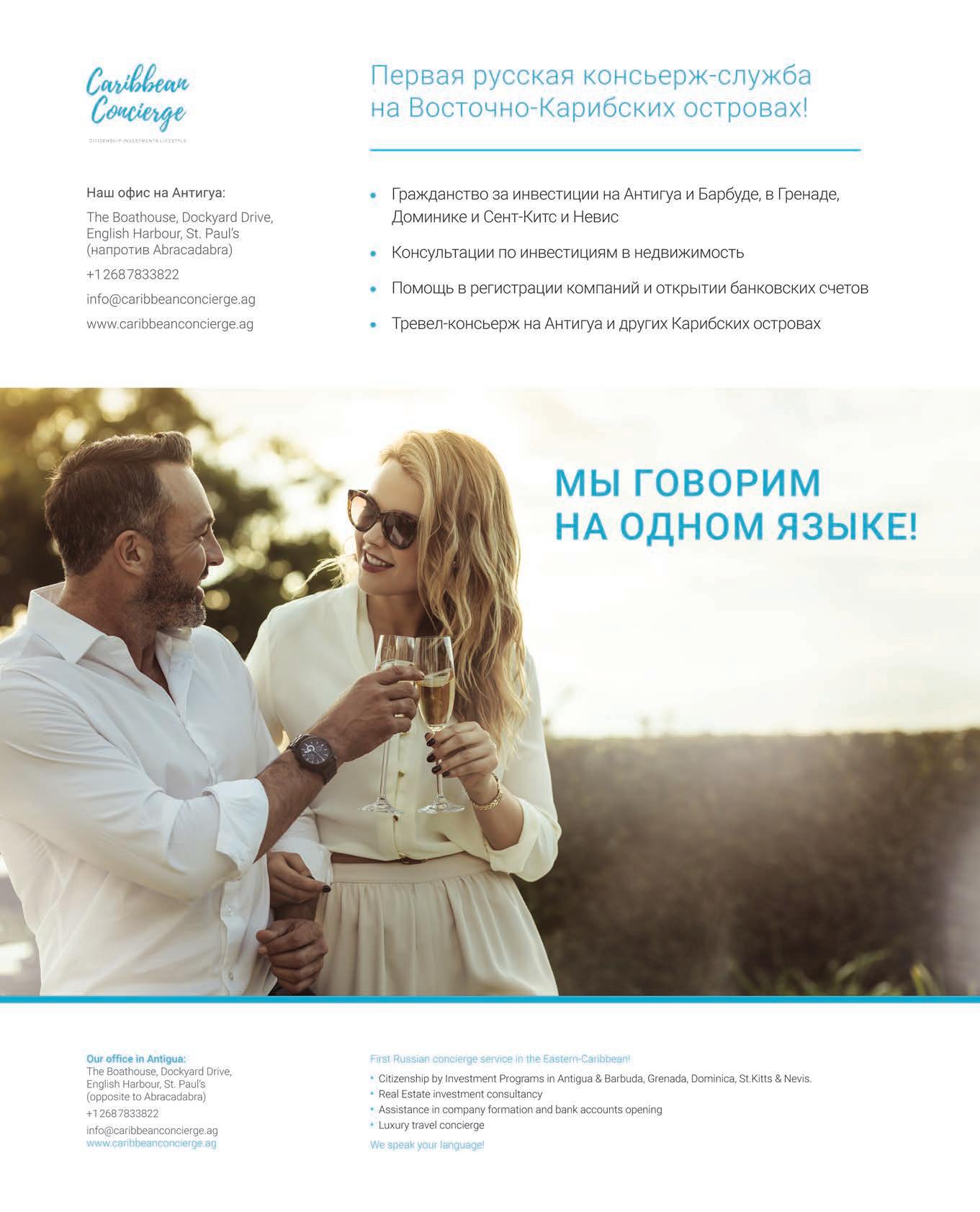
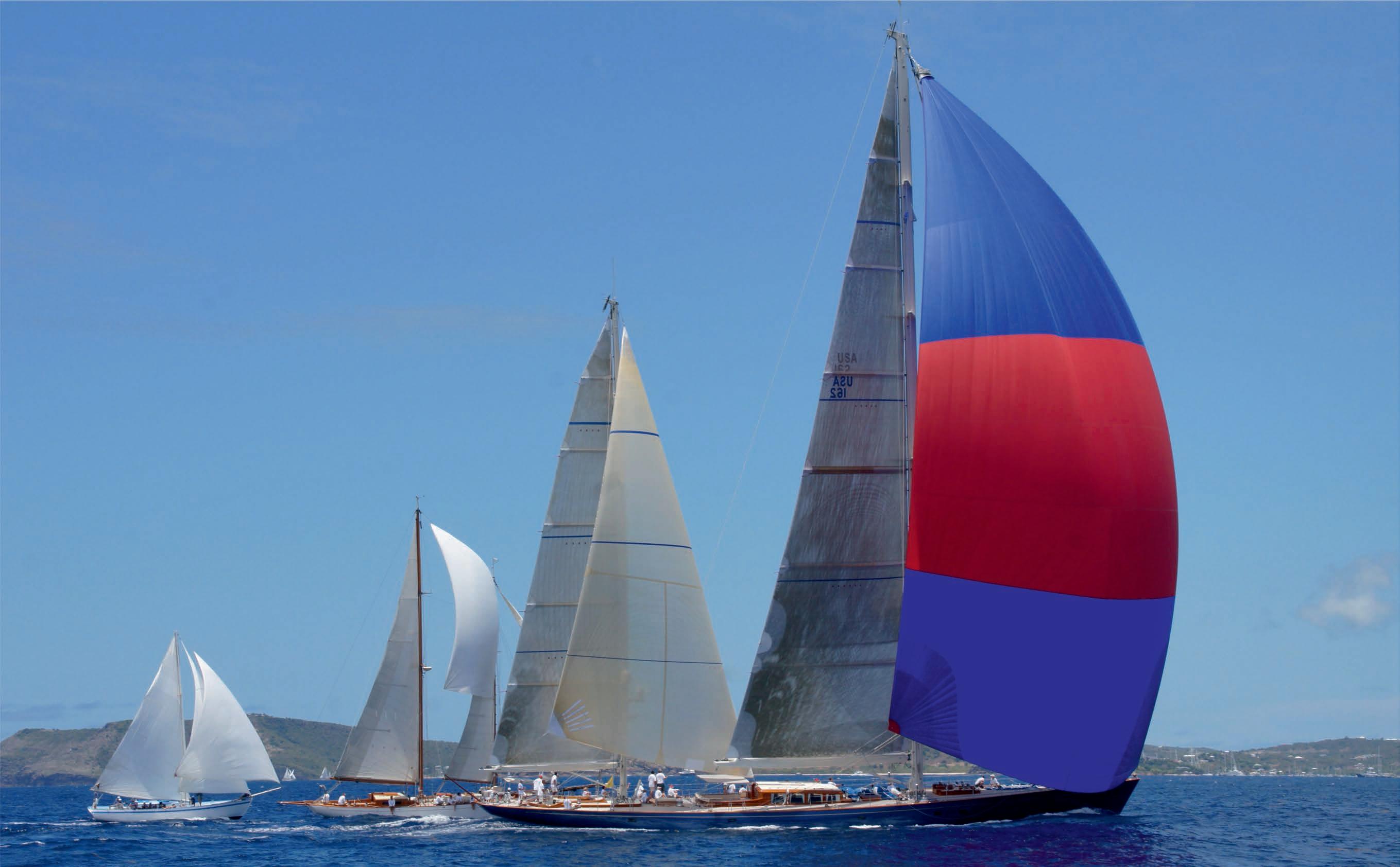
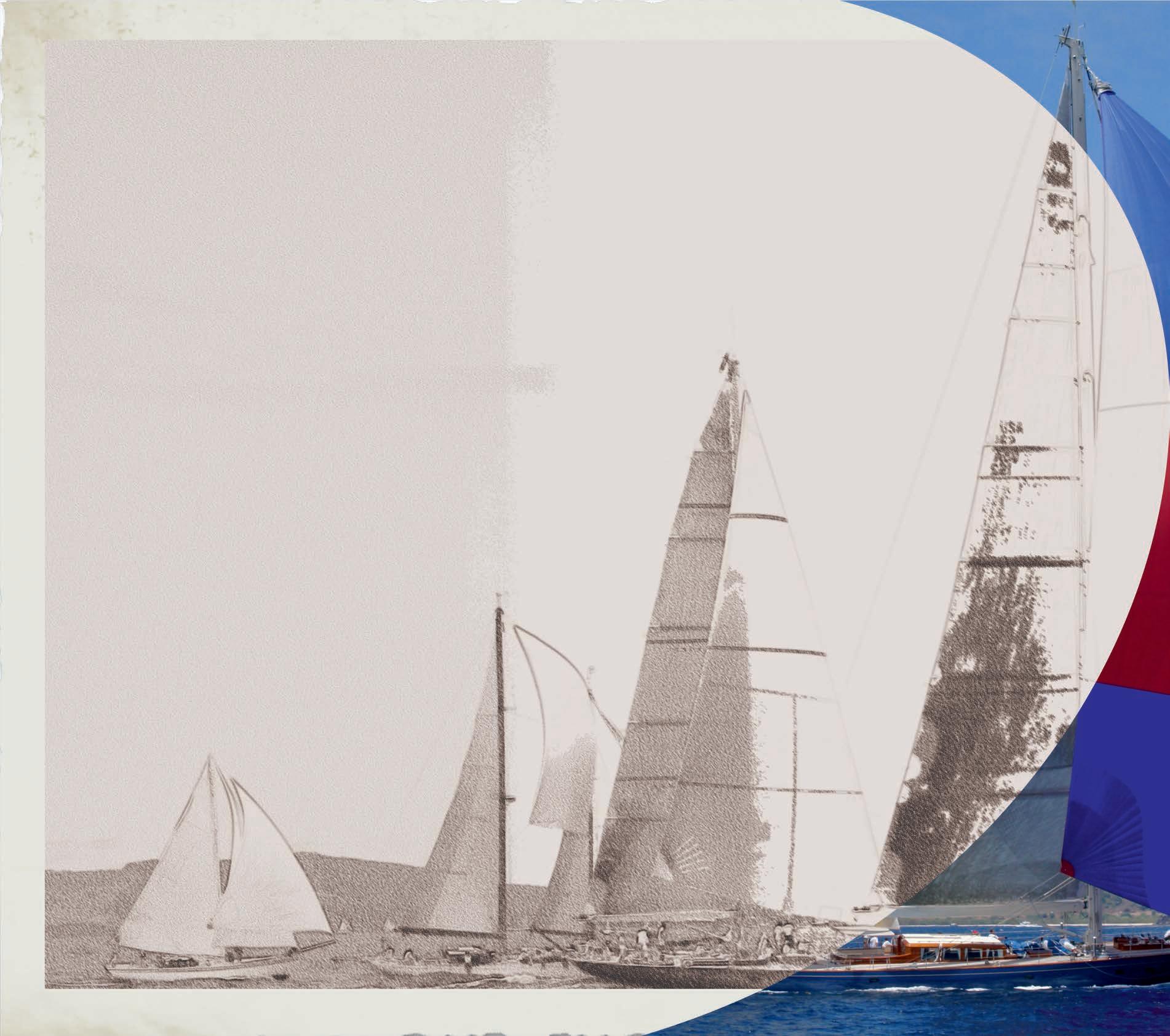





26 The CiTizen Глобальная мобильность означает свободу, какими бы ни были ваши желания и где бы вы не хотели осуществить их
Существуют три вида инвестиций, благодаря которым вы можете стать кандидатом на получение гражданства на райских островах Антигуа и Барбуда. Вы можете выбрать один из вариантов: безвозмездный взнос в государственный фонд
экономического развития (NDF), инвестиции в недвижимость в
один из одобренных правительством проектов или инвестиции
в бизнес в одно из утвержденных коммерческих предприятий.
Заявитель должен быть старше 18 лет, не иметь судимостей и
иметь отличное здоровье.
При условии одобрения заявления, вы и ваша семья получите
пожизненное гражданство и сможете наслаждаться безвизовым
въездом в более чем 150 стран мира.
безвозвратный взнос в государственный
фонд экономИческого развИтИя
Некоммерческий фонд NDF был учрежден с целью
финансирования предпринимательских государственных
проектов, инноваций в предпринимательстве и одобренных
благотворительных проектов. Деятельность фонда проверяется
международно признанной аудиторской фирмой, ежегодно
публикуется доклад о состоянии дел.
Если вы выбрали этот вариант инвестиций, то вам предлагается внести в государственный фонд экономического развития NDF
с умму в 100 000 долларов США, это единовременный взнос
для семьи из четырех человек. Ниже указана сумма сбора за обработку данных.
Для одного заявителя или семьи из четырех или менее человек:
• Взнос 100 000 долларов США
Сбор за обработку данных: 25 000 долларов США
Для семьи из 5 и более человек:
• Взнос 125 000 долларов США
Сбор за обработку данных: 15 000 долларов США за каждого дополнительного иждивенца свыше четырех членов семьи.
ИнвестИцИИ в недвИжИмость
Вы и члены вашей семьи можете получить гражданство
купив недвижимость в Антигуа и Барбуда. Выбрав этот
вариант инвестиции, вы также сможете получать доходы от аренды. Чтобы стать кандидатом на получение гражданства в
случае выбора этого варианта, вы должны вложить в один из официально утвержденных проектов недвижимости не менее 400 000 долларов США. До 31 октября 2018 года, для получения права, два (2) кандидата на гражданство могут объединиться и
citizenship investment program
by
сделать вложение на минимальную сумму в 200 000 долларов США каждый. Все сборы за обработку данных и прохождение проверки на благонадежность остаются без изменений.
Вы сможете продать недвижимость не ранее, чем через 5 лет. Ниже указана сумма сбора за обработку данных.
Для одного заявителя или семьи из четырех или менее человек:
• Сбор за обработку данных: 50 000 долларов США
Для семьи из 5 и более человек:
• Сбор за обработку данных: 15 000 долларов США за каждого дополнительного иждивенца.
ИнвестИцИИ в бИзнес Подразделение по вопросам инвестиционного гражданства (CIU) после согласования с Инвестиционным департаментом
Антигуа и Барбуды (ABIA) официально одобряет коммерческие предприятия для программы инвестиционного гражданства (CIP). Это может быть как новый, так и уже существующий бизнес.
Существуют два варианта инвестиций в бизнес:
• Инвестировать как минимум 1 500 000 долларов США в одобренный бизнес.
• Другой вариант - это инвестировать в бизнес нескольким заявителям, общая сумма вложений должна быть не менее 5 000 000 долларов США. При этом каждый заявитель обязан вложить в общий проект не менее 400 000 долларов США.
Для одного заявителя или семьи из четырех или менее человек:
• Сбор за обработку данных: 50 000 долларов США
Для семьи из 5 и более человек: • Сбор за обработку данных: 15 000 долларов США за каждого дополнительного иждивенца.
Пожалуйста, обратите внимание, что для всех трех вариантов необходимо оплатить сбор за прохождение проверки на благонадежность: 7 500 долларов США за основного заявителя, 7 500 долларов США за супругу(а), 2 000 долларов США за иждивенца от 12 до 17 лет и 4 000 долларов США за иждивенца от 18 до 28 лет и старше 58 лет.
27 ISSUE 2 • OCTOBER 2018
а нт И гуа И б арбуда
гражданство по инвестиционной программе
28 The CiTizen Предложите вашей семье гарантию свободы передвижения в сегодняшней постоянно меняющейся геополитической картине мире
Антигу А и Б А р Б у ДА гражданство
Часто задаваемые вопросы
Почему в Антигуа и Барбуда существует
гражданство по инвестиционной программе?
Программа была создана для содействия экономическому
росту, развитию рынка недвижимости, увеличения объемов прямых иностранных инвестиций в страну, поддержки развития инфраструктур и обеспечения надежного будущего.
Сколько стран я смогу посещать без визы как гражданин Антигуа и Барбуда?
Вы сможете посещать без визы более 150 стран, включая страны Евросоюза и Шенгенского соглашения, Гонконг и Сингапур.
Сколько составляет срок рассмотрения заявления?
Срок рассмотрения заявления может занять от 3 до 6 месяцев.
Кто может претендовать на получение гражданства?
Для того, чтобы претендовать на получение гражданства
Антигуа и Барбуда вы должны быть старше 18 лет , иметь хорошую репутацию, не иметь судимостей и обладать хорошим состоянием здоровья.
Должен ли я владеть английским языком, чтобы претендовать на получение гражданства?
Для того, чтобы претендовать на получение гражданства вы не обязаны владеть английским языком.
Кто может быть включен в заявление?
В заявление могут быть включены финансово зависимые дети до 28 лет и находящиеся на иждивении родители старше 58 лет.
Как вы проводите проверку на благонадежность заявителей?
Личные собеседования не проводятся. Однако, все заявители проходят строгую проверку Подразделением
по вопросам инвестиционного гражданства. Полностью
укомплектованное дело передается в международную, объективную, независимую службу проверки на
by
citizenship investment program
благонадежность, которая проводит тщательную проверку личных данных всех заявителей.
Что происходит после того, как мое заявление получает одобрение?
Выдается справка о регистрации гражданства, которая передается в паспортную службу. Затем ваш уполномоченный агент / представитель отправляет вам ваши паспорта и свидетельство о гражданстве.
Для окончательного оформления дела мне необходимо лично приезжать в Антигуа и Барбуда?
Подача документов возможна из страны вашего проживания. После успешного разрешения вашего дела и получения паспорта, вы должны приехать в Антигуа и Барбуда, чтобы принять присягу или подтвердить
подданство. Вы имеете право установить место постоянного проживания в Антигуа и Барбуда в любое время по вашему желанию.
Признает ли Антигуа и Барбуда двойное гражданство?
В Антигуа и Барбуда нет ограничений для двойного гражданства.
Сколько лет будет действителен мой паспорт? Паспорт действителен 5 лет и он продлевается на 10 лет, при выполнении всех требований, таких как минимальный срок пребывания в стране после получения гражданства –пять дней.
Могу я инвестировать в Биткойнах или других криптовалютах?
Пока этот вопрос находится в работе, но пока ещё не разрешен.
В дополнение к программе инвестиционного
гражданства существует в Антигуа и Барбуда программа налогового резиденства?
В данный момент в Антигуа и Барбуда не существует программы налогового резиденства.
Если у вас возникли любые другие вопросы, пожалуйста, свяжитесь с уполномоченным представителем, лицензированным агентом или напрямую с Подразделением по вопросам инвестиционного гражданства.
29 ISSUE 2 • OCTOBER 2018
по инвестиционной программе
30 The CiTizen
全球人员流动意 味着自由,不管 你的梦想是什 么,不管您想在 哪里追求梦想
有下列三种投资方式,可以让您有资格获得天堂 般的安提瓜和巴布达岛国的公民身份。作为申请 人,您可以选择向国家发展基金(NDF)捐款,在 预先批准的房地产开发项目中购买房产,或投资 于经批准的商业企业。作为候选人,您必须年龄 超过18岁,无犯罪记录,身体健康。
申请成功后,您和您的家人会获得终身公民身份, 并享有在超过150个国家旅行免签的优势。
向国家发展基金捐款
非盈利性质的国家发展基金的成立是为了为创收 公共部门项目、创业创新和经批准的慈善投资 提供资金。它由一家国际公认的会计师事务所审 计,并且每年都会公布其财务状况报告。
如果这是您的投资选择,您需要向国家发展基金 捐款十万美金,这是四口之家一次性的捐款数 额.办理费用如下所示。
适用于单个申请人,家庭成员四人及以下:
• 十万美金捐款 办理费用:两万五千美金
适用于家庭成员五人及以上:
• 十二万五千美金 办理费用:四人之外每增加一人,需多缴一万五千
美金
房地产投资
您和您的家人可以通过在安提瓜和巴布达购买房 产来获得公民身份。您也可以通过此投资从租金 收入中受益。为通过此项投资获得公民身份,您 需要投资一个指定的,经官方批准的价值至少为 四十万美元的房地产开发项目。截至2018年10月 31日,来自关联方的两(2)份申请可以进行共同
citizenship investment program
by
投资,每位申请人至少投资二十万美元才能获得 资格。所有办理费和尽职调查费保持不变。
在出售房产前,您需要拥有它至少五年。办理费 用如下所示。
适用于单个申请人,家庭成员四人及以下:
• 办理费用:五万美金
适用于家庭成员五人及以上:
• 办理费用:每个增加成员需缴一万五千美金
商业投资 在与安提瓜和巴布达投资局(ABIA)协商后,投 资公民部门(CIU)批准现有或提议的商业项目, 以便外国人在投资公民计划(CIP)下投资。
有两个商业投资选项:
• 投资至少一百五十万美元给一项预先批准的商 业活动。
• 或者,至少有两个申请人可以提议对经批准的企 业进行联合投资,总投资至少为五百万美元。每 个投资者至少支付四十万美金。
适用于单个申请人,家庭成员四人及以下:
• 办理费用:五万美金
适用于家庭成员五人及以上:
• 办理费用:每个增加成员需缴一万五千美金
请注意,三个投资选项都包括主申请人和配偶的 七千五百美元的尽职调查费,12-17岁的任何受养 子女办理费用为两千美元,18-28岁的任何受养子 女或58岁以上的受养父母每人费用为四千美元。
31 ISSUE 2 • OCTOBER 2018
通过投资项目获取安提瓜和
巴布达公民身份
32 The CiTizen
在今天这个地缘 政治格局不断变 化的世界里, 为您的家庭提 供流动保险
布达的公民身份 问&答
为什么安提瓜和巴布达推行通过投资获得公民 身份项目?
这个项目旨在增进经济发展,促进房地产开发, 增加外国对本国的直接投资,支持基础设施建设 并提供可持续发展。
作为安提瓜和巴布达公民,我可以免签到多少个 国家旅行?
你可以去往超过150个国家,包括欧盟和申根国 家,香港和新加坡。
处理时间有多长?
处理您的申请通常需要三至六个月。
谁可以申请公民身份?
申请安提瓜和巴布达的公民身份,您至少需要18 周岁,无犯罪记录并且身体健康。
申请公民身份需要我会说英语吗? 申请人不需要会讲英语。
谁可以被包括在申请中?
您抚养的年龄小于28岁的孩子和赡养的超过58 岁的老人可以被包括在申请中。
如何进行尽职调查和审查申请人?
没有面试环节。但是,所有申请人在获得公民身 份前都要经过公民投资部门严格的筛选。完整的 文件将转发给国际上公正的第三方尽职调查服
务提供商,该服务提供商将对所有申请人进行详 细的背景调查。
我的申请被接受后会发生什么?
将颁发公民身份登记证书并提交给护照办公 室。您的授权代理人/代表将转发您的护照和公 民身份证明给您。
我需要亲自到安提瓜和巴布达来完成手续吗?
申请环节可以在您的居住国完成。一旦您的申 请成功并收到护照,您需要亲自到安提瓜和巴布 达来宣誓或承认效忠。您随时可以定居在安提 瓜和巴布达。
安提瓜和巴布达承认双重国籍吗?
安提瓜和巴布达对于双重国籍没有限制。
我的护照有效期为几年?
护照有效期五年,此后可续期10年,续期的前提 是符合要求,包括在成为公民后在护照有效期间 在该国度过至少5天。
我可以用我的比特币或其他虚拟货币投资吗? 这还在筹备中,但尚未实行。
除了投资计划获取公民身份外,安提瓜和巴布达 还有税务定居计划吗?
安提瓜和巴布达目前不提供税务定居计划。
如有任何其他问题,请联系授权代表,许可代理或直接联系投资公民部门(CIU)。
33 ISSUE 2 • OCTOBER 2018
citizenship investment program by
通过投资项目获得安提瓜和巴
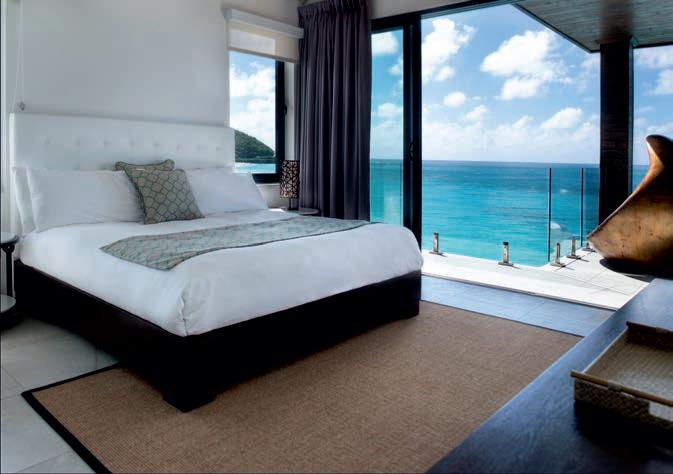

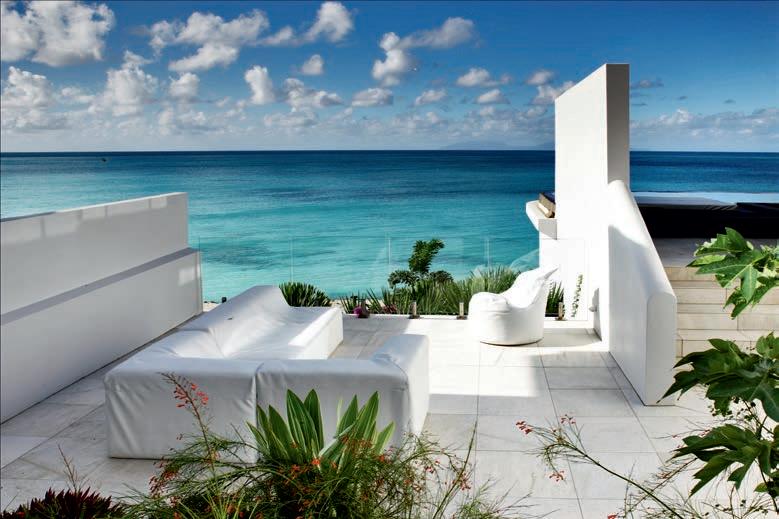
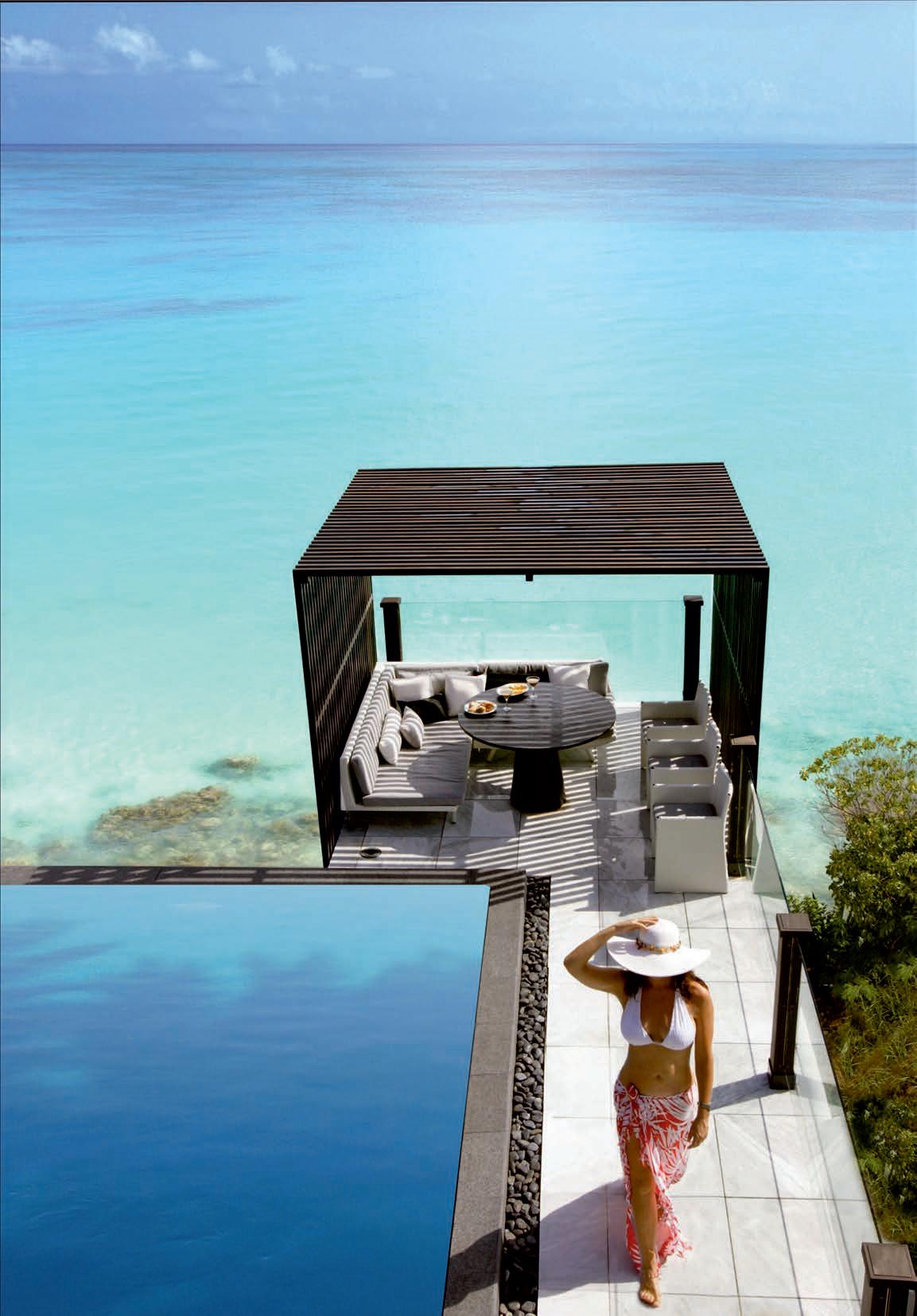



Focus
by Christopher Willis IMC’s Regional Representative Office in the Caribbean
Setting Standard S on a g lobal l evel
As the worldwide association of investment migration professionals and indeed the industry’s first and only credible self-regulatory body, the Investment Migration Council (IMC) gathers together the leading stakeholders in the field. The purpose of the council is simple and straightforward, providing a well-needed voice and significant accountability to the industry as a whole. The association, created by industry leaders and various governments, came about after repeated calls over the last few years, for the introduction of concrete structures in the industry to elevate public trust, and provide transparent and reliable regulatory standards.
The first CIU in the Caribbean to join as a Government member, was the Citizenship by Investment Unit (CIU) of Antigua & Barbuda. By adopting the IMC’s Code of Ethics and Best Practises and conveying these to its local agents and industry stakeholders, Antigua & Barbuda’s membership has paved the way for the membership of other Caribbean jurisdictions, leading to greater harmonisation across the region.
One of the key areas benefitted by such collaboration is the essential matter of due diligence. It is important to point out that no stone is unturned in the attempt to gather information on individuals ensuring that their citizenship does not pose any threat to the national security or present a reputational risk. However, one aspect that is vital to take into consideration is that the results of investigations conducted by the CIUs and independent third-party due diligence providers can only provide information related to a specific point in time and naturally, governments cannot legislate for events that may take place after economic citizenship is granted.
A 36 The CiTizen
Given that one bad experience can have a calamitous effect on the entire industry, government agencies are urged to coordinate effectively with each other to ensure a common standard and to enhance the overall reputation of the industry. This is where international organisations such as the IMC come into their own to help guide programmes to focus on due diligence and other issues, vital for the future of the industry.
One of the main requisites is that applicants to all programmes are trustworthy individuals who will not bring the country offering citizenship into disrepute. To ensure this, a multi-tiered due diligence review of all applicants and associated businesses has been put in place by the CIUs to vet all applicants for citizenship or residence to these programmes.
Firstly, the review process consists of searching for the main applicant and any businesses they may be associated with across a variety of databases including public domain search engines and social media. The idea is that these searches can ascertain additional credible information on the applicant.
Third-party due diligence service providers are contracted to conduct background investigations into the applicants. These services cover the applicants’ entire known public footprint and verifies all
the information that the applicant have submitted.
The process continues with the applicants’ information being submitted to regional and international law enforcement bodies which includes INTERPOL to facilitate further checks.
Furthermore, each applicant and dependant (who has attained the age of majority) must submit a police record from his/her country of birth and every jurisdiction where he/she has spent 6 months or more over the past 10 years. Once the results of the background checks of the independent parties have been finalized, they are reported to the CIUs for further assessments to ensure suitability of the CBI programme’s applicant.
Only after the results of all these steps are assessed is a final determination made on the disposition of the application. Final assessment involves the consideration of many elements, especially where high profile applicants or Politically Exposed Persons (PEPs) are concerned.
Through this stringent and complex due diligence process, the CIU of Antigua & Barbuda continues to maintain the highest standards and we look forward to their continuing relationship with the IMC to strengthen and further develop this key area of the process.
37 ISSUE 2 • OCTOBER 2018
by Brian Dobbin Founder Citizens International
Often

38 The CiTizen
opinion
Citizenship i nvestment
L OO ks Like a f r O g with warts, but i t’s aC tua LLy a p rin C e
My introduction to citizenship investment was in a room with two dozen angry Chinese immigrants in Toronto in 1992. I had just started working with a family property development business, and we had bought a failed immigration investor program hotel project in Newfoundland.
I was there in my early twenties to tell the citizenship investors that they had lost all their money in the bankruptcy process from which we had acquired the asset. Meeting a room of fuming investors was probably the best perspective I could have gotten on this industry to start with, and it definitely shaped my actions over the years.

Despite looking down its nose at the Caribbean citizenship investment programs, Canada invented this industry back in Brian Mulrooney’s government in the 1980s and has led the world for decades in attracting high-net-worth investment for expedited residency and citizenship.
When it was first introduced, investment projects could be presented provincially for approval and once approved, this investment was rewarded with a residency visa. I believe the value placed in China on the offering surprised a lot of people at the time, and soon projects of all sorts were being presented to friendly provincial ministers across the land.
As would be expected, the federal government had no way to monitor the efficacy of the investments being offered, and a lot of investors ended up in failed projects. After a few years of this the federal government had heard enough complaints and the federal investor program took over, asking CIP applicants to lend money to the federal government for a period of five years to achieve their residency.
The provincial programs were kaput… except for Quebec that is. The province of Quebec had its own immigration powers under the new Canadian constitution, and they created a similar program to the federal government which by the mid-90s had grown to almost a billiondollar per year source of cash to the province.
You will notice a lot of the industry leaders internationally now in the CIP business had their start in the Canadian federal and Quebec immigration programs in those days.
In those same years on the east coast of Canada, our primary industry of seafood disappeared with the collapse of wild stocks. Having been the world’s largest provider of fish, Canada quickly become its 10th largest, and in our province of Newfoundland about 30% of the workforce lost their jobs overnight when the federal government shut down the east coast fisheries.
After several years of federal hand-outs to sustain some semblance of the economy, things got extremely bad in 1995.
In an eighteen-month span, it was reported that our province’s population had dropped from 560,000 to 500,000 – a loss of roughly 10%. That wasn’t retirees and married couples, but young people looking for opportunity elsewhere. The sports teams we played on folded as there were not enough players. Six of my seven brothers and sisters were living off our island elsewhere in Canada to find work.
39 ISSUE 2 • OCTOBER 2018
M
Then the province of British Columbia demanded and got a Provincial Nominee Program, allowing the government of British Columbia the right to nominate 1,000 people for expedited resident visas for whatever reason they deemed important to the province. As a young businessman trying to source investment into Newfoundland industry, this was the break we needed, and I lobbied our provincial government to demand the same opportunity and then fought hard for it at federal level for several years.
Finally, in 1999, the province of Newfoundland was granted 300 nominees in the Newfoundland Provincial Nominee Program (PNP). As the instigator of the effort, I managed to steer 200 of those nominations and its subsequent investment into sustainable industry in Newfoundland –adventure tourism and aquaculture.
At the time, the aquaculture industry was near collapse in Newfoundland as the provincial government had been supporting the industry’s few commercial participants for some years and for tens of millions of dollars, and planned to pull the plug. Using some foreign investment and the promise of PNP investment money, we bought those companies. By bringing in expertise from elsewhere, the combined private enterprise became profitable within 12 months and those jobs remain today in the region.
The impact of the citizenship investment we raised with one tourism project called Humber Valley Resort in the western region of Newfoundland, is of particular relevance to the Caribbean programs.
Immigration investment supplied the first $20 million to the project, which took place in a 70-kilometer valley on the province’s west coast with a population of approximately 50,000 people spread out over seven communities.
This first immigration investment started the first infrastructure and marketing spending that over the next five years attracted more than $200 million in new revenue from international lifestyle non-CIP property buyers to the project. Over 300 properties were sold outside Newfoundland with only one being sold to a Canadian, and this international money that came into the valley was spent on construction of key tourism infrastructure.
The area had a beautiful natural product but limited rooms available for tourists with only 1,500 in total at the time of the project’s start in 2001, mostly in hotels/motels and rental cabins. The construction of the resort project not only directly employed well over 500 people for the next five years, it also provided over 1,000 new luxury rooms for
40 The CiTizen
Despite some hiccups, questions marks, anD missteps just like we saw in canaDa in the earliest Days of cip, the overall impact of the program was blinDingly obvious anD positive for the nation.
the area by 2006, along with a world-class golf course and three new restaurants and bars.
This and our charter flight operations positively impacted access to the region, with an international wing added onto the local airport and arrivals increasing from 180,000 per year in 2001 to 300,000 per year by 2008.
These factors had a further knock-on effect, with unemployment in the Humber Valley region falling from 24% in 1999 to 17.8% in 2006, all whilst the region had no other new significant industrial growth underway.
Most rewardingly, between 1996 and 2001 7.9% of the population left the Humber Valley, but between 2001 and 2006 a total of 2.1% returned.
The success of the Humber Valley Resort project led us overseas, developing and selling other projects from a London headquarters, from which we were first introduced to St. Kitts in 2004. I was surprised when I learned that the small nation had been offering the world’s original citizenship program since 1984, and that there had only been dozens of applicants over the years.
Investing in the country with new projects and with a fully staffed office in St. Kitts, we spent some great time on the island and formed friendships with people there that remain today. We also brought our former Canadian immigration legal partner/ marketer from China to meet with the Immigration Minister, Dwyer Astaphan, at the time to provide some intelligence about the potential market for St. Kitts citizenship.
Not long after, that I sold our resort development and sales business and we left St. Kitts, returning to the Caribbean in 2011 to Antigua. I was aware of the rise of the CIP since that first meeting, but my first visit back to St. Kitts in almost four years was an eye-opener.
The impact of citizenship investment was obvious in what we saw, what our friends were doing, and in the type of people we experienced coming in and out of the airport. A sleepy little terminal had transformed into an international
crossroads, and the buzz of things happening was obvious. Despite some hiccups, questions marks, and missteps just like we saw in Canada in the earliest days of CIP, the overall impact of the program was blindingly obvious and positive for the nation. Our CIP is maturing in Antigua & Barbuda and faces much more competition internationally than we did in Canada or even St. Kitts, but the foundation of the program is strong.
Antigua can be a very desirable place to live, and it is not the first level of investment that usually creates the biggest effect, but the carry-on effect of people being introduced to the island through its citizenship program that often makes a more significant difference.
I am currently writing this piece sitting in Humber Valley Resort 15 years on from its CIP investment cycle. The resort currently creates hundreds of jobs and reservations are now required at the golf course and the restaurants to get a place. The people that came and bought property brought a lot more than just the initial investment, introducing the valley to thousands more who return and spend money every day here – more money all the time.
The Newfoundland aquaculture industry now produces almost $300 million in seafood annually for sales outside the province, and I do not exaggerate when I say it had been declared DOA by our government after the state funding ran out and before PNP investment arrived.
Despite the ups and downs and twists and turns that occur, the CIP investment that came here from those 200 immigrants created hundreds and hundreds of sustainable jobs that still support thousands of Newfoundlanders today, 20 years after the program existed.
Citizenship investment is a good thing. As with any powerful tool it can be abused in the wrong hands, but it is a legitimate and deserved device for Caribbean governments to instigate economic growth, and help attract commercially important people to its shores to assist that growth.
41 ISSUE 2 • OCTOBER 2018

BLOCKCHAIN
Blockchain may well be the solution to the de-risking challenges Caribbean economies are facing. Are fintech innovations the future?

43 ISSUE 2 • OCTOBER 2018 cover story
C
Caribbean countries have been seriously impacted by the trend toward “de-risking” in the global financial system, which is damaging to their economic security and the ability of Caribbean businesses to innovate.
De-risking is the name given to the tendency of banking institutions to turn away from working relationships and lines of business for which the cost of regulatory compliance— and the risk of non-compliance— is deemed to be too high in comparison to the returns. This phenomenon is affecting developing economies around the world, but the small and vulnerable economies of the Caribbean have been hardest hit.
Particular areas of concern include issues surrounding anti-money laundering and combating the financing of terrorism (AML/CFT) and the need to ensure compliance with international trade sanctions. The costs associated with the high level of customer due diligence required to manage such risks are, in many cases, not justified by the low profit margins associated with correspondent banking services. As a result, many Caribbean banks are finding that the correspondent banking relationships that they have relied on in the past are being cut off.
Recent developments in the field of financial technology (fintech) may offer potential resolution to some of the problems surrounding de-risking and the navigation of correspondent bank relationships. The emergence of decentralized ledger systems that use cryptographically secured “blockchain” technology has been touted as a potential alternative means for financial service institutions to support cross-border transactions. This technology appears to have the potential to address the problem of de-risking on two fronts. First, an appropriately designed, blockchain-based settlement network would offer tools to improve surveillance of transactions. This enhanced surveillance capacity would enable the detection of illicit financial transfers and thereby decrease risk and associated compliance costs. Second, a blockchain-based network would offer Caribbean banks the opportunity to bypass
correspondent banks altogether. This would reduce transaction costs and increase efficiency, although the need to prevent money laundering and terrorist financing is a burden that will remain upon the region’s financial institutions, regardless of the type of information systems used.
Blockchain-Based models for financial institutions
The unique value of blockchain-based systems stems from their ability to allow institutions to be assured that the data stored in their computers is in agreement with the data stored at other institutions. Non-blockchainbased systems accomplish this through clearing systems built around more conventional data-exchange processes and institutional trust. This has performed well for many institutions, but has significant drawbacks for those that remain outside the circle of trust. The vast differences in banking infrastructure across countries, including with regard to national regulatory systems, has ensured that the extension of this trust beyond national borders is particularly difficult to manage.

44 The CiTizen
cover story
Blockchain-based mechanisms enable a different model for supporting value transfer which does not rely on trust to assure data consistency across institutions. Instead, consistency of data is assured by the underlying cryptographic technology of the system. In theory, this should allow small banks in the Caribbean to operate on an equal basis with partners in larger economies, potentially bypassing the need for correspondent banks altogether. However, even if the current system of correspondent banking was to be replaced by a blockchain-based substitute, the new system would still need to address the challenge of regulatory compliance that has led to the current problem of de-risking.

The open model, The permissioned model, and The cenTralized model
Under the open model, such as Bitcoin, mining nodes can be operated by anyone in the world who wishes to join the network, and the transaction information stored on the blockchain itself is entirely open to public examination. Under a permissioned model, mining operations are restricted to those who have been granted permission
under the governance rules of the network. The ability to create new blocks on the chain is limited to those accepted into the institutional consortium, and access to data on the blockchain is also similarly constrained. Under the centralized model, blockchain mining operations are managed by a central bank in cooperation with designated partner institutions, and access to information stored on the blockchain would be managed by a centralized authority.
Of these options, the open model —making use of Bitcoin or other independent digital currency— will likely be adopted by some portion of the population regardless of central bank policy; the question remains as to if and how it will be adopted by institutions. The second potential framework —a permissioned blockchain— is currently under development by a number of banks and private companies. A number of digital currencies supporting permissioned blockchains exist, but as yet have not achieved widespread usage for clearing and settlement. It is likely that a number of competing systems will emerge, and that some will gain widespread adoption in the near to medium-term future.
45 ISSUE 2 • OCTOBER 2018
De-risking anD the associateD loss of corresponDent banking relationships are acute anD current problems that are causing Damage to caribbean economies.
WhaT are bloCkChains?
The third model —central bank issued digital currencies— is still quite speculative and, as Raskin and Yermack noted in one of their papers in 2016, would entail major systemic changes to the financial system that have the potential to be destabilizing. That said, of the three systems, it is probably the one that would most directly address the concerns that have led to de-risking and the withdrawal of correspondent banking relationships.
A blockchain is an implementation of cryptographic technology that enables data to be shared across a network of computers controlled by multiple organizations and individuals. The computers on the network work together to ensure that every piece of information added to the shared data set is cryptographically signed. This cryptographic signature, or “hash”, is used to ensure that a given set of data, or “block”, cannot be tampered with without detection. Each block includes information used to create the cryptographic signature of the previous block. In this way, blocks are “chained” together, so that the content of blocks within the chain cannot be altered without making a series of difficult changes to each subsequent block. This mechanism enables every user of the network to have assurance that they have the same information that has been agreed upon by all the other actors on the network. Thus, information can be shared among organizations that do not necessarily trust each other.
A blockchain is an implementation of cryptographic technology that enables data to shared across network of computers controlled by multiple organizations and individuals. The computers on the network work together to ensure that every piece of information added to the shared data set is cryptographically signed. This cryptographic signature, or “hash”, is used to ensure that a given set of data, or “block”, cannot be tampered with without detection. Each block includes information used to create the cryptographic signature of the previous block. In this way, blocks are “chained” together, so that the content of blocks within the chain cannot be altered without making a series of difficult changes to each subsequent block. This mechanism enables every user of the network to have assurance that they have the same information that has been agreed upon by all the other actors on the network. Thus, information can be shared among organizations that do not necessarily trust each other.
ConClusIon
The ability of blockchain technology to address the problem of de-risking, as it affects the Caribbean region, is contingent on the extent to which it facilitates effective compliance measures to detect and prevent money laundering, terrorist financing, and the violation of international sanctions. Fintech industry companies in the Caribbean are aware of this, and have been proactive in implementing know-your-customer standards AML/ CFT compliance, even in the absence of clear direction from the region’s regulatory authorities. And yet, these same companies have reported that there is a broad unwillingness on the part of the region’s commercial banks to provide them with banking services, because of high levels of compliance risk perceived to be surrounding blockchain and digital currency technology.

This ability to share information between organizations that do not necessarily trust each other enables some interesting applications. The most well understood is the “distributed ledger” — a continuously updated list of transactions between various accounts on the system. These transactions are denominated in digital tokens, Bitcoin being one such token, that can be transferred to others in a manner akin to the use of traditional currency. Thus, if tokens on a blockchain network are seen to have value, they can be traded among accounts held by various operators including, theoretically, banks seeking to settle on payments due to other banks.
This ability to share information between organizations that do not necessarily trust each other enables some interesting applications. The most well understood is the “distributed ledger” — a continuously updated list of transactions between various accounts on the system. These transactions are denominated in digital tokens, Bitcoin being one such token, that can be transferred to others in a manner akin to the use of traditional currency. Thus, if tokens on a blockchain network are seen to have value, they can be traded among accounts held by various operators including, theoretically, banks seeking to settle on payments due to other banks.
However, blockchain technology can address these compliance issues by enabling the creation of permanent, highly traceable records. However, they present challenges in other areas, including reputational risk, stability of the software platform, and the lack of confidentiality of transactions. The open, permissioned and centralized models for blockchain engagement by financial institutions address these challenges in different ways, but, again, each comes with its own drawbacks.
The open model entails the adoption of one or more decentralized digital currency blockchains. Though traditional finance and regulatory institutions remain leery, the open model is already being adopted by some portions of the population and open digital currency use is likely to grow to some extent, regardless of government policy. While there are valid concerns surrounding the adoption of this difficult-to-regulate technology, it also serves as a locus of innovation and a source of competition that may inspire more traditional finance sector actors to improve upon the services they provide. Indeed, the permissioned model represents one of the ways in which these traditional actors are responding to the upstart competitive threat of open digital currencies.
46
cover story
The CiTizen
By placing governance and operations in the hands of a limited consortium of vetted institutions, the permissioned model should have the advantage, from a state’s perspective, of being easier to regulate. However, issues of privacy and sovereignty remain, especially as any global network that emerges in this space is likely to have its locus of control outside the region.
Sovereignty concerns could be resolved by using a centralized model, in which the blockchain is controlled by a central bank as a form of legal tender managed alongside, or in lieu of, existing paper currency. The use of “digital fiat” would provide strong mechanisms for compliance monitoring, but would create a new political danger in the form of a tool that could be used by an abusive government to monitor and suppress the opposition. It remains to be seen if this risk might be contained by emerging technology. Therefore, it should also be contained politically, for example by issuing a digital currency as part of a currency union, with an independent central bank not beholden to any single government. Of institutions in the region, it is the Eastern Caribbean Central Bank (ECCB) that is best positioned
globally-oriented permissioned blockchain networks that are likely to emerge in coming years.
Adoption of a net payment-oriented blockchain –whether open or permissioned– would reduce reliance of Caribbean banks on correspondent banks for money transfers. However, as long as settlements are conducted on a net, rather than per-transaction basis, a move to the blockchain alone would do little to support the additional compliance monitoring needed to address the issue of derisking. Unfortunately, the technology needed to enable sufficient confidentiality of transactions is not currently at a state of maturity needed to support a per-transaction system on a non-centralized blockchain. This situation may well change as the technology evolves, and so support for real-time gross settlements should be viewed as a longterm objective in the push to establish a blockchain based framework for the Caribbean financial system.
De-risking and the associated loss of correspondent banking relationships are acute and current problems that are causing damage to Caribbean economies. Blockchainbased payment frameworks are nascent technology that
Recent developments in the field of financial technology (fintech) may offeR potential Resolution to some of the pRoblems suRRounding de-Risking and the navigation of coRRespondent bank Relationships.
to pursue adoption of this model, on behalf of the eightmember countries of its currency union. Indeed, if the ECCB was to become an innovator in this area, it might draw much-needed investment into the region from the global community, and there may also be a considerable profit to the currency union in the form of seigniorage. The eight economies served by the ECCU are Anguilla, Antigua & Barbuda, Dominica, Grenada, Montserrat, Saint Kitts & Nevis, Saint Lucia, and Saint Vincent & the Grenadines.
Other countries in the region, however, might do better to focus on more incremental steps they can take to engage with blockchain technology. The institution of the digital Barbados dollar represents an example of a possible starting point for this. A next step might be to pilot the use blockchains to support net settlements between central banks in the Caribbean, potentially with the inclusion of large commercial banks. They may also consider supporting either the establishment of a permissioned blockchain among Caribbean banks, or the participation of Caribbean banks in one of the more
is not ready to address these problems today. In the long term, however, they have the potential to support a robust monitoring component that would relieve de-risking pressure by reducing compliance costs for correspondent banks. Looking farther into the long term, they have the potential to provide the underpinning of a system that could enable the transfer of value directly between any two banks in the system, without the need to rely on the services of correspondent banks in the role of a middleman. This would be a boon to efficiency, national sovereignty, and the financial independence of countries in the region. Thus, Caribbean policy makers and financial institutions are advised to cautiously advance the process of engagement with blockchain-based systems by performing their own investigations and seeking out pilot projects to help them to build experience and familiarity with the use and limitations of this new technology.
by
Bobby
Williams
| Former
Associate Information Management Officer,
Caribbean Knowledge Management Centre, subregional headquarters for the Caribbean, Economic Commission for Latin America and the Caribbean (ECLAC).
47 ISSUE 2 • OCTOBER 2018
All Bitcoin transactions will leave a digital trail. There is no public record of cash transactions.
Bitcoins are stored on the Bitcoin blockchain and can’t simply vanish.
Bitcoin mining is the process through which transactions on the Bitcoin network are validated and stored on a blockchain.
Satoshi Nakamoto’s “Bitcoin: A Peer-to-Peer Electronic Cash System” describing the Bitcoin digital cryptocurrency was first published on metzdowd.com in 2008.
Users are free to send and receive Bitcoins with no limitations.

Only 21 million bitcoins are expected to be generated throughout the lifespan of Bitcoin.
More businesses are starting to accept Bitcoin as a method of payment and millions of transactions are conducted every day.
Bitcoins are a product of pure mathematics and raw algorithmic calculations and not susceptible to the value of precious metals or money printed by government authorities.
Bitcoin has gained more in value than any other fiat currency since inception 8 years ago. When working with cryptocurrencies, there are no borders, no bank holidays and no bureaucracy.
Users determine the value of one currency over another by choosing which one to use as method of payment.
Depending on how fast you want your Bitcoin payment transaction to be verified and completed, you choose your fees. You pay no fees when receiving.
Cryptocurrencies are stored in a large network which distributes the information among the holders of each balance. This network cannot be altered by anyone.
More and more jurisdictions are taking steps to ensure that they integrate the use of cryptocurrencies as a method of payment into their regulated financial systems.
Bitcoin will become more optimized as the peer-to-peer community grows.
Cryptocurrencies is likely to become subject to the same rules and regulations which exist in other established financial systems.
Bitcoins can’t be counterfeited, thus eliminating this type of financial crime.
48 The CiTizen cover story
The Bitcoin network can already handle many more transactions per second than other payment networks out there.

49 ISSUE 2 • OCTOBER 2018
Everyone’s heard about Initial Public Offerings (IPOs), which is when a company’s stock goes public. However, an Initial Coin Offering (ICO) is when a cryptocurrency goes public. During an ICO, companies usually exchange their cryptocurrency for Bitcoins, although some involve fiat money. The end result of an ICO is similar to that of an IPO: the company gets capital to continue growing its technology, while the public gets access to shares in the company. The first ICO, Mastercoin (now called Omni), took place in 2013 and raised over $5 million US dollars in Bitcoins through the sales of its Mastercoin tokens. Ethereum, one of the biggest altcoins in the world today, followed suit in 2014 raising $18 million and Wave $16 million in 2016. Based on the success of these three ventures, ICOs are being increasingly seen as an efficient way to kickstart cryptocurrency projects.

There are some obvious similariTies beTween iPos and iCos; and some key differenCes
During an ICO, you’re buying a unit of currency for that project – which isn’t technically a share of ownership but similar to a share because it’s tied to the value of the company.
In the corporate world, IPOs are heavily regulated by the government. It often takes months, even years, for companies to gather the necessary paperwork for an IPO. In the cryptocurrency world, regulations are mostly nonexistent, and a company can launch an ICO at any time with little preparation or paperwork. This means greater opportunities, but also greater risks. As virtually anyone from any country can participate in ICOs, neither investors nor companies can always know if the other company or investor is legitimate. The main benefit of an ICO is, however, that you are helping a company launch its product by buying into it for an expected future value. Some people want to buy an interesting product for a lower price than its final Manufacturer’s Suggested Retail Price (MSRP) while others have a genuine interest in seeing a company succeed. An advantage of IPOs is that companies need to file paperwork and regulatory documents before it takes place. This protects individual investors. In the world of ICO projects, there are little to no guarantees that your money won’t disappear. You’re giving money to a company over the internet, and in many cases, those companies are new startups with limited transparency. Fortunately, ICO project leaders are well aware of these
perceived security problems and understand that investors may be hesitant. Consequently, reputable ICOs will impose restrictions on themselves to provide better trust and transparency to contributors. These include:
• Storing the contributions of members in an escrow wallet: to access the funds stored in the escrow wallet, the owners need private keys. One of those private keys is owned by a trusted third party with no involvement in the project development.
• Companies may establish a legal framework between themselves and contributors, including a set of terms and conditions for the ICO.

• Companies will provide a great deal of transparency, in terms of their location, members, founders, executives, business plan, roadmap, etc.
Ultimately, ICOs vary widely in terms of their trustworthiness, reputability, and future success. It’s up to individual investors to spot ICO scams and protect their investments. Some red flags can include:
• Anonymous developers: honest companies are transparent about their executives and employees.
• Lack of an escrow wallet: is the money from the ICO going directly to the developers? What prevents them from running away with the money after it’s raised? An escrow wallet gives investors an additional level of protection.
• Unclear or unrealistic goals: “We want to be the next Bitcoin” is an unrealistic business plan or strategy. “By April 2018 we plan to publicly launch our blockchain platform” is better. Make sure your chosen ICO is backed by realistic, clear goals.
• Lack of transparency: is there contact information or an address or sign of work in progress? Is there a working blockchain build or released snippets of their code? Is there any evidence of real work taking place behind the scenes? The more transparency there is, the better off you’ll be.
By following the above rules, you can avoid ICO scams while still contributing to ICOs that have the best possible chance of success.
Source: www.bitcoinexchangeguide.com
50 The CiTizen
cover story
whaT you need To know abouT iCos
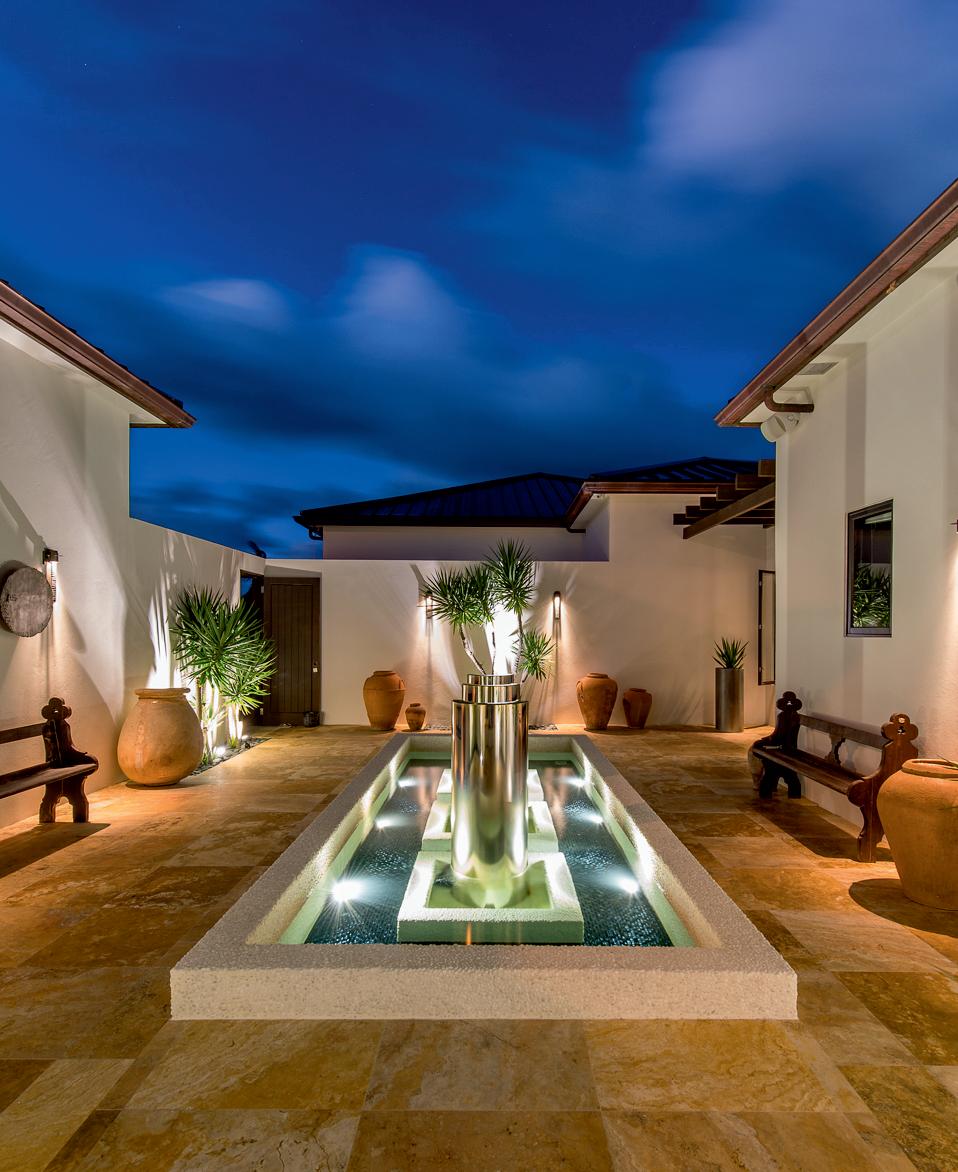


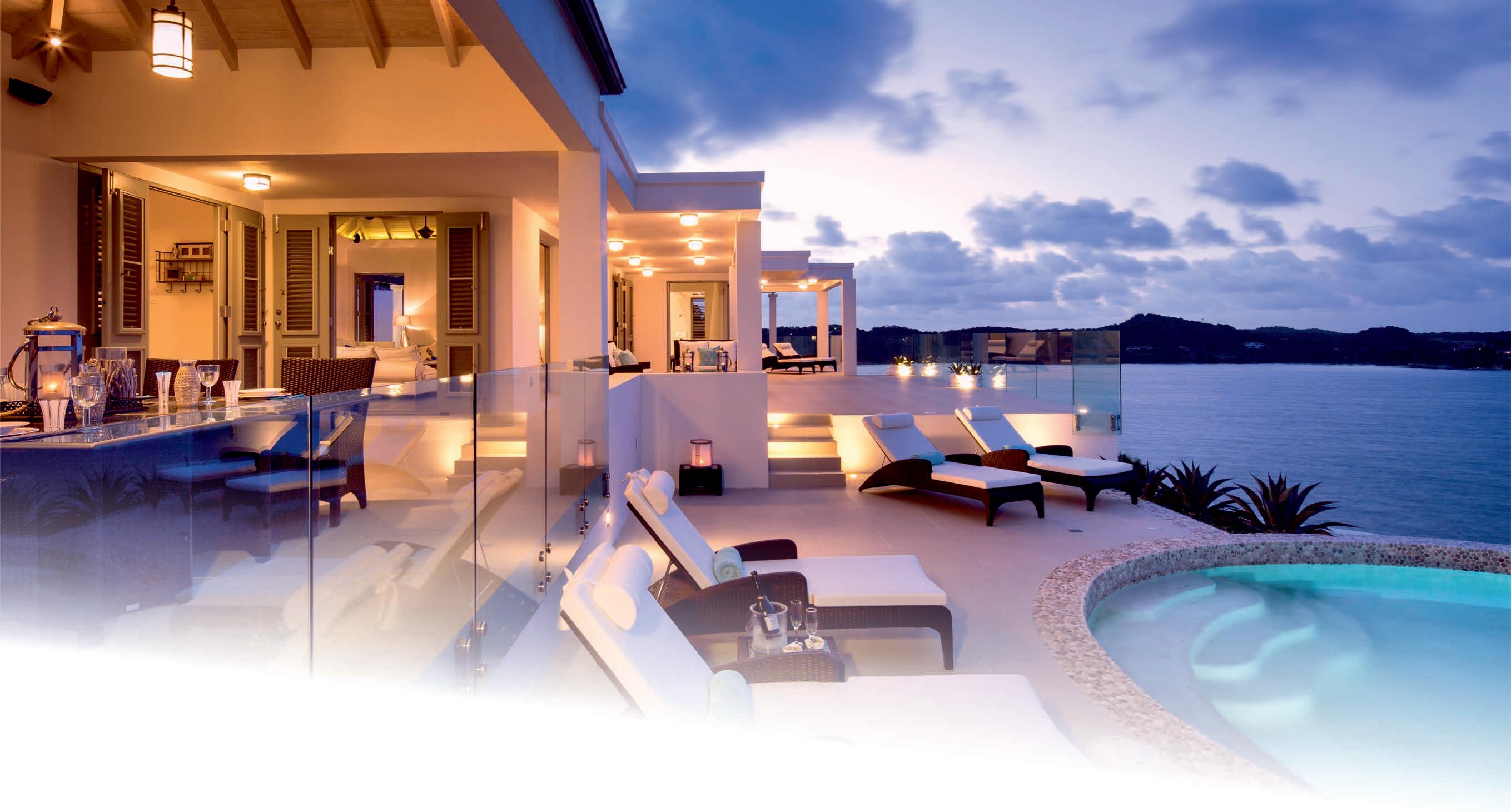


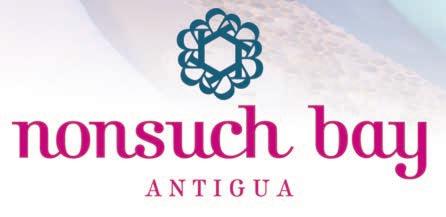
Certain passports open doors; other passports close them
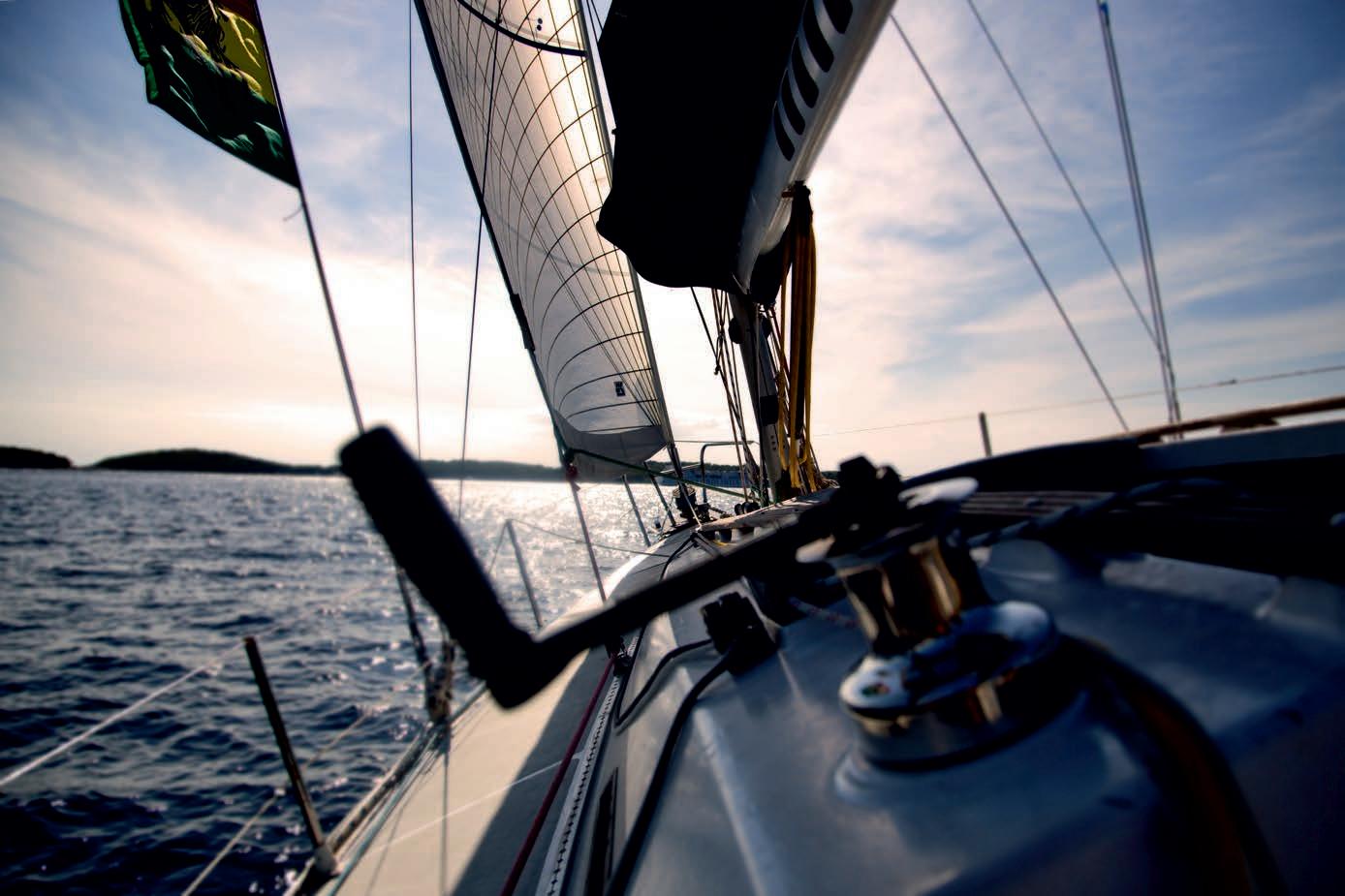
54 The CiTizen


Interview A
As Antigua & Barbuda and other Caribbean nations move towards the implementation of financial technologies and their necessary regulatory framework, we connected with Nick Cowan, the CEO of the Gibraltar Stock Exchange (GSX) and Gibraltar Blockchain Exchange (GBX) to get his insight into his recent experience as Gibraltar takes the lead on the regulation of businesses that use Distributed Ledger Technology (DLT). Nick has 35 years senior management experience in capital markets incl. Bear Stearns, ING Bank and is the founder of GSX Group.

56 The CiTizen
How is blockchain and cryptocurrency revolutionising the financial services industry?

We are in a fantastic period right now. Data storage and transmission and technology platforms have evolved from a very localised technology back in the 1980s when information was stored on your computer under your desk, to network technology and more recently to cloudbased technology. All these technologies have relied on a centralised service provider meaning that you are always in some way “hostage” to that service provider staying in business and maintaining a service. The Lehman Brothers’ events in 2008 when banks began closing down their credit lines, is really what led to the evolution of the peer-topeer paying system which we know as Bitcoin. Since then, technology has moved even faster and that is why we are currently at this very interesting juncture, which includes the transformation of capital markets.
Tell us about Gibraltar Blockchain Exchange.
Our main function is to help buyers and sellers of assets meet in a trusted marketplace. We incorporated Gibraltar Blockchain Exchange (GBX), as a subsidiary of our Gibraltar Stock Exchange (GBX), to bring institutional best practices into the utility token market. There are many operational, technological, legal and financial risks associated with any issuance and we aim to de-risk the proposition. We also want to protect the token buyers, so that they know that they are buying from a legitimate counterparty. In July 2018, we opened the GBX-GRID primary market which is the launchpad for ICOs within GBX and more recently the secondary exchange called the GBX-DAX.
What about the necessary regulatory framework?
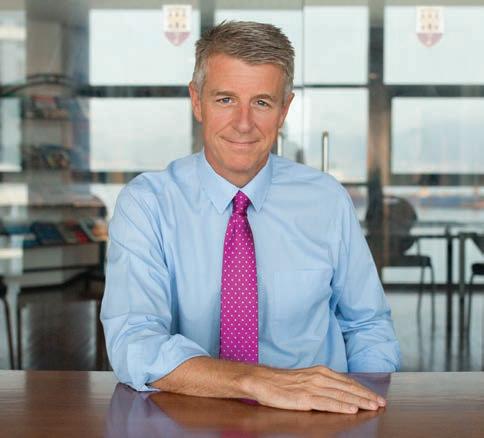
In January 2018, Gibraltar became one of the first crypto jurisdictions in the world to introduce a regulatory framework. Therefore, those who are in the business of using blockchain in financial services to store or transmit client assets, can come to Gibraltar and apply for a DLT license from our regulator. Regulation in cryptomarkets has become vital, and GBX itself has applied for a DLT license from the Gibraltar Financial Services Commission (GFSC) which is a very big step forward. This means that, there shortly could be a regulator-licensed cryptocurrency exchange in Europe that will allow people to trade with both crypto and fiat currencies. Other than Gibraltar, Japan is the only other country that has regulated exchanges. And with around 170 stock exchanges worldwide, we’re very
pleased to be the only stock exchange that also owns and operates a cryptocurrency exchange.
What is the difference between utility tokens and tokenised securities?
Tokenised securities allow investors and issuers to issue tokens, or digital securities, which represent equity and debt for example. Utility tokens are traded on GBX, with tokenised securities planned to be traded on our GSX, our EU regulated stock exchange network. Utility tokens are not subject to securities legislation, hence do not participate in the issuer’s profitability, revenue or equity of the balance sheet. However, tokenised securities are indeed in the world of securities legislation. This is what we already do for a living at the GSX, so it is a comfortable place for us, even though it’s still a relatively complex matter for others. Without being too melodramatic, I don’t think it’s an overstatement to say that capital markets are in for a complete transformation over the next decade! It is an extremely exciting time.
Can you tell us about your Private Permission Blockchain technology?
If you look at small stock exchanges like ours and those in the Caribbean, we are all pretty much in the same boat and looking to license technology. This often entails paying NASDAQ or the Deutsche Börse to use their technology. However, even using that technology, you still stay a small exchange and it’s very hard for smaller exchanges to gain global traction.
57 ISSUE 2 • OCTOBER 2018
Nick Cowan, CEO, Gibraltar Stock Exchange (GSX) and Gibraltar Blockchain Exchange (GBX)
We have decided to develop our own Private Permission Blockchain technology and to make it available to everybody. We call it the Global Securities Protocol (GSP). For example, Caribbean exchanges or market operators can adopt our no-fee technology and use our tokenised securities blockchain. Additionally, they can access a global network of partner exchanges. It is very innovative to allow the smaller exchanges in the world access to this global network and be able to offer their issuers listings in multiple countries at the same time as enabling local investors to access interesting global issuers.
Many smaller countries’ exchanges have been scratching their heads and thinking, “We know tokenised securities are coming, we know the technology can now support this. What do we do next? Where shall we go?” We think it is much better to join together and implement great governance, institutional practices and a shared network – a true collaboration of partnerships. Instead of competing with each other, we can actually work together. Exchanges in the Caribbean or in Gibraltar can reduce their clearing and settling costs as well as reach a whole new investor base by using the same chain. On the issuer side, we hope that issuers will adopt this much lower-cost, faster-tomarket technology allowing them to issue equity and debt. We are also extremely excited by the institutions themselves getting access to tokenised asset classes given that institutions naturally like regulation. At the same time, we are giving the hugely fastgrowing global crypto community access to securities.
It seems like an excellent opportunity for small Caribbean nations…

We think so. Furthermore, as we’ve been doing this for a while, we can offer them both the technology with different add-ons and a blockchain that they can jump onto at no cost. I wouldn’t exactly call it an “exchange in a box”, but it’s certainly a turn-key solution which allows nations to get fast-track access to solve their digital technology problems as well as access to a global network. We think it is a really compelling opportunity.
How can GBX assist with the right regulatory framework for these nations?
Although part of the EU, Gibraltar shares many characteristics with jurisdictions in the Caribbean and it would be easy for those nations to fast-track the DLT framework by bench-marking the legislation from Gibraltar.
Although historically Gibraltar has had its challenges and stigmas, Gibraltar made a concerted effort about 15 years ago to comply with every global directive. The OECD recently rated us up there with Germany in terms of compliance. When you’ve only got a population of 30,000 people, that is a huge task when there are so many directives to comply with. Today we can say that we have a very robust EU compliant regulatory framework. We could help Caribbean nations in any way they need to get where they want to get to. For us, the sooner they get there, the better! If they partner up and collaborate with us by joining our protocol, we will do everything it takes to get them there.
Some have described the digital world of financial markets as the Wild West!
To be honest, I think it was a fair description at some point. In our business of running a stock exchange and investment banking, it’s all about source of funds, investor protection, AML, prevention of terrorism, etc. The explosion of this new asset class, whereby assets can be transferred quickly and anonymously, has of course presented immense challenges for regulators. It’s hard to keep up with innovation let alone overtake and manage it. As a jurisdiction and as GBX we must comply with the regulatory framework directives such as the Crime Act, Anti-Money Laundering as well as our KYC risk assessments. In some cryptocurrency exchanges, an account can be opened with just an email address. In Gibraltar you have to submit your KYC, then we run a full AML test and verify your source of funds. We offer regulatory certainty that checks and balances have been carried out to a European Standard. Out of the thousands of cryptocurrency exchanges that exist, only a handful comply with a regulatory framework.
What is your final message?
Our technology allows us to create opportunities for smaller island nations to collaborate and partner up. We would love to work with Antigua & Barbuda as well as with other Caribbean nations to get this network moving as we enter 2019. They don’t have to worry about how the technology works as we will provide that at no cost. This will give places like Antigua & Barbuda the fast-track methodology to join the tokenised securities revolution – and I really believe it is going to be a revolution!

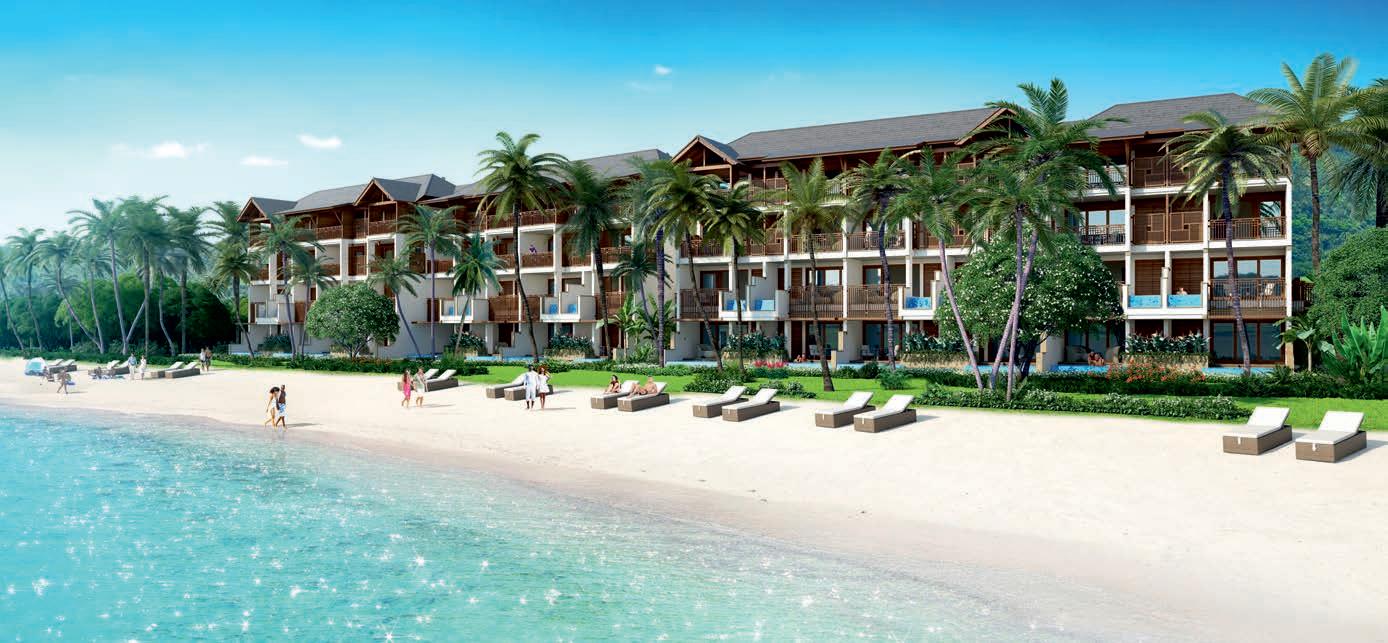
58 The CiTizen
AlThough pArT of The eu, gibrAlTAr shAres mAny ChArACTerisTiCs wiTh jurisdiCTions in The CAribbeAn.
Interview



A Bird’sEye View o f the TwinIsland s
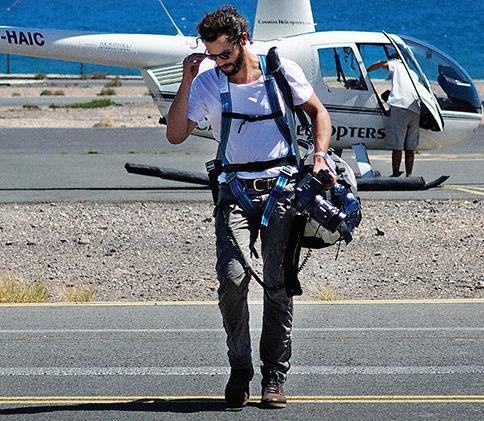
60 The CiTizen
Tommy Clarke
Having grown up on the south coast of England, Tommy’s fascination with beaches and coastlines began as a small child. Following his first aerial shoot over Bondi Beach, Australia some years later, he decided that was how he wanted to spend his life.

Since then, he spends part of his life hanging out of helicopters across the globe taking incredible aerial shots of landscapes and coastlines which have graced the covers of international magazines.
The amazing images of Antigua & Barbuda speak for themselves about Tommy’s love for the islands and form a major part of his most popular works.
We talked to Tommy, based in London when he is not travelling, to find out more about his work and his love affair with the Twin Islands.
61 ISSUE 2 • OCTOBER 2018



62 The CiTizen
These photos are part of the series of work by Clarke featuring some of Antigua & Barbuda’s most iconic landscapes taking us off the beaches and into the skies.
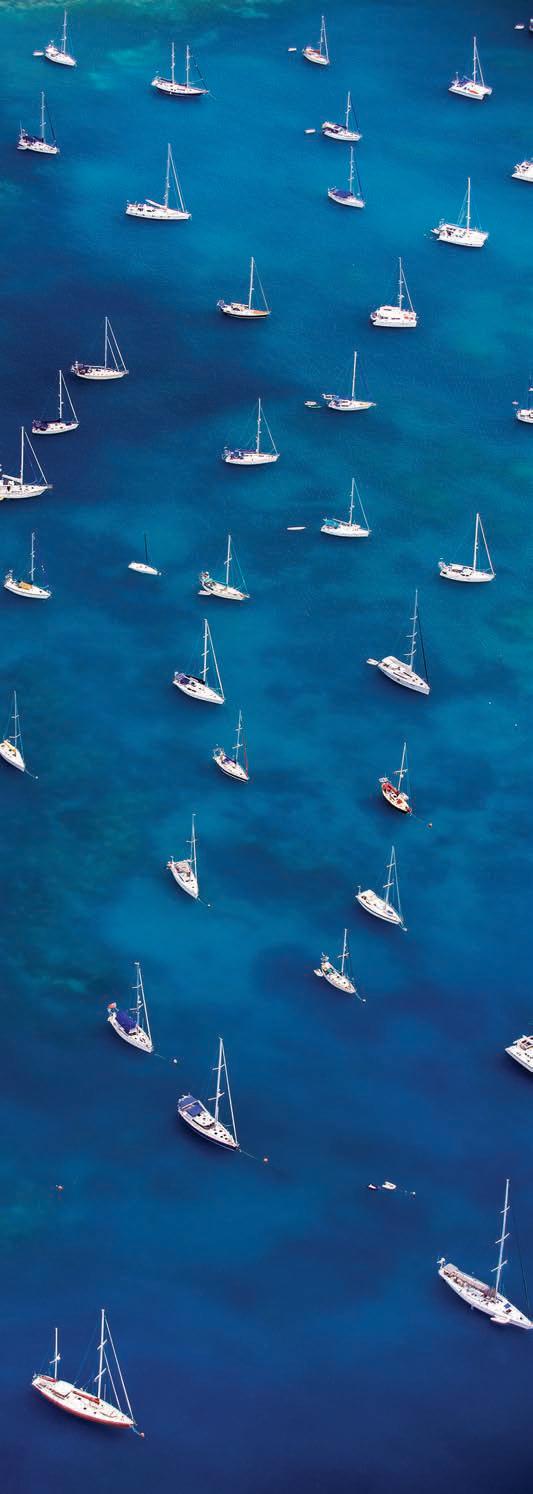

63 ISSUE 2 • OCTOBER 2018
QA &
I heard that you have a fear of heights! How then did you get interested in aerial photography?
I do yeah! But more the kind where my knees would start shaking if I stood on the edge of a cliff, but I still get nervous at times in the helicopter, particularly if it’s a windy day! I had always loved looking at aerial photos and videos, be it in movies or nature documentaries, so the desire to build a portfolio of aerial images had been there for a while, the fear of heights had to come second!
Many photographers are using drones today, what way does the use of helicopters enhance your photos?
I am not fully up to speed with drone technology, but I know they can take some beautiful images. For me it’s not necessarily the quality that enhances my photos, its more the process of taking them. I work in fine art most of the time and I think that being able to sit up there and really study the landscapes before deciding what to photograph is very important to my craft. It’s also incredibly good fun!
What constitutes the “perfect shot” for you?

An image that is not instantly recognisable as a photograph, with great colours, textures and framing.
What do you think your photographs capture?
I hope I capture the natural beauty of the world, giving a glimpse in to the true beauty of the world that surrounds us, from abstract shipping container ports to beautiful Caribbean beaches.
Who is/was your greatest role model?
In a photography context it would be Massimo Vitali, a wonderful Italian artist that truly captures those blissful summer beach days.
When did you first visit Antigua & Barbuda?
My first trip was in 2016 and I think I fell in love with the islands instantaneously.
What do you find so magical about the islands?
Well of course the natural beauty is a given, the beaches are second to none and seeing the islands from my point of view in the helicopter confirms how beautiful they are. But also, the genuine love and passion the people have for their islands is contagious and has helped draw me back time after time.
Is Antigua & Barbuda somewhere you can imagine spending extended periods of time in the future?
Without a shadow of a doubt! I sail, scuba dive, kite surf, etc so there aren’t many better places on earth to enjoy all those! I could happily spend a very long time in Antigua & Barbuda and have even thought of opening a small gallery there too!
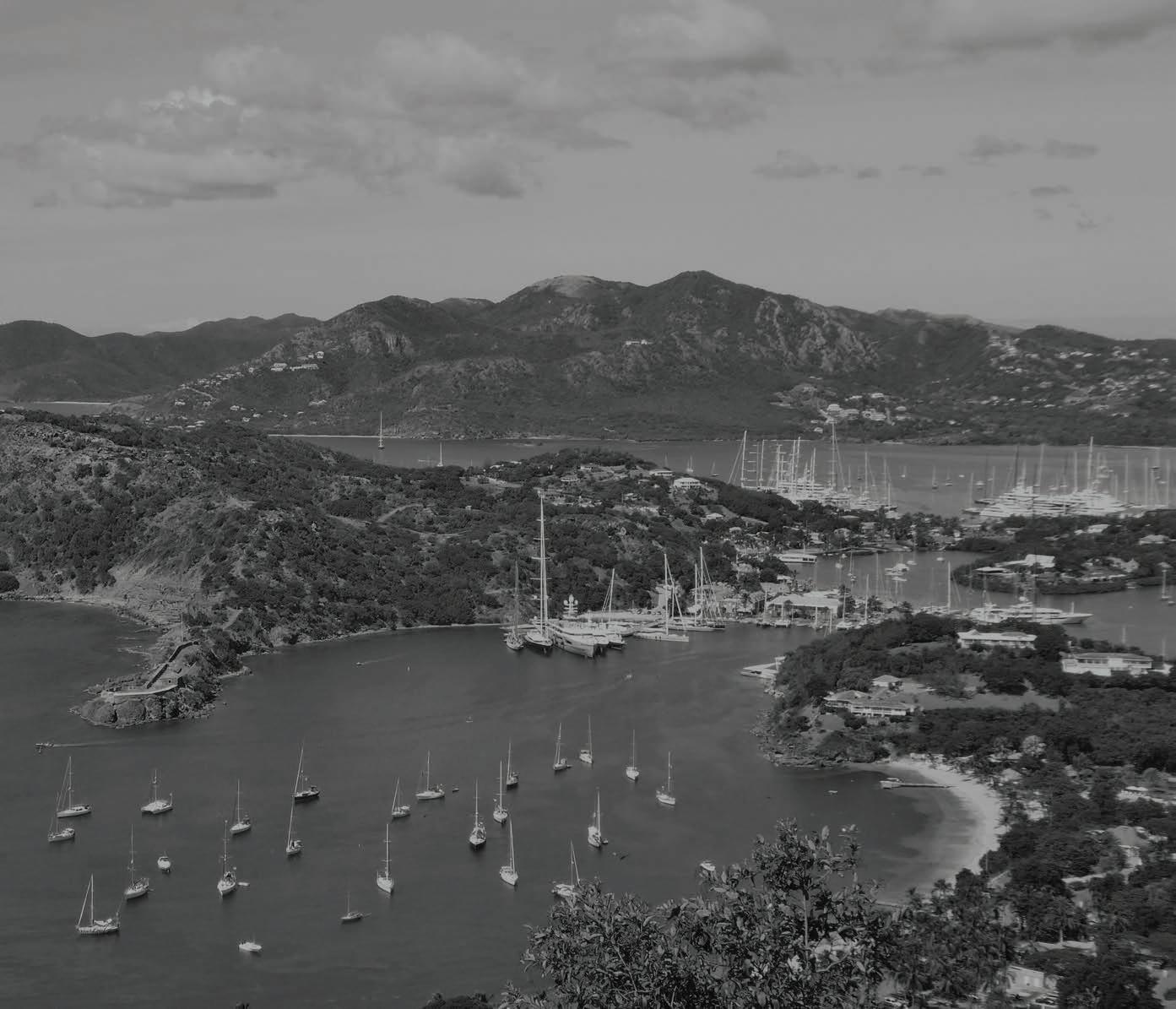
64 The CiTizen
Technology-Enabled Solutions for the RCBI Industry
Create a comprehensive risk profile in minutes

Search across multiple languages and countries

Screen current information across thousands of data sources
Reduce false positives and duplicates
Monitor for new red flags in real-time Exiger’s AI-powered automated due diligence solution is transforming the way that agents screen applicants.

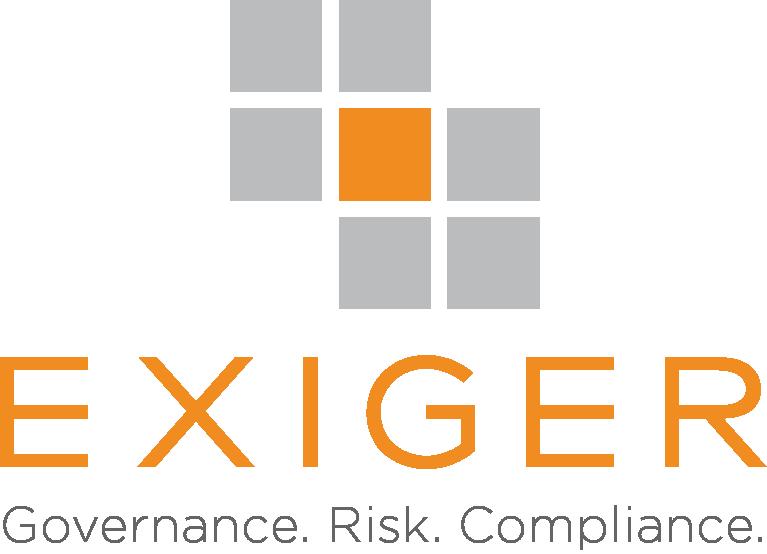
KYC PERFECTED
exiger.com
Contact Karen Kelly at kakelly@exiger.com to find out more.
2017REGTECH COMPANYOFTHEYEAR
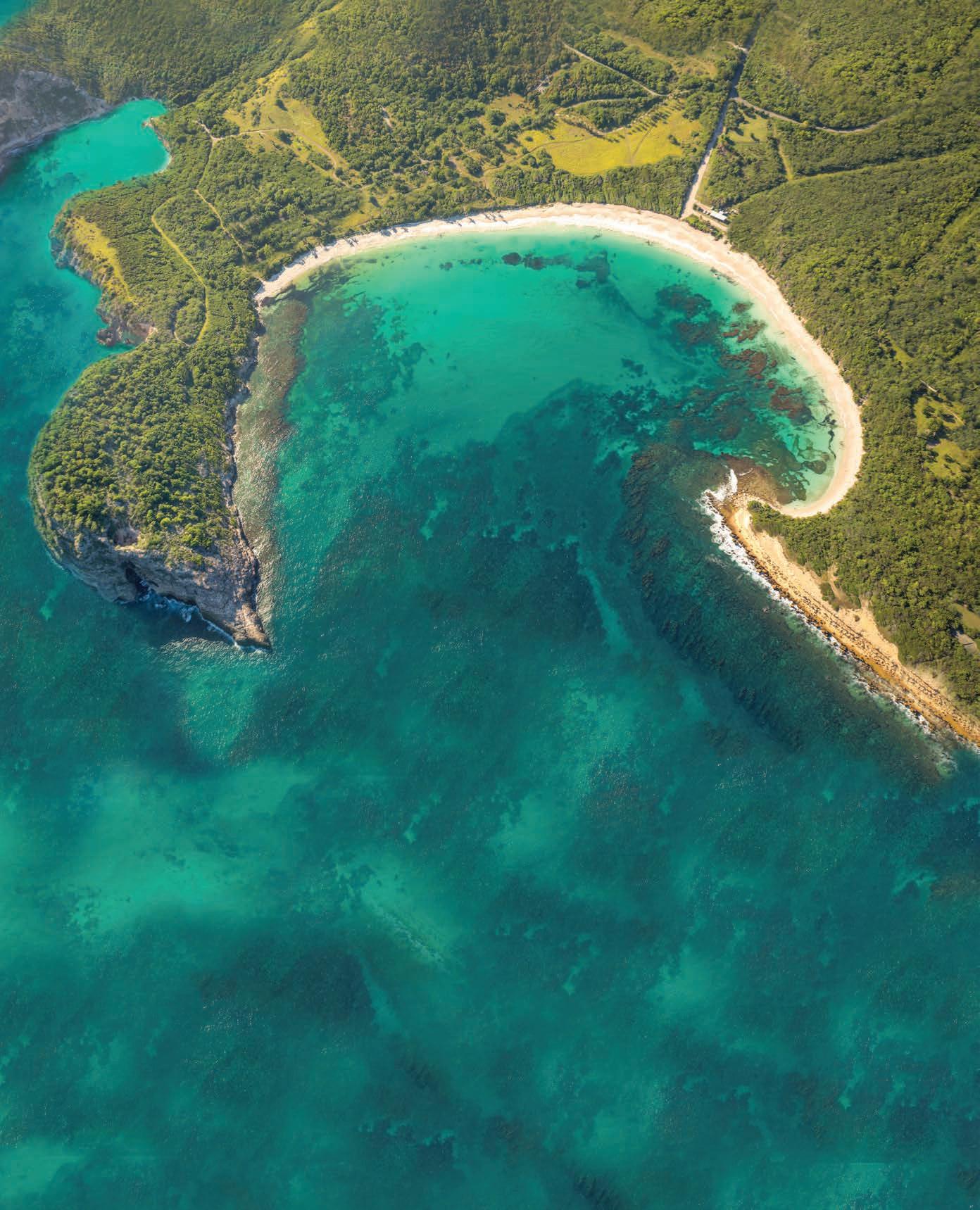
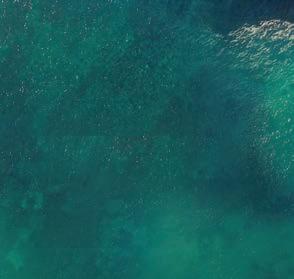


66 The CiTizen
A second citizenship and property investment can be an essential component in your wealth preservation strategy
INVEST IN THE CARIBBEAN’S MOST ANTICIPATED RESORT






rosewood half moon bay antigua
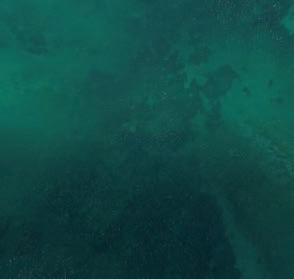
132 acres of natural wonder including 8,000 feet of pristine oceanfront and a beach considered one of the world’s most beautiful.
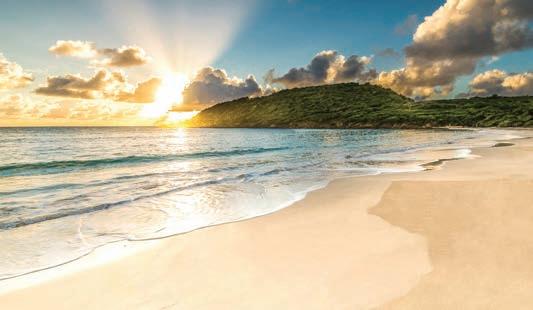


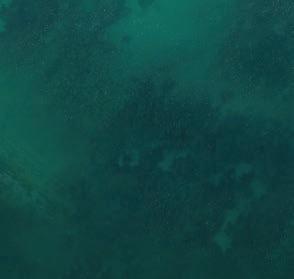
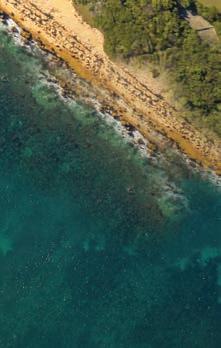
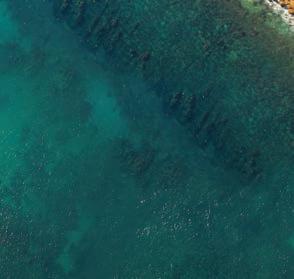
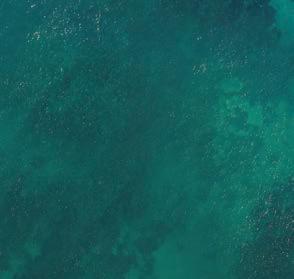
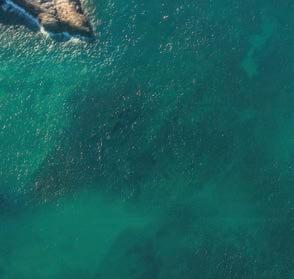


The resort is anchored by the Rosewood Half Moon Bay, 47 pavilion-style suites designed by world-renowned architects and featuring innovative restaurants and bars, a world-class spa, immersive bespoke experiences, and ultra-luxury hospitality.
For further information, please contact Arton Capital at info@artoncapital.com
T +1 268 562 9296 F +1 268 562 9297
halfmoonbayantigua.com
Focus educa tion
on
&
The Island Academy International in Antigua is the most prestigious educational facility on the island, offering one of the only International Baccalaureate (IB) programmes in the Caribbean. With just under 300 local and international students, it provides a multi-cultural and diverse environment for its pupils. We talked to Bernadette Sherman, Board Member and Founder, and Portia Moursy, Head of School to find out more about this prestigious educational facility.
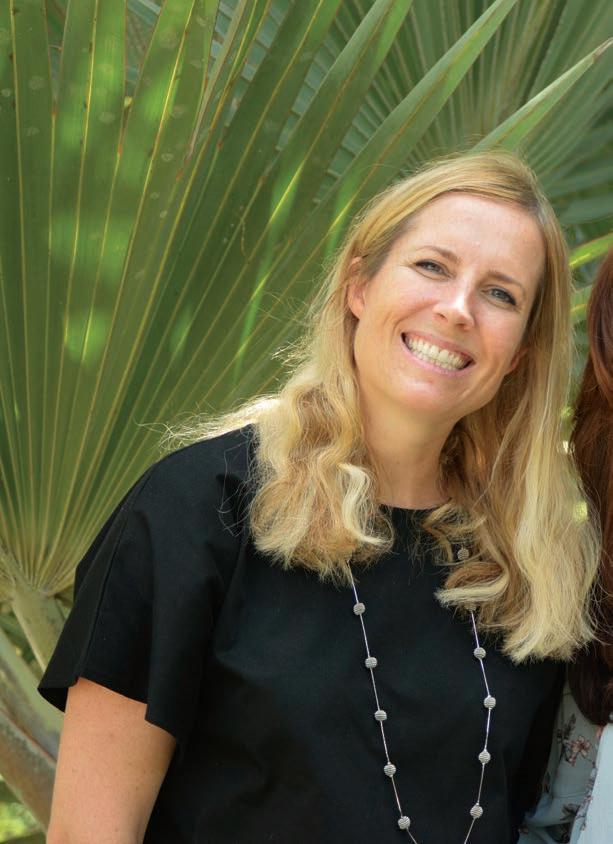
Q & A
68 The CiTizen
Portia Moursy Head of scHool
Bernadette sHerMan Board MeMBer & founder
The Island Academy International (AI) was founded in 2001. Can you give us a brief history of how and why the school was founded?
I was raised and educated in Antigua, and then travelled to Beirut, Lebanon to begin my university education. My experiences led me to dream about establishing a premiere school that would allow children to remain on island with their families throughout high school giving them a worldclass education. I determined that the “gold standard” in education is the International Baccalaureate (IB) Programme and went about creating this school from scratch. Integral to my mission was a commitment to fill our classes with 40% full or partial bursary scholarships for Antigua’s children. I sought out donors who shared my
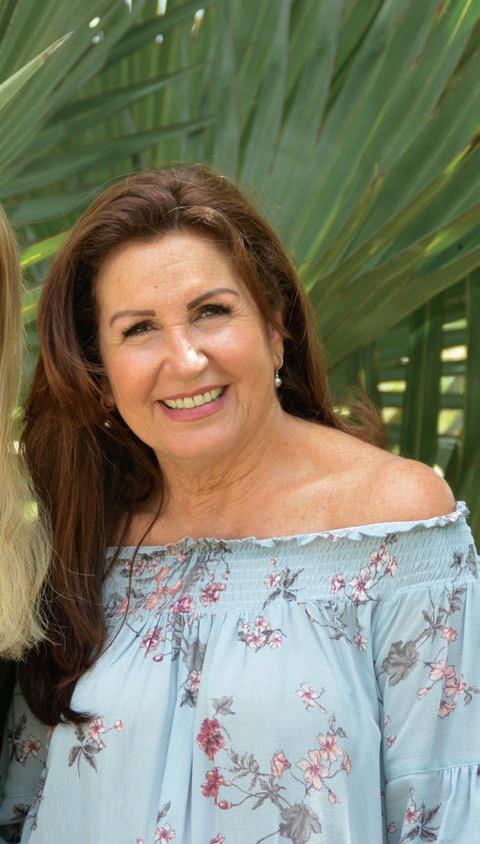
passion for education and for Antigua and its children. The school began with 45 students and we have managed to grow our classes each year. In 2008, we obtained the land that is now the Olivers’ Campus and slowly began the building process. We have just celebrated our 17th year and have 270 students from Kindergarten through Grade 13, the equivalent of the first year of university.
“Unity through diversity” is the school’s motto. There are over two dozen different nationalities between the students and the staff as well as a range of different socioeconomic backgrounds. How does such a vibrant multi-cultural and socially-diverse environment enrich the students’ experience?
Our motto recognizes our commonalities as decent human beings and reinforces our shared values regardless of our individual religion, ethnicity or socio-economic status. At the core of our institution is the IB World schools 10-point learner profile. Its noble characteristics are at the heart of our curriculum and activities. The mix of students and staff is so diverse that it truly reflects any international school in the world. IA personifies the notion of peer-to-peer sharing and growth. As professional educators, we are so fortunate to be part of a genuine learning community where we learn from our students as we teach them.
As one of the only IB programmes in the Caribbean, what role does
the IA play when potential investors are deciding which Citizenship by Investment Programme to choose in the region?
The ability to provide seamless movement of students worldwide with the existence of an IB school is one of the substantive roles of AI. As families contemplate citizenship or investment in the Caribbean, the existence of a world-renowned, established program such as ours offers the assurance that their school-age children will not experience educational gaps. This is one of the central functions of the school.
Around 40% of the students receive either full or partial assistance with their fees. How do you secure the finances for their education?
From its inception, the vision of the Board of Trustees was to deliver this bespoke education to the island’s students regardless of financial wherewithal thus enhancing the prospects for Antiguan children, especially the disadvantaged. The board have been fortunate to have the support of many expatriate homeowners and visitors to Antigua. We individually appeal for support to potential donors with an attachment to Antigua and a value for education. It is critical for me at this point to recognize the Curtain Bluff Resort guests, Jumby Bay homeowners, Mill Reef Club homeowners, the Calvin Ayre Foundation, the Maria Holder Memorial Foundation, the Boltini Trust who have been core benefactors and have been pivotal to our progress.
69 ISSUE 2 • OCTOBER 2018
“As families contemplate citizenship, or investment in the Caribbean, the existence of a world-renowned, established program such as ours offers the assurance that their school-age children will not experience educational gaps.”
Can you tell us about the IA’s academic performance and results?
We have been an International Baccalaureate Diploma accredited school since 2009. Over the past few years, our results have steadily improved, so we now enjoy a 100% diploma pass rate annually. Moreover, we have also been out-performing international averages for several years, which is a real accolade considering we are a small school that is part of a family of over 4,500 institutions across the globe.
Our students are top performers when compared with others on island and many of them matriculate to leading North American universities (McGill, Georgetown, Morehouse College) and the UK’s Russell Group universities (St. Andrews, Southampton).
Our staff are all truly exceptional teachers, trained in internationallyrenowned universities, and dedicated educators of the whole child. We believe that our mission succeeds because of the solid foundation provided by our teachers.
Island Academy places an importance on sport, art, drama and music in its curriculum. Why is it so important to encourage students to take part in non-academic activities?
Our students learn to work in collaboration with others through groups and small partnerships, to advocate for their ideas, to listen with compassion and use critical thinking skills and to present their thoughts with clarity.
Our music, drama and performance curricula assist in all these areas as it teaches communication skills and gives confidence in presenting before an audience.
Our athletic teams promote budding talent and teach skills, all the while emphasizing the importance of practice and hard work to master a goal. Field trips, learning outside the classroom and community service are
key components of our mission. We, at IA, value our opportunities and share our appreciation for them by giving back to our community in many projects and doing as much as we can to improve life for others.
Your top priority is to increase your Scholarship Bursary Fund to support more students in need. Can you tell us more about this 2020 Endowment Fund?
Our goal is to raise US$10 million to secure an endowment by 2020. This is the only avenue to safeguard the 40% bursary students, and to maintain our beautiful campus. This fund will protect the life of the school in perpetuity.
You both have interesting international backgrounds. How has this experience helped shape your vision for the school and its continued development?
Bernadette: Growing up in Antigua, of Syrian heritage and attending university in Lebanon and the USA, afforded me the ability to recognize the need for students to have a more diverse and robust curriculum in preparation for university abroad. My student teaching experience in Beirut exposed me to the IB program that really shaped my vision for the school.
Portia: I attended a large, government school in the middle of England where I quickly realized that education was a powerful tool that had the potential to change and improve lives. It was this experience that inspired me to become a teacher. We might not all be born in the same circumstances, but the right school and classroom can be the most powerful human leveller.
It has often been said that “brain drain” is the curse of smaller states. How can Antigua ensure that their stellar students return after their international studies?
The country’s successful tourism market is growing, and Antigua enjoys a special
reputation as a high-quality eco and wellness destination. This industry has a compounding effect on other sectors, such as hospitality, communications, marketing, accounting, health care, culinary arts and music. As these and other related fields grow, our young and educated Antiguans will be excited to play a role in putting their country on the international scene.
How do you see the evolution of the IA over the coming 10 years?
Our vision is to have IA continue to grow with a robust endowment. It will be the foremost educational presence in Antigua and in the Caribbean and its bursary students will continue to have scholarship opportunities to study at university level without incurring debt and without having to suspend education after the Caribbean Examinations Council. The school will boost many sports teams competing at highest levels and its students will be recruited to play at university level. We envision many joint community projects and our campus will be the site of many community outreach classes and programmes. We will improve the quality of our athletic facilities and develop our campus. We will continue to expand our curriculum and subject offerings within the arts, science and technology whilst maintaining a profile for top performance in the region and the world.
Your final message?
The making of Island Academy has been the work of many committed individuals over the years. These people - board members, faculty, parents, students and benefactors - all have engaged in a successful partnership which affirms and defines a 21st century narrative for our island nation. It is with immense gratitude that we recognize this collaborative effort that has created this remarkable school, and we are excited by the plans and promises for its future.
70 The CiTizen
Focusoneducation

71 ISSUE 2 • OCTOBER 2018
Students help keep Antigua clean through beach cleanups. Debris, used to stimulate their imagination, is transformed into artwork.
thought leadership
by Heyrick Bond Gunning CEO S-RM
CITIZENSHIP BY INVESTMENT Du E D I l I g ENCEI S IT HITTIN g THE M ark?
hat is adequate due diligence and what is best practice? These are questions that our clients in a range of sectors grapple with on a constant basis and I, as the CEO of one of the panels of due diligence providers to the citizenship and visa programmes available worldwide, often have to answer. Due to the breadth of our client base, we can provide an insight into the levels of due diligence undertaken by nations and companies operating in highly regulated environments.
The key is to be ahead of the pack, at the cutting edge, helping shape the policy as there is only one certainty – volatility and uncertainty in the world, combined with the drive for ever more transparent financial services, will result in an increase in regulation from governmental and trans-national bodies.
All the citizen and visa programmes have one thing in common – their foundation rests on a transparent and at times exacting due diligence process, around security innovation for identity and verification, ongoing monitoring of the applicant in case their circumstances change and around absolute clarity during the onboarding decisionmaking process. An opaque decision-making process
72 The CiTizen
“The due diligence reports provide a comprehensive understanding of an applicant’s personal and business profile.”
will undermine all the hard work undertaken in due diligence and therefore the two are inextricably linked. Furthermore, at the heart of the matter is the need for legislation that enables citizenship and visas to be revoked if there is a negative change in personal circumstance.
Focussing on the due diligence process, there are wide-ranging requirements from basic disclosure to more robust processes. The CBI due diligence processes are considerably more detailed than the onboarding seen at many of the top tier international banks and some of the visa programmes. In the UK, for example, the documentation requirements for Tier 1 investor visas are limited and the due diligence process is far lighter than the Caribbean programmes which have extensive disclosure requirements for each
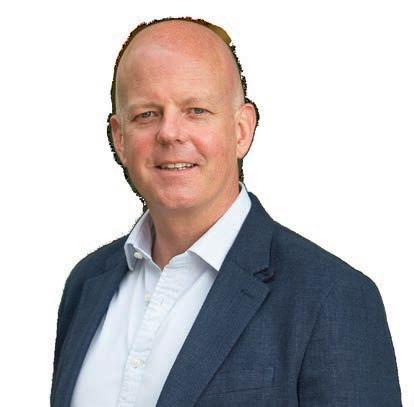
application, to be supported by documentation, before an applicant is submitted for vetting. The due diligence reports provide a comprehensive understanding of an applicant’s personal and business profile, whilst verifying their disclosed information and supporting documents, enabling the CBI to make an informed decision when accepting or declining an applicant and their dependents. The level of detail provided also greatly inhibits individuals using the CBI and RBI schemes to circumvent the Common Reporting Standard.
Each enhanced due diligence project includes thorough examination of the information provided by the applicant. This information is then cross checked with the findings of independent investigations. Each report covers a 10-year history examining the applicants’ addresses, passport, police record, business profile, reputation and AML/CTF/ABC requirements with supporting documents to support their reported financial information, including corporate filings (such as incorporation documents or annual accounts), title deeds for land or property assets, stock portfolios and bank statements. This information is then analysed for any signs of illicit activity. The applicant’s business interests are also investigated by in-country contacts to ensure there are no allegations of illicit activity. There is then a detailed assessment of anti-bribery and corruption, anti-money laundering, counter-terrorism funding and related reputational and integrity risks. Finally, they are checked for sanctions, wanted lists and political exposure.
This is without doubt a thorough due diligence process that is more than adequate, more so than many other onboarding programmes undertaken in the financial services and by nation states. They are setting the benchmark. That said, the integrity of the programmes rests on the transparency around the CBI assessment that follows, the ongoing monitoring and the removal of citizenship from those miscreants who fall foul of the high standards that are required.
73 ISSUE 2 • OCTOBER 2018
“The CBI due diligence processes are considerably more detailed than the onboarding seen at many of the top tier international banks and some of the visa programmes”
thought leadership
by Russell Scarcella Director Exiger (New York City)
t echnology s olut I ons for d ue dI l I gence – What Quest I ons s hould you be a sk I ng?
ithin the Residency and Citizenship by Investment (RCBI) environment there is a marked increase in scrutiny of both programs and agents with respect to applicant due diligence. This increased scrutiny and pressure comes from multiple directions – financial institutions and their respective correspondent banks, regulators, RCBI program operators, and foreign governments. Among these pressures, agents are more and more expected to have a vigorous onboarding procedure for their applicant clients including appropriate due diligence screening which is efficient, consistent, and auditable.
There are a number of technology products purporting to provide effective due diligence screening solutions for the RCBI industry which claim to meet these new, more exacting standards. However, not all have the same capabilities, and many fall substantially short of industry best practices. Armed with a few basic technology-focused questions, RCBI industry professionals can critically evaluate potential solutions to find the one best suited to their business model and screening needs as relates to clients with global footprints.
Is the technology desIgned to focus on rIsk?
Many search technologies do a fine job of capturing data on a specific subject. But without the added functionality of risk-focused categorization, the user is left to review disorganized and irrelevant information, wasting time and promoting inconsistency and human error.
Innovative technologies like natural language processing (NLP) enable machines to understand context and hone in on findings related to risk. Automated risk classification means your time is spent reviewing red flag issues, not trying to identify and organize them.
74 The CiTizen
“It is important to understand the difference between structured and unstructured data when reviewing technology solutions for due diligence.“
Does the technology search anD unDerstanD finDings in multiple languages?
The majority of clients in the RCBI industry come from jurisdictions where the primary language is other than English. Many technology solutions search only in English characters and/or English language. While English spellings of individual and company names sometimes appear in foreign language websites and publications, the inability to search in their native language leaves a notable gap in the diligence process by overlooking significant amounts of local, and often more reliable, information on a given subject. Your chosen technology solution should be able to screen data from across jurisdictions and languages, particularly those languages and jurisdictions relevant to RCBI applicants. Once the information is captured, presenting those findings in easy to understand translations is also a critical capability.
managing false positives
anD Duplicate finDings?
Weeding through information that is not relevant to your subject, and reviewing information on the same topic multiple times are two of the most time consuming and frustrating aspects of the due diligence process. Results should be immediately useful to you, and not require hours of work to sort and identify the risk-relevant items you want to review.
A technology that uses NLP and machine learning algorithms to understand context will identify and weed out false positive data effectively so that you don’t have to. Similarly, these technologies can be directed to identify and remove duplicates, saving time and money.
structureD v. unstructureD Data?
It is important to understand the difference between structured and unstructured data when reviewing technology solutions for due diligence. A technology solution that harnesses both produces the most complete risk profile of your client.
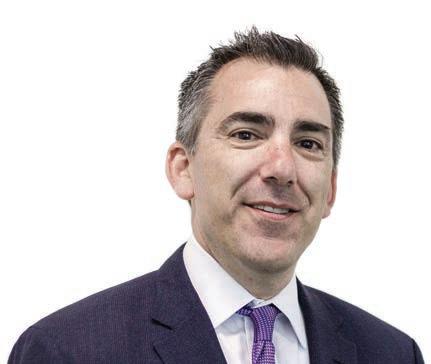
Structured data consists of organized content such as lists, databases, spreadsheets and direct websites. These are easily searchable by basic technology solutions as they are neatly laid out and systematized. It is estimated, however, that 80% of online information is data that is unstructured, such as magazines, news articles, web pages, blogs and social media, as well as open source internet and deep-web content.
A solution that searches only structured data, without the ability to harness and understand information from unstructured sources, is thus only taking into consideration at most 20% of the risk-relevant information potentially available about a subject.
real-time information or curateD Databases?
Proper due diligence screening requires building a risk profile that incorporates up-to-the-minute information across all available data points.
Curated databases have limited information on a limited number of subjects. Content is governed by human intervention in deciding the methodology for inclusion, the data points collected, and update frequency. However, real-time open source screening assures you that the risk profile you are reading today has the most timely and relevant information available.
ongoing monitoring for new reD flags?
Best practices demand that your client maintains his/ her reputable status throughout the application process. Their application, and your reputation, depends on it. A complete technology solution will offer ongoing monitoring capabilities that continue to scan real-time sources and identify risk-relevant information should it arise so that it can be addressed in a timely and effective manner. Increased scrutiny of RCBI applicants demands that agents take greater steps to meet due diligence best practices for onboarding new clients and applicants. Technology solutions exist to assist in this process, leveraging advanced technologies like Artificial Intelligence, Natural Language Processing and Machine Learning to create efficiencies and promote accuracy. Armed with the right questions, it can be easy to navigate those solutions to identify one that best meets your needs, and those of the RCBI industry.
Note: Karen Kelly, Director of Strategy & Development, based in Exiger’s Vancouver office, also contributed to this article.
75 ISSUE 2 • OCTOBER 2018
thought leadership
by Giselle Bru Chief Operating Officer PassPro Immigration Services
hen GDPR – the much-discussed General Data Protection Regulation – was rolled out in May 2018, the law on data protection and privacy for all individuals within the European Union (EU) and the European Economic Area (EEA) raised many important questions.
This included the rights individuals should have over their personal data and how businesses and even governments should responsibly approach the exercise of collecting, storing, using and sharing this data.
In the second citizenship industry, the issue of personal data, confidentiality and transparency is one that is repeatedly and hotly debated among clients, governments, financial institutions and regulatory authorities.
Where does one draw the line between full transparency and breaching individual privacy? How can authorities strike a reasonable balance?
WHO HAS THE RIGHT TO FULL DISCLOSURE?
Clients often ask - do governments need to have the right to know every single detail of one’s life in order for a person to qualify as a citizen of a country?
More importantly, does the public and the media have the right to know all this information too?
The debate on full disclosure vs confidentiality is one that celebrities, politicians and others in the public eye encounter on a day-to-day basis. But for ordinary people, most find it very uncomfortable to have a stranger look into the intimate details of their private lives – these can include details of your civil life such as previous marriages or children from previous marriages, transactional information such as the sale of private assets or where they own primary or secondary residences.
76 The CiTizen
T RA n S pARE n C y vs C O n FIDE n TIALIT y I n S ECO n D C ITI z E n SHI p
“Many second citizenship applicants wonder to what extent the background checks will invade their privacy and their circle of acquaintances.”
Many second citizenship applicants wonder to what extent the background checks will invade their privacy and their circle of acquaintances. As authorized agents, clients often ask us questions like:
“Will they call my boss and tell him I am applying for a second citizenship?”
“Will they call all my siblings and inform them about my decision?”
“Why are they asking for the contact details of people I do business with? This is a private matter that my business associates have no need to be involved in.”
Many opponents of citizenship by investment programs attribute this reluctance to share personal information to nefarious reasons without considering that there may be a simpler reason responsible – a desire to maintain one’s right to privacy.
WHAT IS THE REAL GOAL OF DUE DILIGENCE?
There are a lot of questions around the due diligence process; in essence it is pretty straightforward.
When a government conducts due diligence with the goal of approving legal second citizenship, what they are trying to determine are three core points:
1. Are you who you really say you are?
2. Have the funds you are using to pay for citizenship been acquired legally and legitimately with no links to money laundering or terrorism funding activities?
3. Are you likely to be a security of reputational risk?
PRIVATE VS PUBLIC GOOD
Transparency in this regard helps governments protect the integrity of their citizenship and the rights and benefits enjoyed by all its existing and future citizens. It is crucial
to the long-term sustainability of strong Citizenship by Investment programs.
However, beyond determining the above, individuals have the right to protect their privacy and keep their personal details confidential, especially with regard to the wider public and the media.
Governments should have the right to check out the backgrounds of applicants, but this does not extend to publicly sharing details of someone’s identity.
There are many parallels that can be drawn between the right to information and the right to privacy that are debated when discussing media interest in the private lives of public figures. It often boils down to whether disclosing details of someone’s private life and identity has impact on public good.
In the citizenship by investment industry, this debate was put to vote in Cyprus earlier this year. In April 2018, the Cypriot Parliament rejected a proposal to publish the names of foreign nationals who have been granted citizenship by Cyprus, whether honorary citizens or via investment.
At the time the Cyprus’ Commissioner for Personal Data Protection, Irini Loizidou said: “There is no legal basis for publishing such data”. She further added that while the law provides for Parliament to know the names of those who obtained citizenship through investment, “this does not justify its potential publication or leaking to media”.
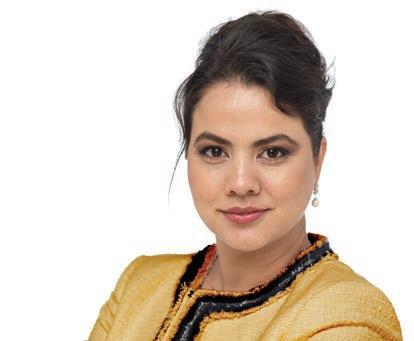
Today, with so many discussions about the right to hold and share personal data surrounding GDPR, it has never been more important to try to balance the increasing calls for transparency with the increasing right to individual privacy.
It is a delicate act, that if achieved, will reassure clients as well as solidify the legitimacy of well-structured citizenship programs.
77 ISSUE 2 • OCTOBER 2018
“Governments should have the right to check out the backgrounds of applicants, but this does not extend to publicly sharing details of someone’s identity.”
Yacht Quar ter

78 The CiTizen of the
Rivale
Riva always challenges the notion of what is “state of the art” in yachting.
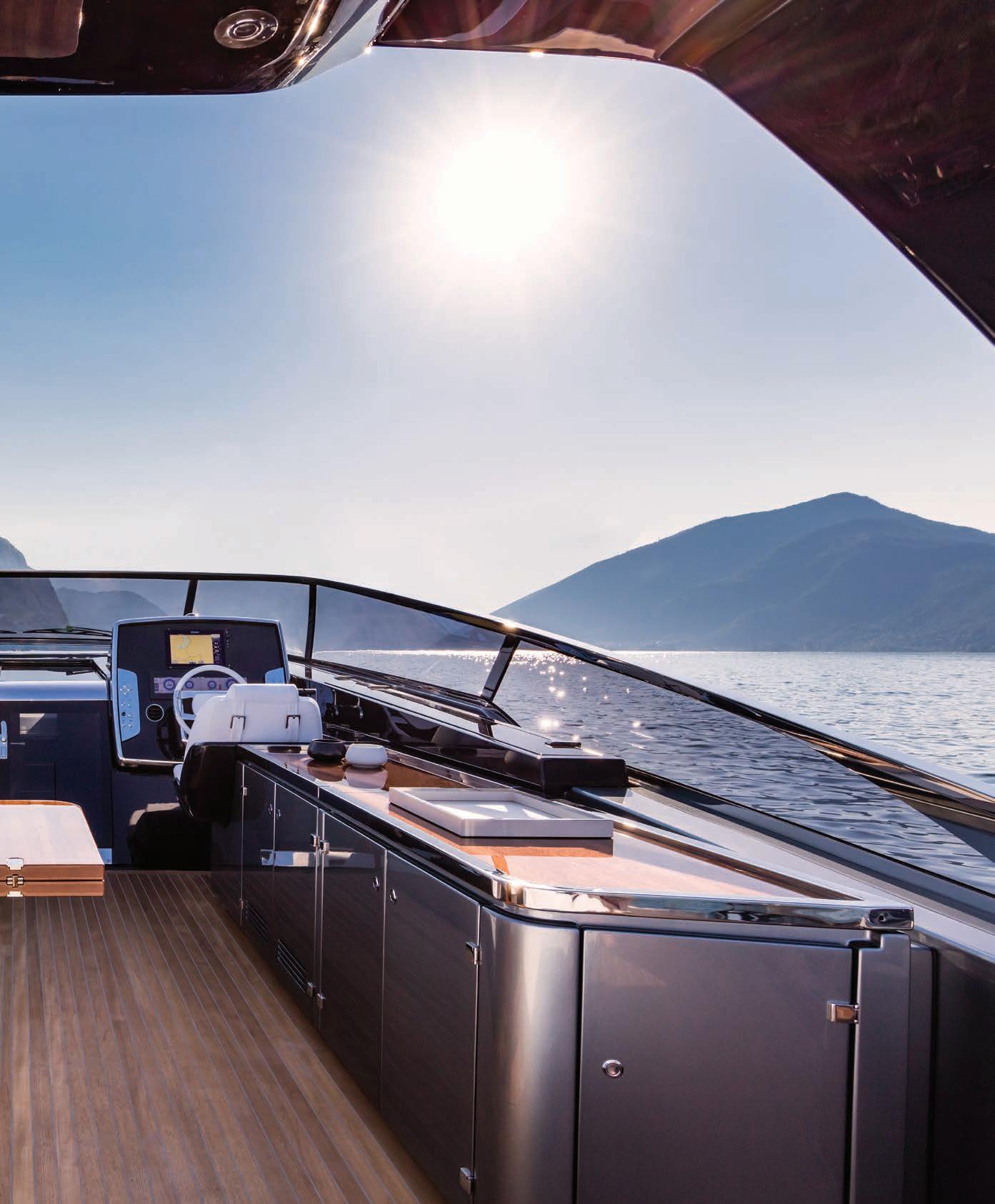
79 ISSUE 2 • OCTOBER 2018
TThe 56’ Rivale is perfect for those who love spending their holiday on the sea and those who enjoy unforgettable day cruises. Full of charm, power and technology, it immediately conveys elegance and sport. The sleek, glazed windows run seamlessly across the hull with flush portholes, enabling those on board to feel truly part of the sea. The bold metallic of the exterior is joined with sleek steel elements and teak detailing. Its unique windshield
protecting the helm is a true blend of engineering and design resulting in a stunning aerodynamic profile. The utmost attention to detail is classically Riva, using the finest materials, distinctive hallmarks of the brand throughout its history: from the high gloss mahogany of the interiors to the natural teak of the exteriors, from lacquered finishes to stainless steel details, and from mirrored and glazed surfaces to superior leathers.


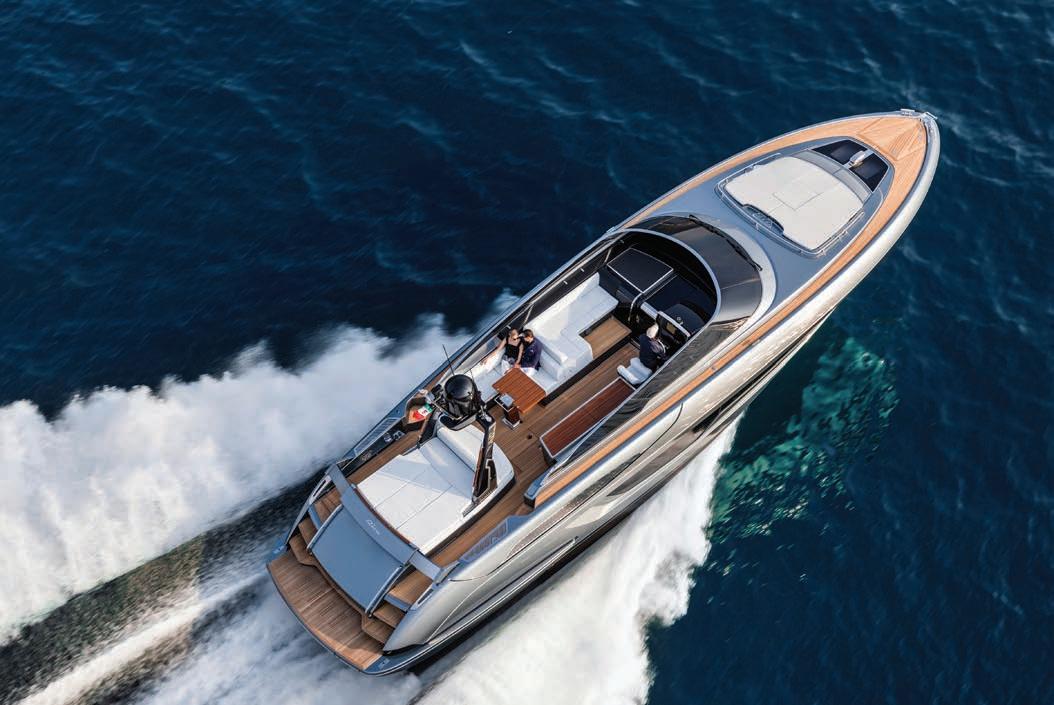
80 The CiTizen
Yacht ofQuarter the
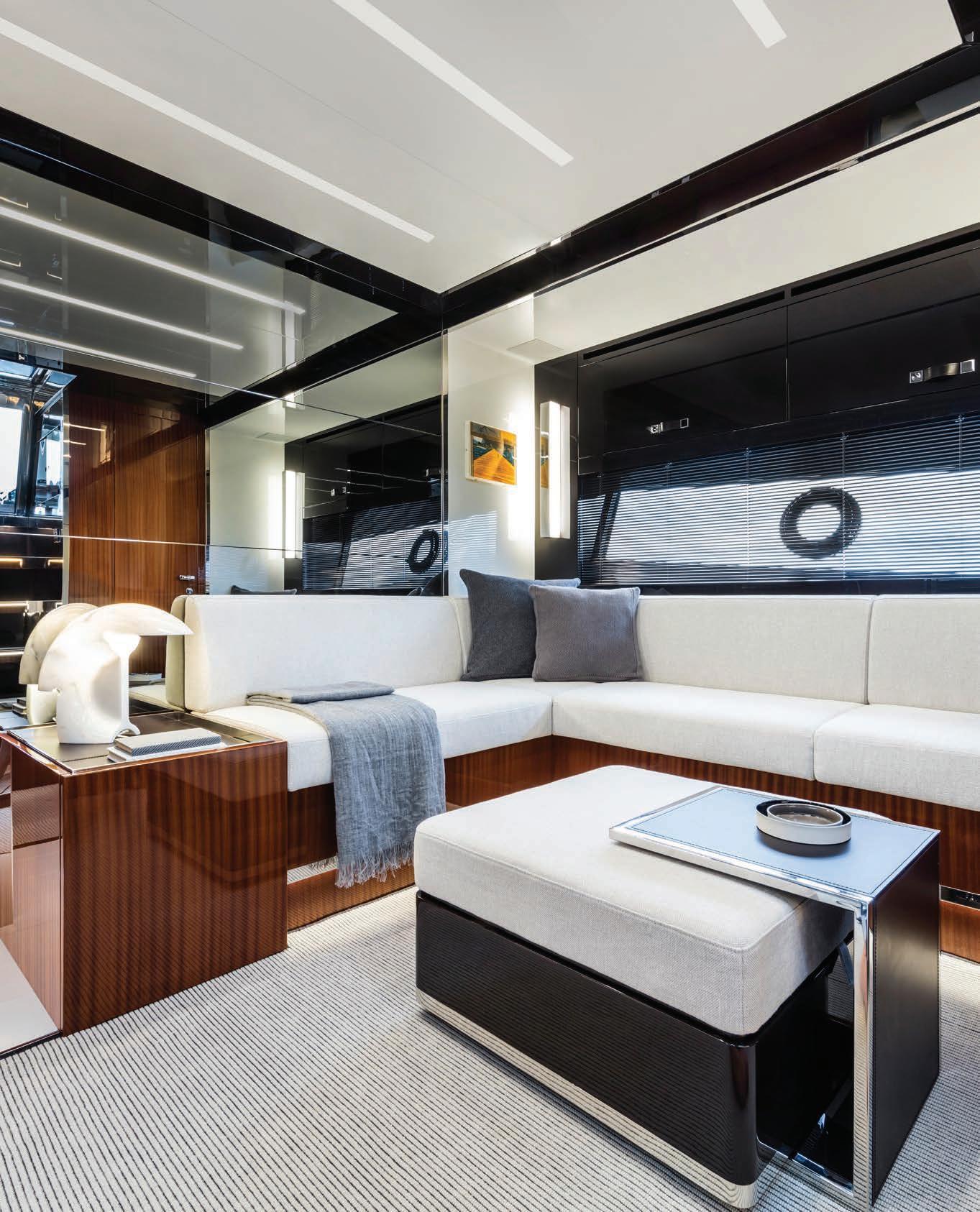
81 ISSUE 2 • OCTOBER 2018
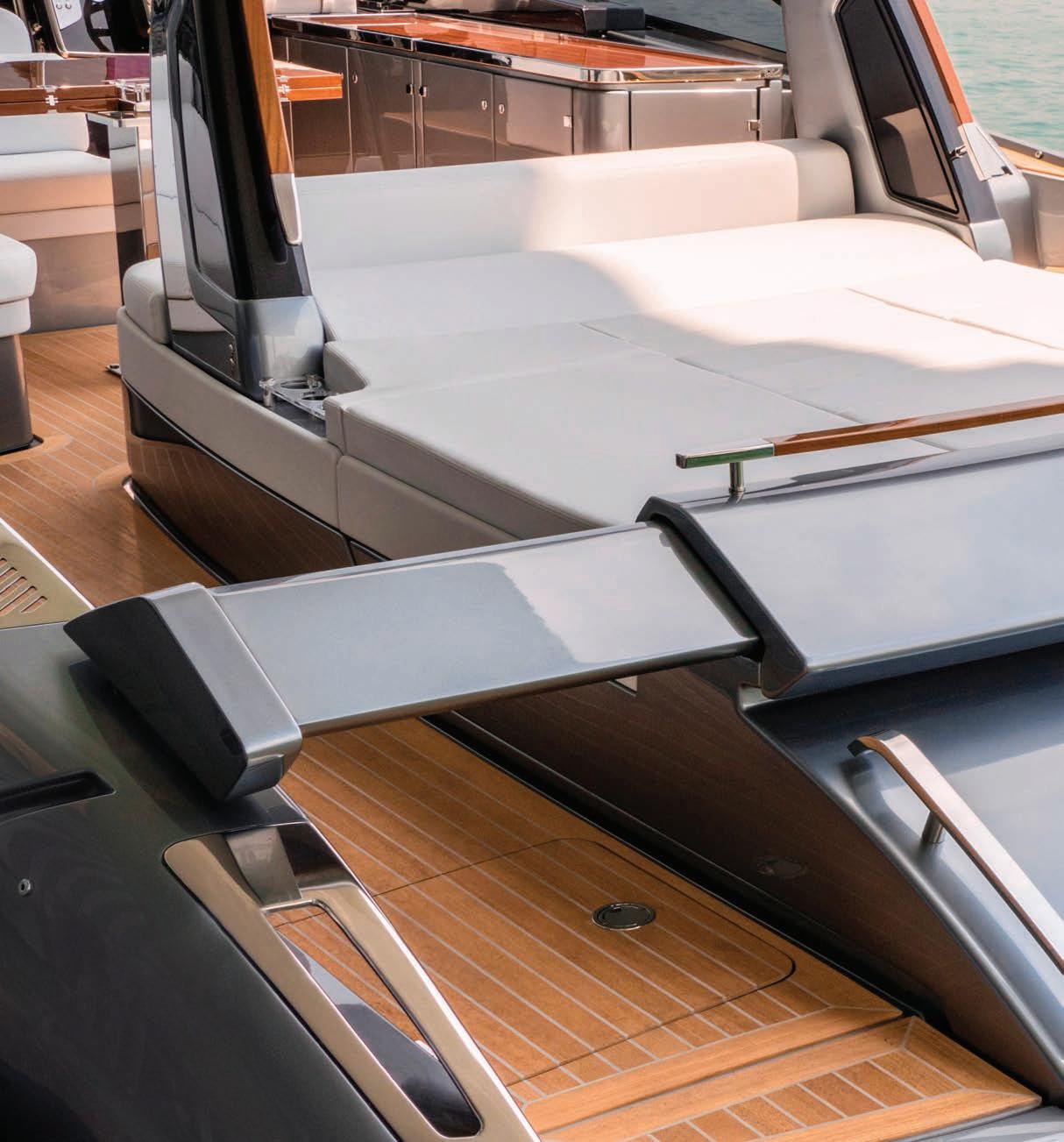
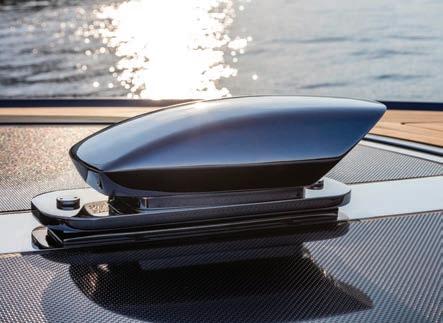
82 The CiTizen Yacht ofQuarter the
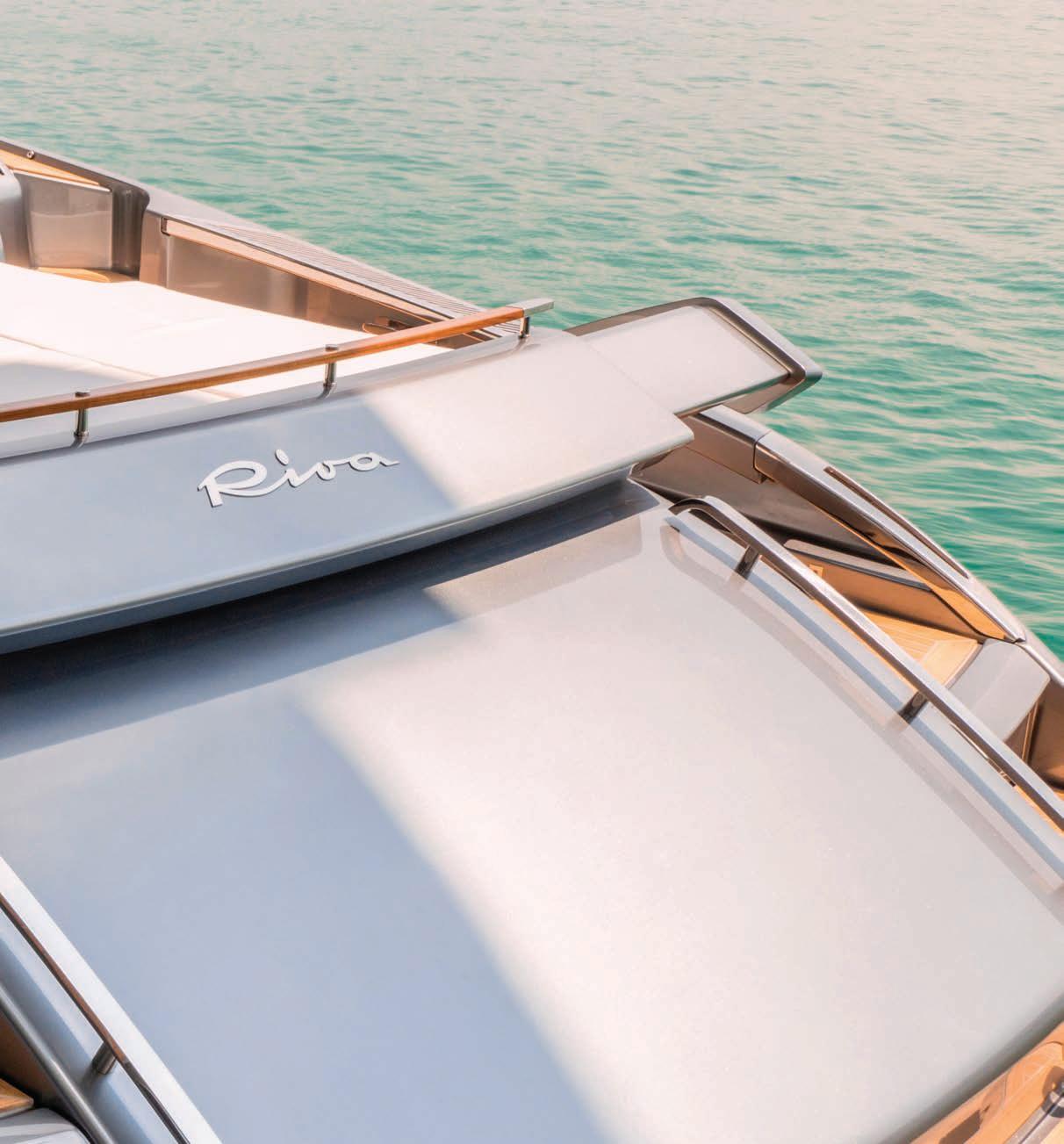

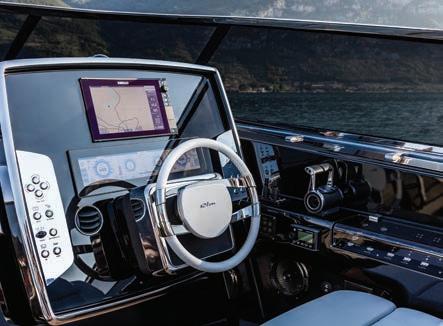
83 ISSUE 2 • OCTOBER 2018
New citiZen
In each issue we talk to a new citizen of Antigua & Barbuda about the reasons for becoming an Antigua & Barbuda passport holder. This is an extract from our conversation with Alexander Thursby, former Chief Executive of the National Bank of Abu Dhabi and ANZ Bank’s CEO of International and Institutional Banking. He completed his undergraduate studies in his native Australia before attending London Business School – International Business Consortium in 1997 and the Senior International Management Programme at INSEAD, France in 1993. He is a significant international banker, having worked in large emerging markets as well as in sophisticated global financial centres around the world.
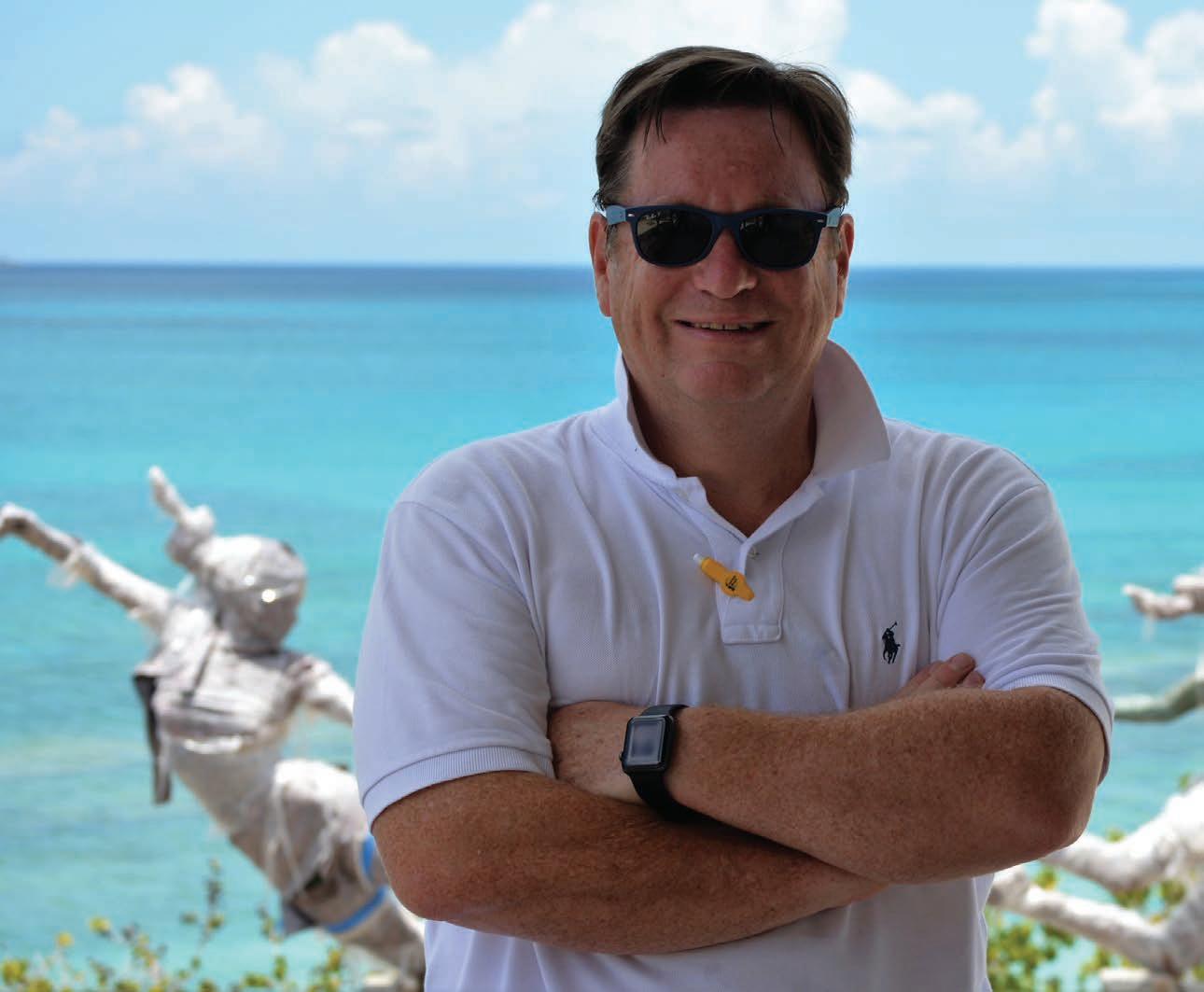
84 The CiTizen
alex Thursby
Who is Alex Thursby?
I was a career banker in emerging markets in Africa, Asia and the Middle East for many years. The biggest business I ran was valued at US$ 16 billion and being the CEO of National Bank of Abu Dhabi was probably my most enjoyable role. However, I love real estate as an asset class.
What are some of your values?
I believe good global professionals have an essential role to bring best practices, new technology and products into other countries. At the same time, these professionals need to honour the strong values of citizenship of their host countries and communities. I deeply believe in capitalism as the only long-term model that works. I also consider myself lucky to have always had staff from very diverse ethnic backgrounds and I truly believe that different ethnicities with a common goal can be a very powerful tool in the creation of successful businesses.
Why did you choose Antigua for your real estate investment?
I have some simple golden rules when investing somewhere. My first rule is that I believe in freehold. Being the registered owner of a property protects you from almost everything that can happen, and I chose Antigua because it is freehold registered, and no debate exists about who owns the land here. Furthermore, a foreigner can have ownership without going through any intermediary. Rule two is that, coming from a Commonwealth country, I have a huge regard for British Common Law and this plays an extremely important role when I’m deciding where to invest. Since Antigua & Barbuda practices Common Law, that was extremely attractive to me. My third rule is to invest where I can see a fair return on my investment. Naturally, being able to obtain citizenship is another important risk protection.
Antigua offers fantastic value for beachfront real estate in comparison with other countries. We are in the nicest part of the Caribbean. Although I plan to spend a considerable amount of time in Antigua, I sit on a number of boards in New York and London and naturally the daily direct flights to these destinations make it very convenient for me. It’s easy to island hop with LIAT and Antigua has an increasing cosmopolitan flair,
complementing a laid-back island vibe and a great local population.
What was your experience of building on the island like?
I’ve taken a very different approach as I wanted the house to be unique. We used Piet Boon, a Dutch architectural firm with experience in beach properties in this part of the world. We also we employed good local builders and craftsmen; Challenger’s Enterprises’ work was outstanding. We are extremely happy because even though we needed some technical know-how from outside at the beginning, more than two thirds of our contract value has been Antiguan labour and products. We’ve been able to obtain tax concessions on imports of construction materials. To be honest, the whole process has pleasantly surprised me. As well as investing money into building a unique house on the island, more importantly we have created multipliers in a small economy.
What opportunities are there in Antigua?
It’s a small marketplace, which can be a limiting factor in the long term but there are great opportunities for people who know how to run businesses end-to-end and who have good business models. With the improvements made in its air and port services, Antigua can easily be used as a regional base. If needs be, labour can be brought in to cover resources that may be lacking in the local market. I’ve been a pioneer in building a world-class house, and if you have that kind of mentality, Antigua will welcome you with open arms.
How do you assess the importance of the CIPs?
My home country Australia was very smart; as an immigrant country it introduced people who were committed to their new home country. I firmly believe that if you have a best practice in one country, then it is your duty to spread it to another. Antigua needs to bring in people who, apart from spending a substantial amount of time in the country, will also introduce their skillsets. In this way, the citizenship by investment programme will be rewarding for the country’s economic development and progress.
What would be your final message?
Come to Antigua and look, and that’s it!
85 ISSUE 2 • OCTOBER 2018
“More than two thirds of our contract value has been Antiguan labour and products.”
philanthropy
RESHAPING PHILANTHROPIC GIVING
Latest philanthropic trends in the UHNW population drive meaningful changes around the globe.
As globalization rapidly continues, there is a growing need for innovations and diversification in philanthropic activities that go beyond “traditional” donations and charities. Whether it be impact investing, microfinancing, venture philanthropy, entrepreneurialism, or continued job creation, the ultra-high net worth (UHNW) population is redefining the essence of philanthropic giving.
By ushering in new philanthropic models that combine traditional foundations with profit-making endeavours and social enterprises, these innovative methods of giving are driving, and improving, the global socio-economic landscape.
Studies in the report, Changing Philanthropy by Wealth-X and Arton
ACapital, have shown that the world’s richest 1% are responsible for 99% of the world’s charitable donations. On average, UHNW individuals – those with a net worth of US$30 million or more – will donate US$29.6 million over the course of their lifetimes, with total global UHNW public lifetime giving estimated at US$550 billion to-date.
This model of giving is already implemented within the Citizenship by Investment industry, where investors pledge to become Global Citizens by positively and significantly impacting nations, including Antigua & Barbuda. By attracting the UHNW individuals, the Citizenship by Investment Programmes (CIPs) are incorporating global business opportunities for the investor and amplifying them with social and local benefits for the nation.
86 The CiTizen
Through investments and donation contributions, Global Citizens secure a safer and brighter future for themselves and their families, while bringing in foreign direct investments to the host nations. This mutualistic relationship not only creates multitude of benefits for the citizens of the host countries who are- in many cases-in dire need of funding and support, but is equally favourable to the nation itself, which will no longer have to depend on global NGOs for funding.
Such examples include, the Hurricane Relief Fund in St. Kitts and Nevis, which helped support and rebuild the nation following two Category 5 hurricanes, as well as the thousands of jobs created in Dominica’s
local community due to the rapid rise in tourism and development opportunities through their CIP. Another example gaining a lot of traction is the Global Citizen Tax Initiative, led by Arton Capital, which proposes a 2% levy on investments made in citizenship programmes, to help fund the most pressing humanitarian needs around the world. This initiative offers a clear and direct way for UHNW investors to leverage and maximize their impact for causes such as climate change and the migration crisis. This new philanthropic model is particularly appealing to entrepreneurs, UHNW individuals, and ultimately Global Citizens, who are looking for the most tax efficient, yet simple way of giving- and giving big. Although less orthodox compared to one-time donations, this method
allows previously hesitant UHNW philanthropists, to donate on a much larger scale, in turn, creating a much larger impact.
Highly motivated to aid those less fortunate through a vast spectrum of charitable causes, UHNW individuals feel it is their responsibility to contribute to preserve culture, history, and invest in long-term projects that will improve standards of living. Education remains by far the most popular philanthropic cause for UHNW individuals, followed by health, with environmental issues increasing in importance. With the common goal to contribute to the development and sustainability of future generations, Global Citizens are shaping neverseen-before opportunities for millions around the globe.
87 ISSUE 2 • OCTOBER 2018
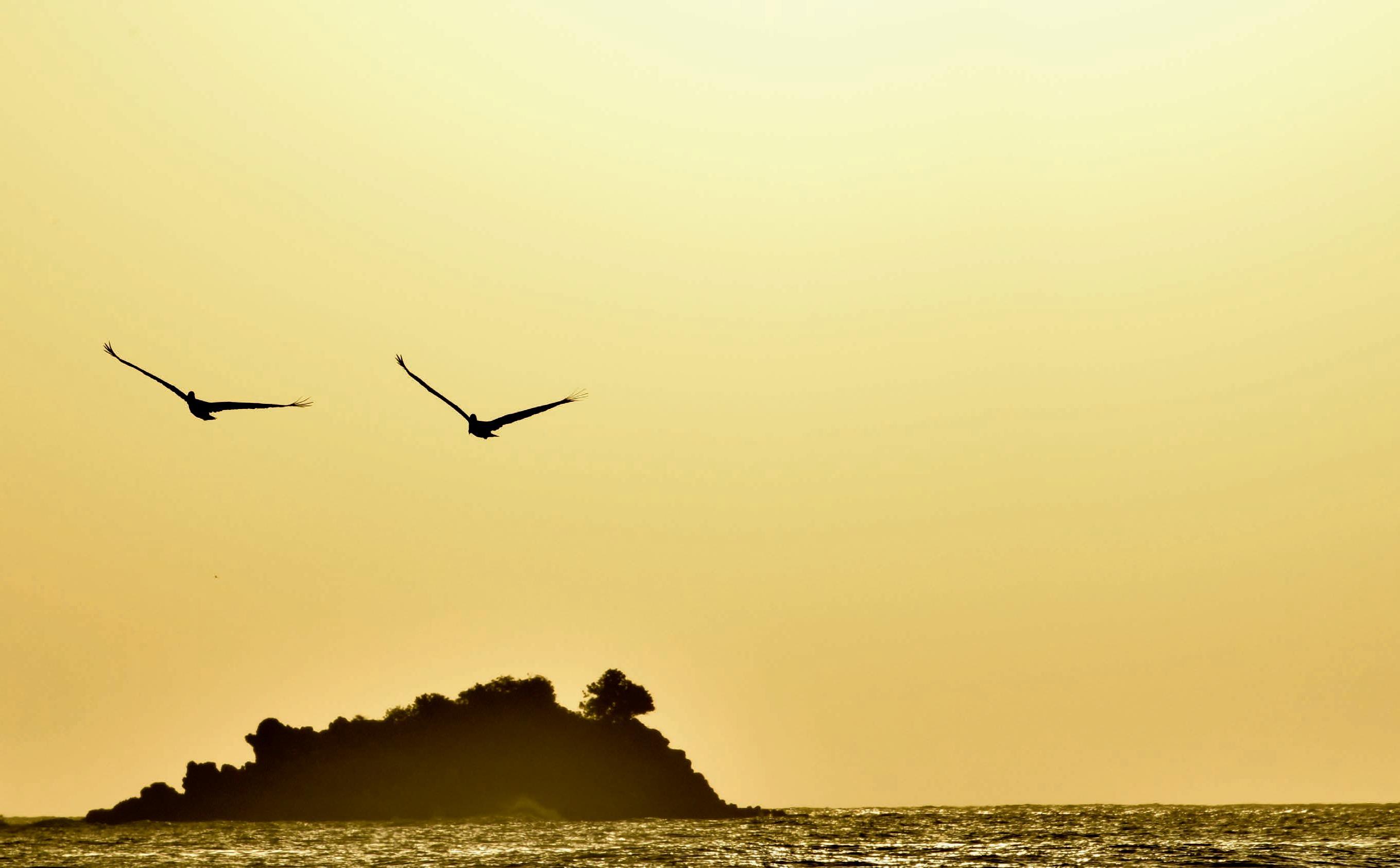


Arts &cu ltu re

90 The CiTizen
carnival celebration
The Antiguan Carnival is a celebration of music and dance held annually from the end of July to the first Tuesday in August. The most important day is that of the j’ouvert, in which brass and steel bands perform for much of the island’s population.
Antigua’s first fête took place on the 1st August 1834, when people took to the streets to celebrate the emancipation of slavery. It continued as an informal celebration until 1957, when the first official Antiguan Carnival was organized. The festival has since evolved into 10 days of music and dance with street marches, jump-ups and formal evening shows – calypso, pan, and Carnival Queen pageants – and innumerable smaller festivities, including local concerts, parades, food fairs and cultural shows. In the run up to the celebrations, the excitement on the streets of St. John’s is palpable. Troupes will be setting up their ‘Mas Camp’ – where the intricate vivacious and beautiful costumes are prepared - and the pan bands (steel orchestras) will gather on the various street corners to practice for the revelry. On the first Saturday the troupes march to the Carnival City to officially open the festivities.

91 ISSUE 2 • OCTOBER 2018
A
Antigua’s Carnival attracts thousands of visitors and returning residents every year. And with so many festivities, concerts and shows, there is plenty to do for everyone.
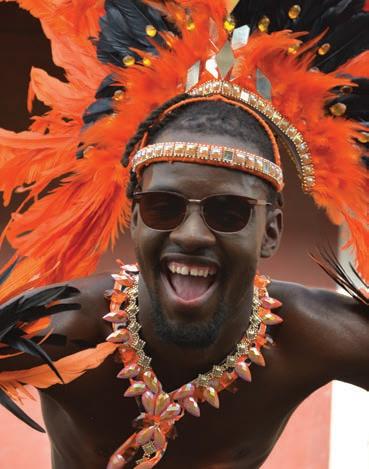
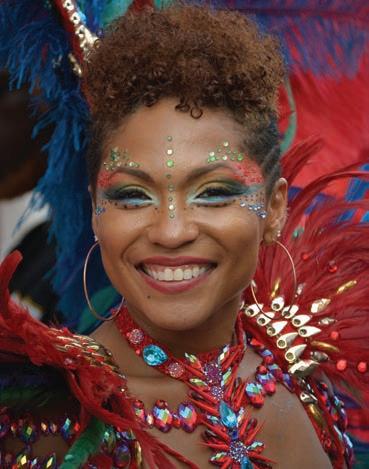
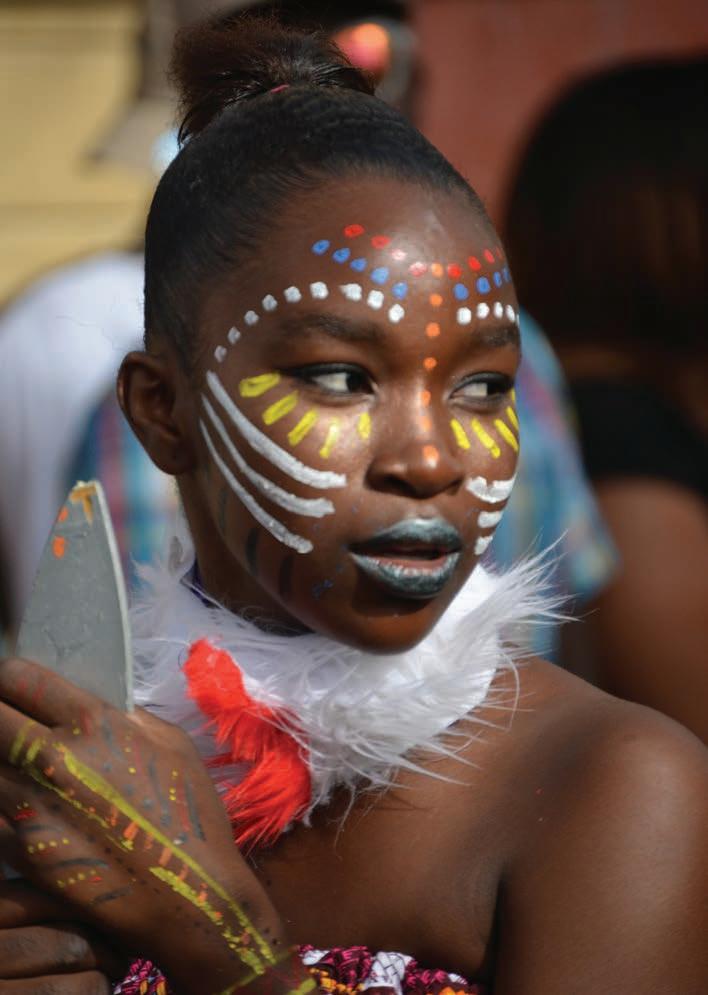

92 The CiTizen Arts&culture

93 ISSUE 2 • OCTOBER 2018
Carnival makes an explosive start with a massive street party called j’ouvert (or juvé, meaning day break) on the first Monday in August, with costumed troupes and beautifully decorated parade floats. Tuesday night is ‘Last Lap’ which brings all the bands to the streets of St. John’s and people play mass until “fore day morning” - just before dawn, Wednesday morning. This is perhaps the best time to visit Antigua & Barbuda to get a real insight into the culture of the country and to understand the sheer joy people still feel at this time of year. As a visitor, you are welcome to join in the spontaneous fun that surrounds you.
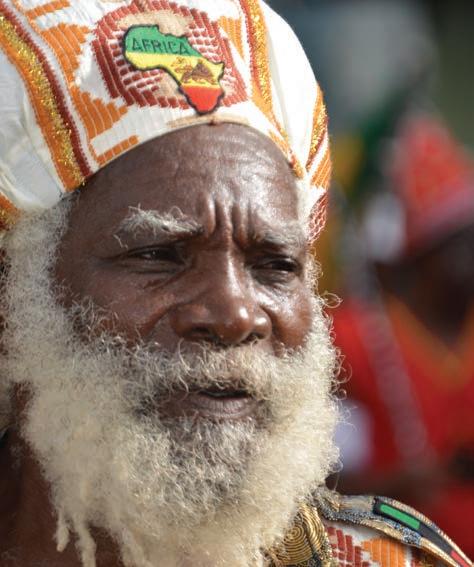
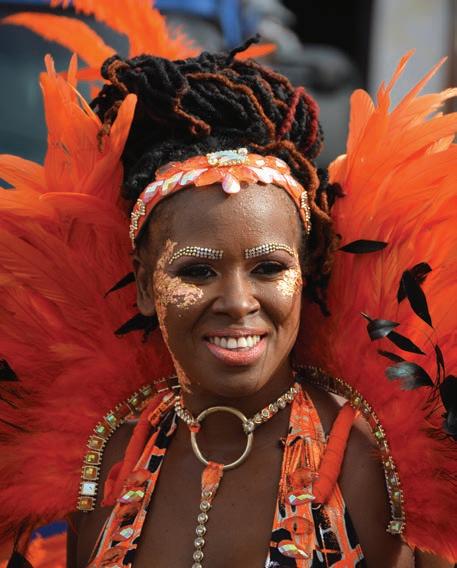
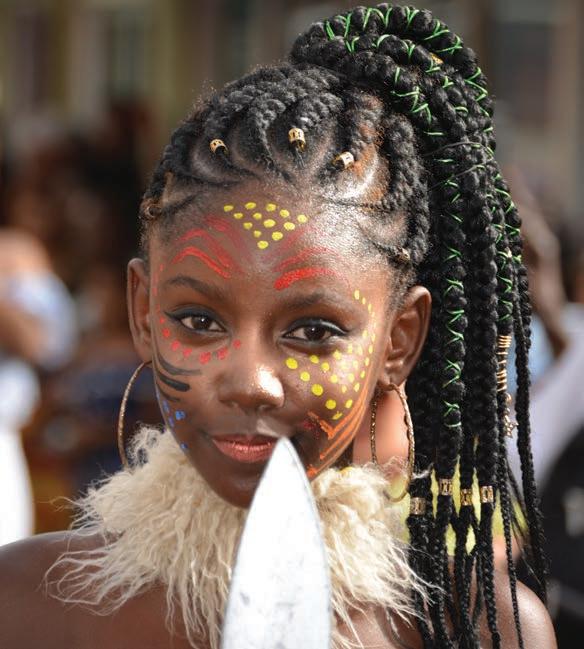
94 The CiTizen Arts&culture
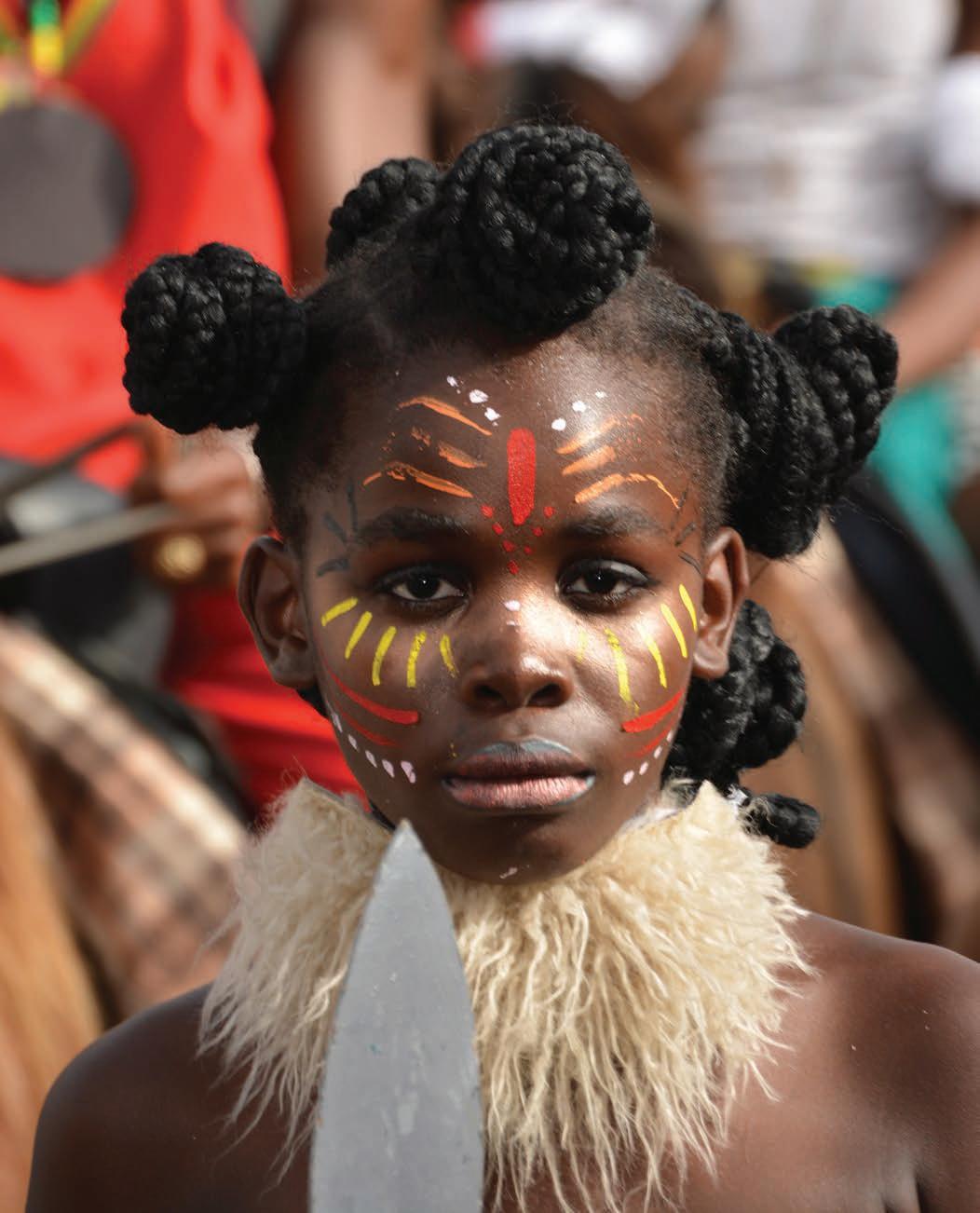
95 ISSUE 2 • OCTOBER 2018
DOGS & CATS OF ANTIGUA is a registered non-pro t working to assist animals in distress and increase their protection through feeding, veterinarian assistance, spay and neutering, fostering and rehoming. Many of our rescued dogs and cats are rehomed in the US and Canada. We need passengers to y with them from Antigua to New York, Newark, Philadelphia, Boston or Toronto.
If you’re travelling on booked tickets to any of these destinations with either Air Canada, American Airlines, Jetblue, United Airlines or Westjet, please help us by becoming a Travel Buddy to our furry friends and leave only their pawprints behind.
And if you’re around, please join us at Touloulou on November 24, 2018 for our Pawprints in the Sand event to raise money for our dogs’ travel fund.




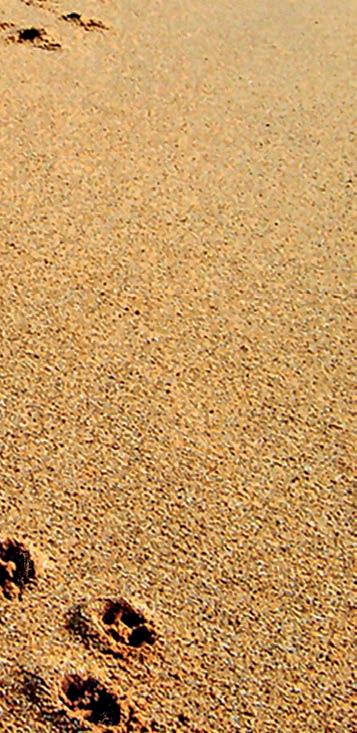
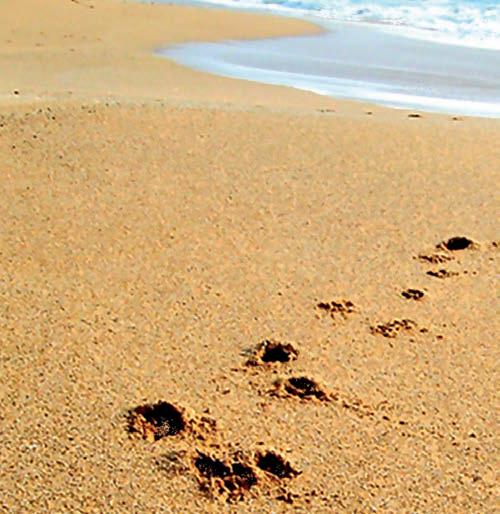

www.dogsandcatsofantigua.com/flight-volunteer

DOGS & CATS OF ANTIGUA INC. animal foundation
www.facebook.com/dogsandcatsofantigua www.dogsandcatsofantigua.com/donate
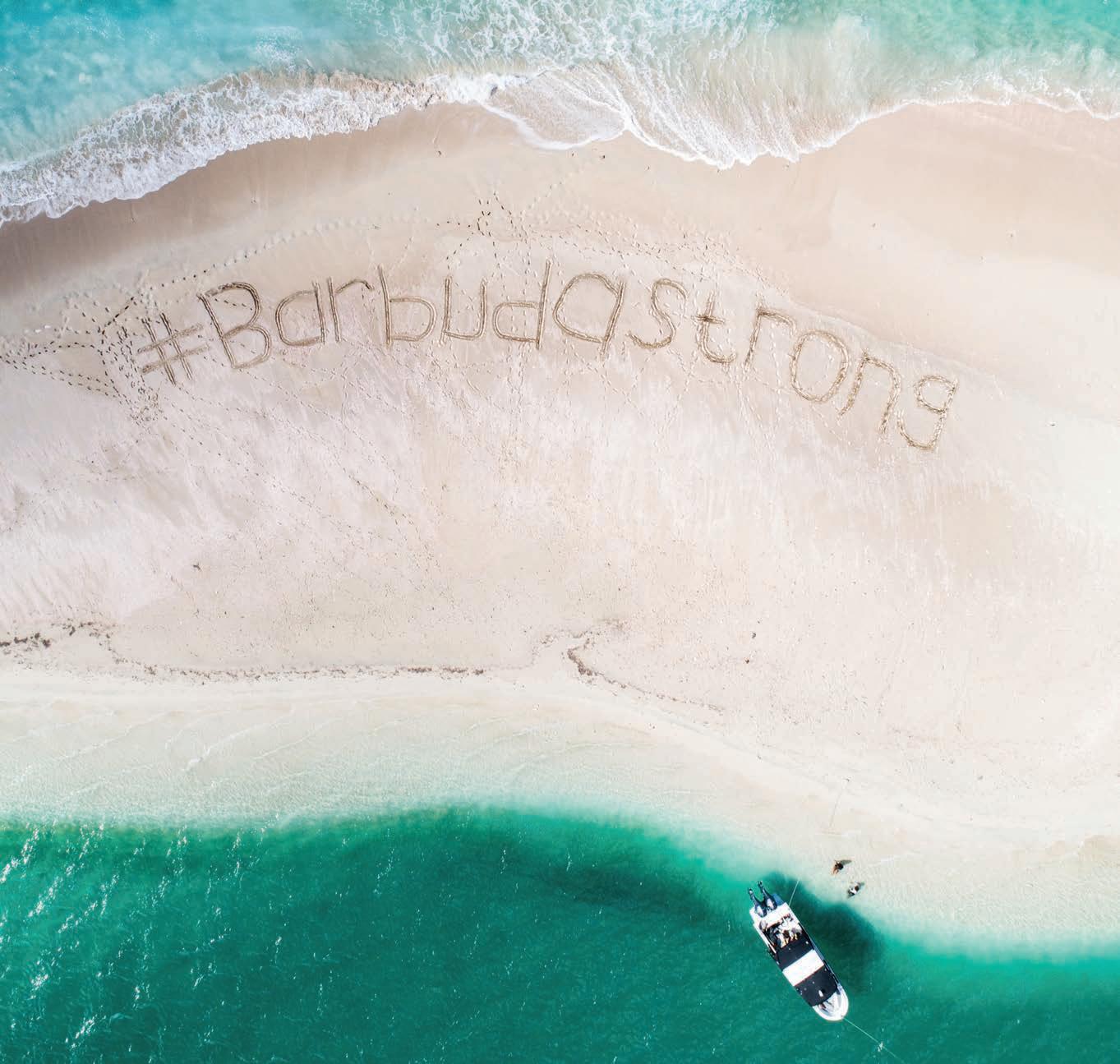
97 ISSUE 2 • OCTOBER 2018
Barbuda

B
love it, visit Bar B
Barbuda is to be found some twenty-five miles north of its sister island Antigua. With a population of under two thousand people, its 62 square miles forms one of the most beautiful, unspoiled and peaceful islands in the Caribbean. Famous for its rich marine life, endless white and pink sand beaches, and home to one of the largest colonies of frigate birds in the region, the island’s uniqueness and beauty has attracted many discerning visitors, including the late Princess Diana of Wales. The islanders even named a beach after her in memory of her love for the island where she was able to find the seclusion and privacy she craved.
The capital, Codrington, affectionately referred to as “the village” by the inhabitants, was named after the island’s most prominent family. Barbuda’s fascinating social and political history begins with the first people who travelled there in canoes thousands of years ago. More recent history includes the Codrington family years with its notorious slave trade to the devastating encounter with Hurricane Irma in 2017. Showing typical Barbudan grit, demonstrated throughout the years, the inhabitants and its stakeholders are working to return the island to its resilient and laid-back roots.
It’s believed that Barbuda’s history began about 3,000 to 4,000 years ago. The Arawaks arrived from what is today known as Guyana and Venezuela, between 500 to 280 BC. Naming the island Waladli, they were prodigious farmers who left behind a legacy of sophisticated pottery and ceramic. They were replaced by the Caribs, originally from Dominica and St. Vincent, who were known as being warriors, but ended up being only seasonal inhabitants of Barbuda, or as they called it then, Wa’omoni.
The Caribs faced seafarers from Europe who at that time were settling in many of the newly discovered Caribbean islands. Unfamiliar conditions such as the hot climate, perilous hurricanes, not to mention threats from pirates presented the Dutch, Spanish, French, Portuguese and English sailors with huge challenges and they were largely unsuccessful during that period.
In the 17th century, finally Britain annexed and settled in Barbuda and until its independence in 1981, the island was ruled by the British except for a brief interlude by the French in 1666. A few years after the annexation, King Charles II handed control of Barbuda to the brothers, John and Christopher Codrington, who held the island for 200 years until it was annexed to Antigua.
The Codrington’s Caribbean adventure started in Barbados in the 1630s when the father of the brothers, English aristocrat Christopher Codrington, moved there. They subsequently settled their sights on Antigua where they established the 850-acre Betty’s Hope sugar-cane plantation, one of the largest in the region and with over 300 slaves. For more than four generations, the Codrington family cemented their reputation as important
98 The CiTizen
“We live it, you’ll
uda.”
plantation owners and slave traders. Profits generated by their plantations brought them wealth and power both in the Caribbean and in England. During this period, Barbuda was established as a provisioning station, growing crops and providing most of the supplies for the Codrington estates in Antigua and Barbados. In the Letter and Memorandum Book of Sir William Codrington 1715–1790, the very first written record of the early inhabitants of Barbuda can be found.
The first sign of the legacy of the resilience and strength of Barbudans was demonstrated in the 18th and early 19th centuries through a series of slave rebellions, culminating in the emancipation of 500 slaves after the 1834 insurrection.
Having been omitted from the British Slavery Emancipation Act of the same year, they managed to free themselves from the tyranny of slavery though a general revolt.
It was only in 1981 that Barbuda finally gained independence from Britain as an integral part of Antigua & Barbuda, and became part of the Commonwealth of Nations.
As a low-lying island, with the highest point only being 125 feet above sea level, natural disasters
are not unfamiliar to the island. Unfortunately, as the most powerful hurricane to have ever been experienced in the Atlantic, Irma caused catastrophic damage to Barbuda in 2017. However, true to the resilience of the islanders and the huge makeover being carried out, officials are optimistic that Barbuda will be back in business for the coming tourist season.
Barbuda is a true undiscovered treasure waiting to be explored, offering stunning beaches and calm anchorages protected by a barrier reef. History buffs can uncover Amerindian sites and ruins, as well as remnants of 18th century buildings left by the Codrington family. With caves and sink holes to discover and world-class dive sites to enjoy, adventure lovers are more than catered for. Ornithologists can search for the Barbuda warbler, one of the rarest small birds on the planet and observe the renowned frigate bird colony. As Sherien Griffen, Barbudan tourism motto winner, so succinctly puts it “We live it, you’ll love it, visit Barbuda”.

99 ISSUE 2 • OCTOBER 2018
Barbuda is serviced by regular daily flights from Antigua as well as by the Barbuda Express, the high-speed ferry from Antigua’s capital, St John’s.


of the

cheF Quar ter
Equally as comfortable whipping up delicious healthy dishes or more unique gourmet delicacies, versatility and creativity are Chef Gregory William’s trademarks in the kitchen.
Born in Antigua and passionate about food from a very young age, he began his culinary career as a personal chef working with international professionals from around the world before gaining experience in some of the country’s most prestigious restaurants and hotels. Honing his fine-dining skills in Carmichaels Restaurant, he is now rightly considered one of the islands’ top chefs.
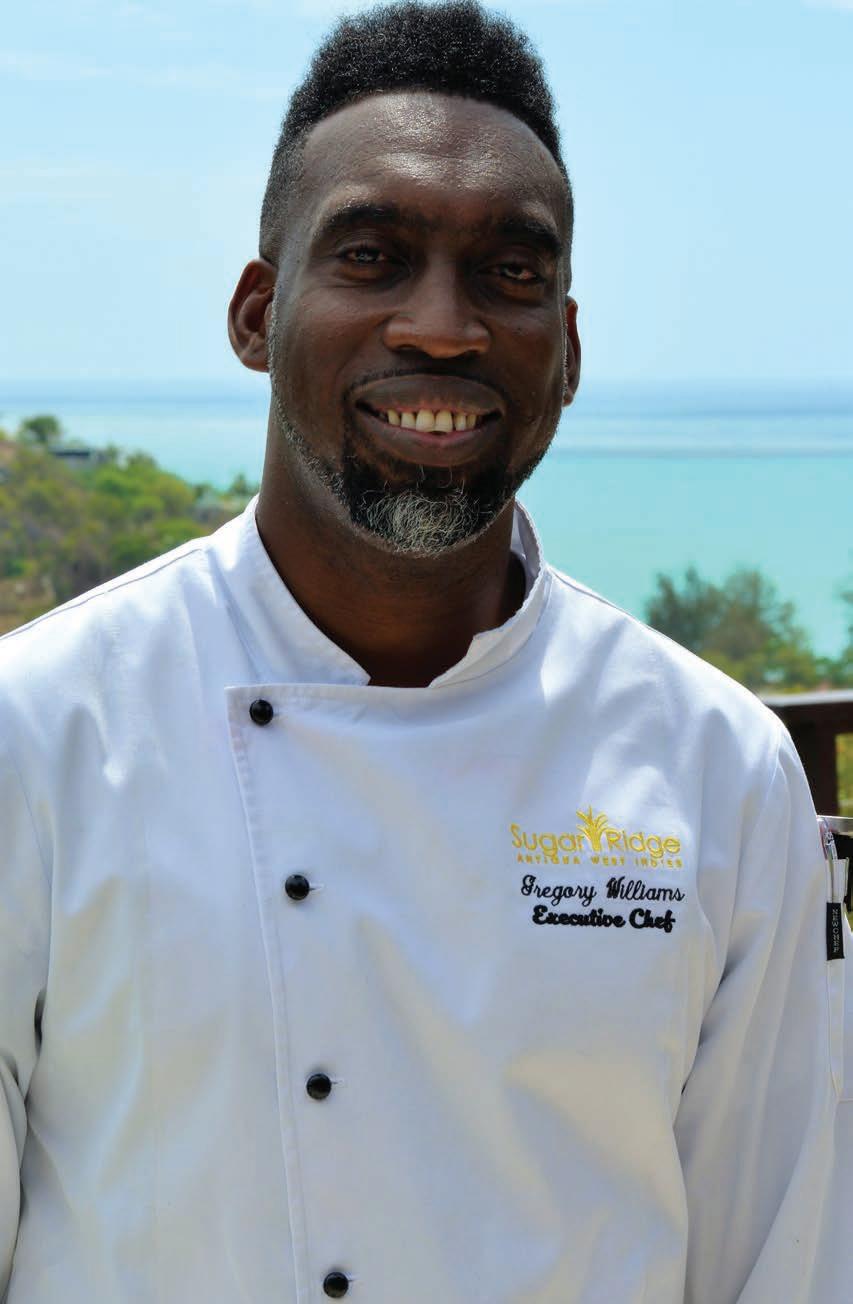
101 ISSUE 2 • OCTOBER 2018
Chef Williams prepared one of his signature dishes: grilled medallions of locally-caught lobster, served on caramelized sugar cane, accompanied by a zesty mango salsa, a drizzle of passionfruit oil and sprinkled with fresh basil leaves.

102 The CiTizen
cheF Quarter of the



103 ISSUE 2 • OCTOBER 2018
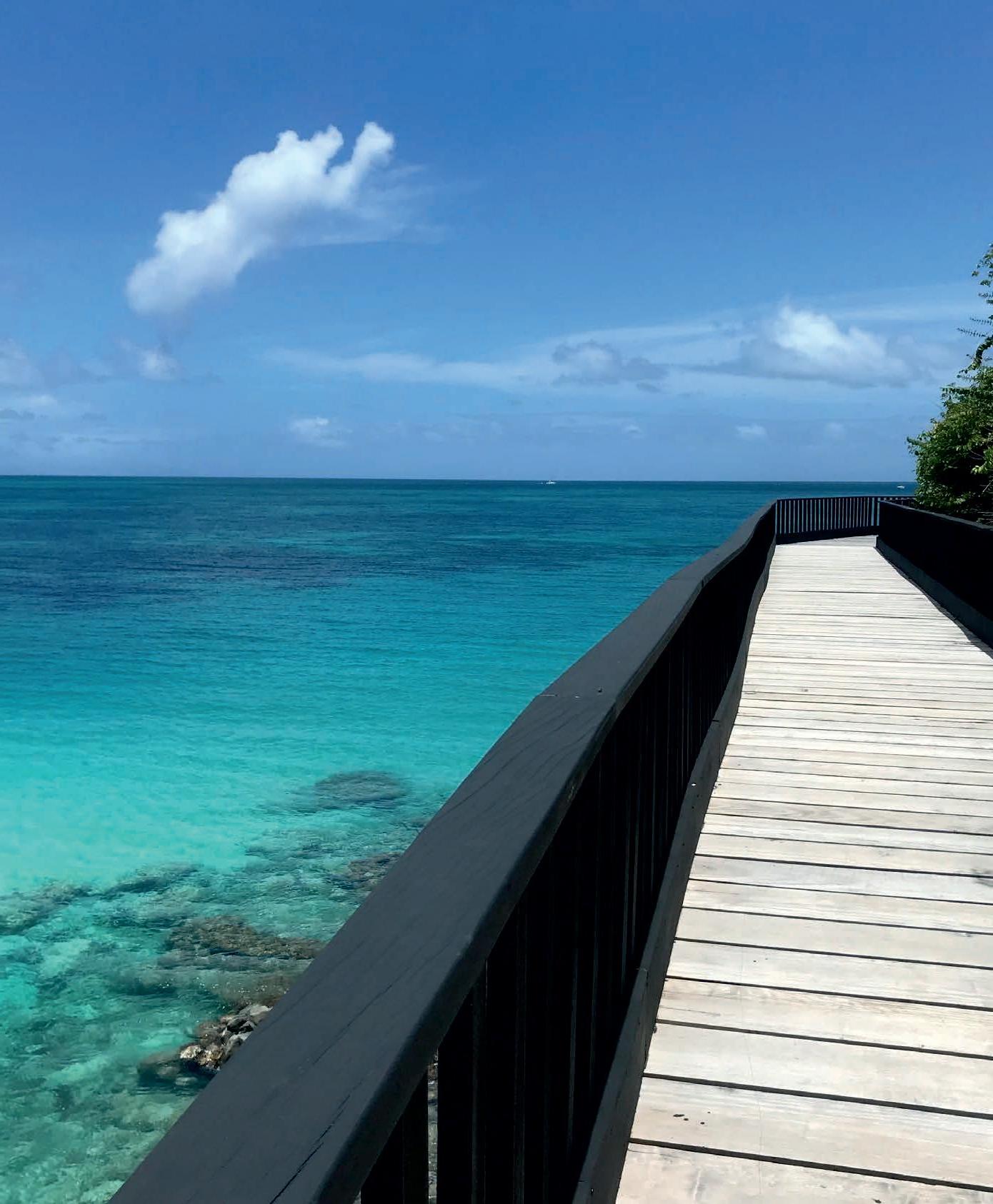
104 The CiTizen
Become a citizen of one of the world’s top international destinations

The Ocean’s True
“Gif T s fr O m T he G O ds”
Turtle numbers are falling worldwide due to man’s encroachment on their habitat. However, thanks to conservation organisations such as those in Antigua & Barbuda, the future of these magnificent creatures and their delicate ecosystem is being guaranteed for years to come.
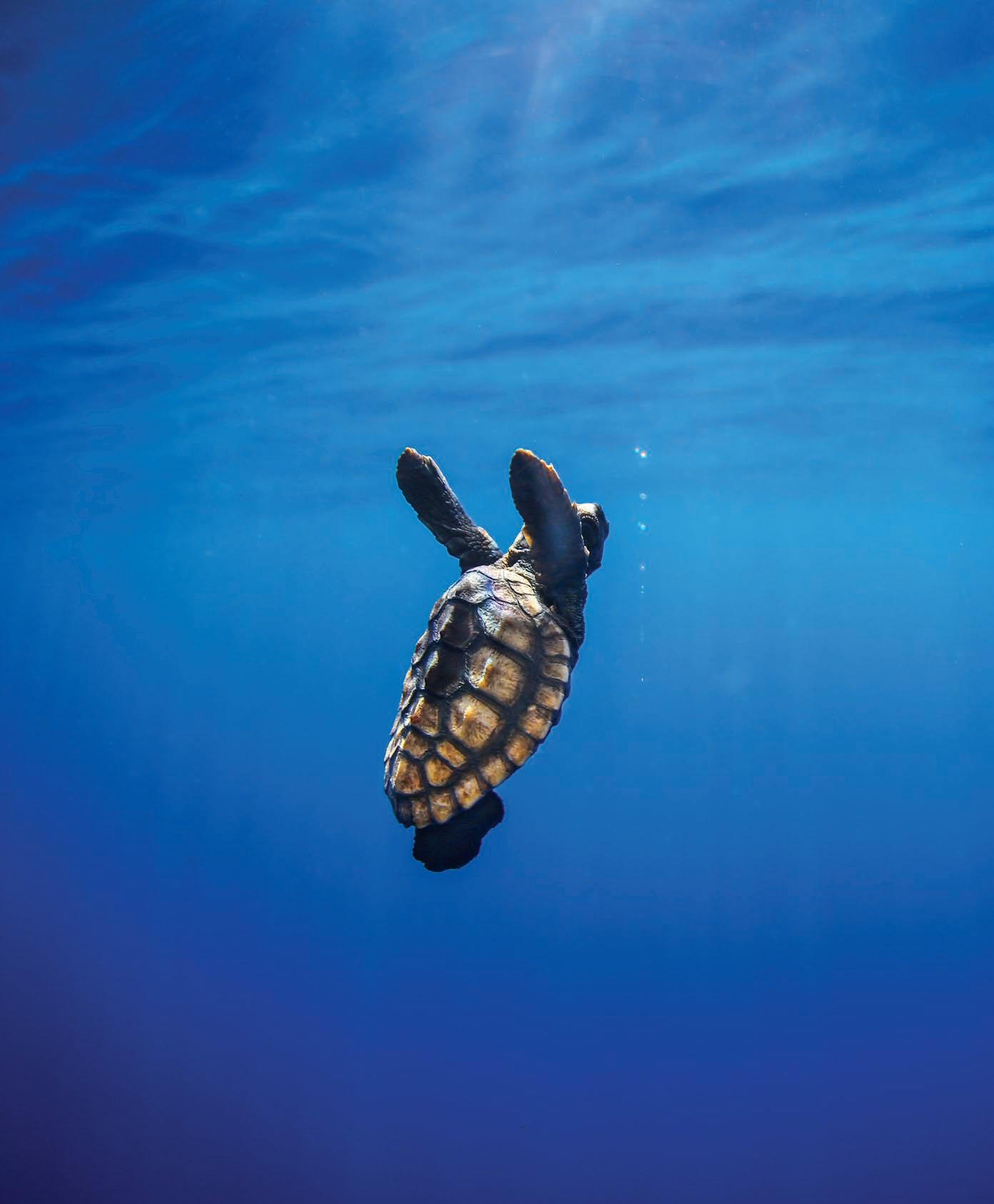
106 The CiTizen
conservation
It is midnight and on a deserted, moonlit beach on Antigua, a giant leatherback turtle is hoisting her huge bulk out of the surf and dragging herself across the sand, searching for a nesting site on the same beach where she herself hatched decades before. She laboriously digs a metre-deep pit in the soft white sand before entering her egg-laying trance. A hundred eggs are laid deep in the hole where they will remain buried until the hatchlings emerge some two months later— if undisturbed by predators or man. Her energies depleted from the momentous effort she has made, she slowly returns to the water, guided by the light of the moon reflecting on the waves. This same ritual has been repeated since time immemorial and if she survives, she will be back to lay more eggs in years to come. These gentle giants, who can measure up to 1.5 metres in length and weigh over 500 kilos, aren’t the only species of turtle to use Antigua & Barbuda’s coastline for nesting; the more common and smaller hawksbill and green turtle varieties also lay their eggs on the islands’ beaches and even the loggerhead can sometimes be seen feeding and swimming around the islands. According to the International Union for the Conservation of Nature (IUCN), all the species found in Caribbean waters are on the endangered or critically endangered list, as indeed are most species to be found globally. One of the most ancient living creatures on the planet, turtles have been around for millions of years. However, their numbers have been slowly declining over the past few hundred years and far more dramatically in the most recent past.
Hatchlings have always been extremely vulnerable to predators, both during their first precarious dash to the ocean and during their first few years, defenceless in the open seas. However, increasing manmade threats mean that today, only about one in a thousand make it to adulthood and reproduce. Given that most sea turtles often don’t reach sexual maturity until they are more than 20 years old, it is evident that these magnificent creatures need a helping hand if they are to continue swimming in our oceans far into the future.
Fishing nets are one of the major threats to sea turtles and according to studies, it is believed that several million have been killed over the past 20 years by becoming tangled and drowning. Increasing ocean plastic is becoming more and more dangerous to turtles, together with general pollution and global warming.

Coastal areas have been developed with the devasting effect of nesting areas being destroyed, and artificial lighting being installed. Ironically, turtles’ shells, which should provide protection from predators, are another principal reason why they are killed by man.
Thanks to organizations in Antigua & Barbuda such as the Environmental Awareness Group (EAG) Sea Turtle Conservation Project and the Jumby Bay Hawksbill Project (JBHP), turtle conservation is high on the agenda in the islands. During the March-toNovember nesting season, turtles arriving at significant nesting sites along Antigua & Barbuda’s coast are tagged so that they can be identified and recorded upon their return and their data can be shared
107 ISSUE II • OCTOBER 2018
I
internationally. They also ensure, when possible, that the hatchlings safely make their way into the ocean and are not disorientated by manmade lighting or other unnatural distractions. In fact, the JBHP is the longest-running hawksbill research programme anywhere in the world. Educating the public plays a huge part in turtle conservation, especially on a small island, where daily cohabitation with these creatures means people need to understand how their actions play a major role in not only preserving the life of the turtles themselves but protecting the delicate ecosystem of the coastal areas. Organisations such as EAG and JBHP provide outreach programs in schools and summer camps and also educate hotels and their guests about the turtle nesting that often occurs on resort beaches. Successful campaigns, such as Antigua Sea Turtle Project’s call to change disorientating white street lights to red LEDs near nesting sites on Antigua, are all part and parcel of the year-round work of these tireless organisations. Although manmade dangers are the main threats to these creatures nowadays, nature still finds ways to impede the turtle’s survival. Hawksbills, unlike leatherbacks who choose to nest in open beach areas, find vegetation in which to dig their holes and lay their eggs. Hurricane Irma in 2017 caused devastation to Barbuda and much of its sea grass, which proves so attractive to these nesting creatures, was destroyed. After Operation Jairo’s three-week project earlier this year, which
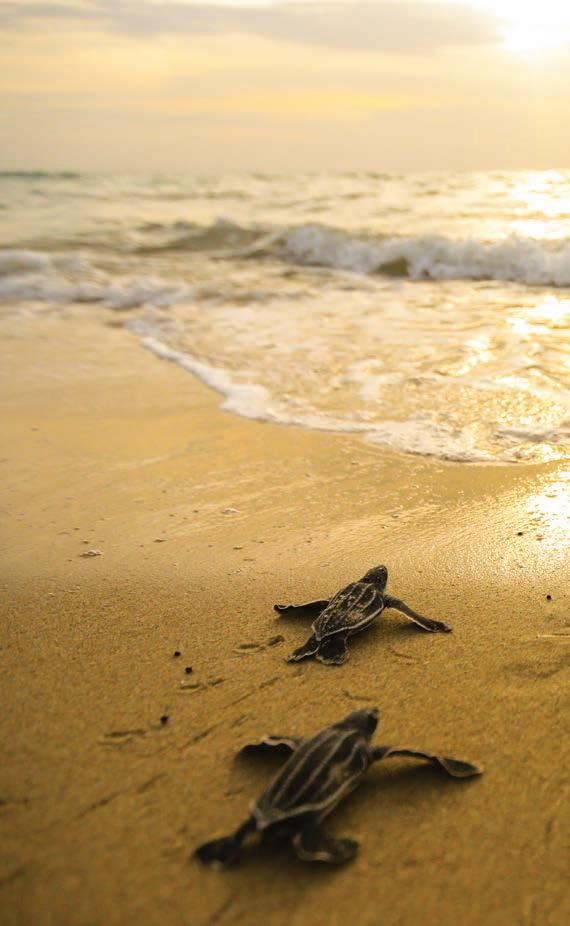
included the use of Sea Shepherd’s vessel the M/V Brigitte Bardot, the Antigua Sea Turtle Project made the sad conclusion that hawksbill nesting numbers were indeed down on previous years. On the up side, the JBHP has documented an overall increase in the nesting population of the hawksbill in Antigua since the 1990s, proving that conservation efforts have been, and will continue to be, not only necessary, but also successful. Turtles are known as “indicator species” - meaning their numbers reflect the state of marine life in general – therefore, their dwindling numbers firmly demonstrate how important it is to secure their future in our oceans. Indeed, the early inhabitants of Antigua believed the hawksbill to be “a gift from the Gods” and maybe it’s time for us all to think of them like that again, so we can help them to continue thriving as they have done for millions of years.
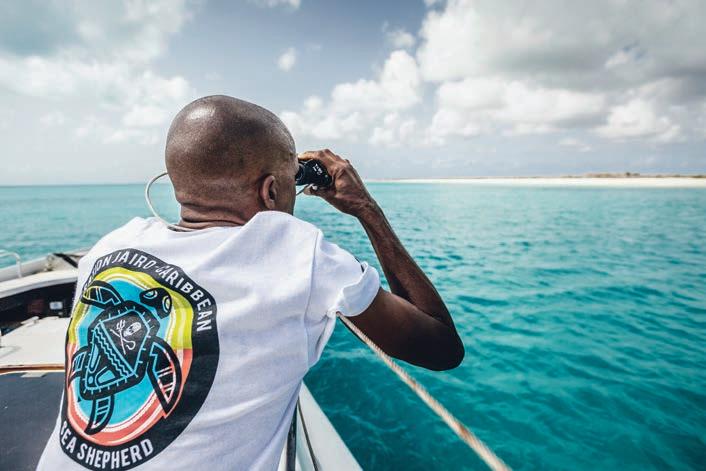
108 The CiTizen
The JBHP and EAG’s Sea Turtle Conservation Project are members of WIDECAST (Wider Caribbean Sea Turtle Conservation Network), a region-wide scientific network and Partner Organization to the United Nations Caribbean Environment Programme.
conservation
Operation Jairo Caribbean (OJC) crew scan the beach for turtle activity
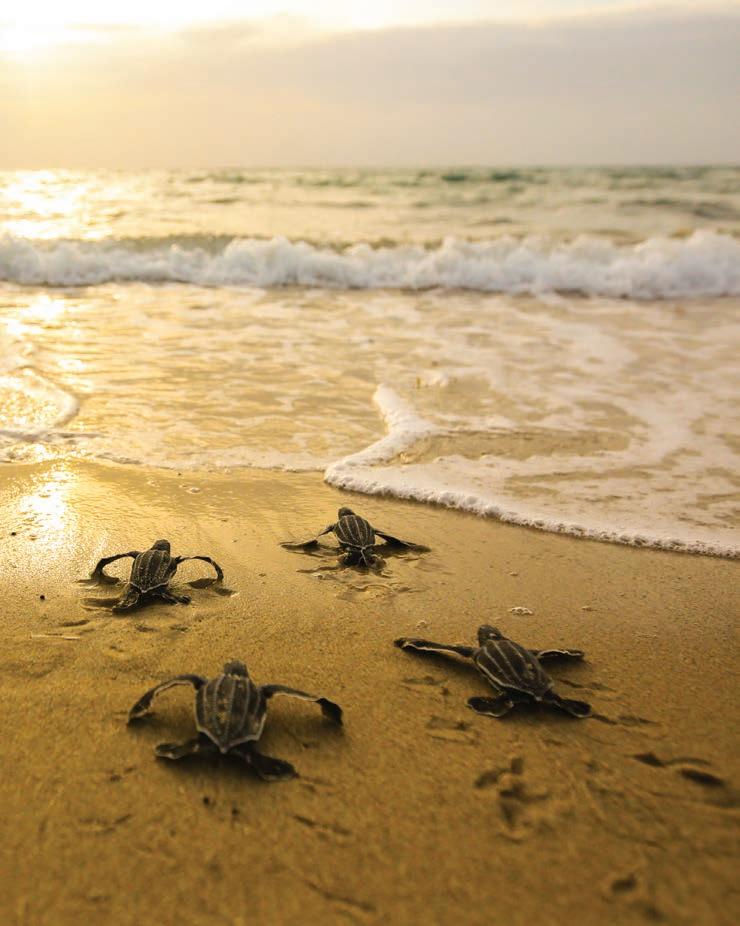

THE FREEDOM OF SECOND CITIZENSHIP. Citizens International is a specialist firm of international professionals offering private client services for citizenship and investment in the Caribbean and beyond. With personnel located strategically around the world and in the West Indies, we provide a professional bridge to your personal freedom with second citizenship and financial concierge services. info@citizensinternational.com + 1 268 562 8585 www.citizensinternational.com 1987 300+ 1 in 1,000 20+ official start of the Jumby Bay Hawksbill Conservation Project nests recorded on Jumby Bay Island in 2017 hatchlings make it to adulthood years before reaching sexual maturity 100 to 150 eggs deposited in each nest 2007 80% 450 80% first ongoing survey of mainland
hatch-rate success in Jumby
nesting hawksbills
and
at
the
1980 first
nesting beaches by EAG
Bay
identified
tagged
Pasture Beach global reduction of hawksbills in
last 3 generations
female turtles tagged at Jumby Bay
thought leadership
by Stephen J. First Founder & CEO Corporate Capital (Asia) Limited
CITIZENSHIP BY INVESTMENT PROGRAMMES –F ULL , P LAIN AND T RUE D ISCLOSURE
ho are we, if not a community of people in a state of constant transition? Can we deny or ignore the existence of displaced persons who seek refuge from a chaotic universe of conflicted interests conspiring to deprive them of their basic human rights?
As the CEO and co-founder of a private client offshore advisory in Hong Kong, I have been diligently serving and protecting a global community of discerning clients since 1981.
In my 40-year career as a legal practitioner, I have been privileged to assist client referrals from a select community of professional accountants, bankers, and legal sector colleagues to provide appropriate guidance and direction in the context of ‘alternative residency and citizenship’.
Fit for purpose, duly qualified and licensed professionals are committed to meeting the highest of standards in representing Citizenshipby-Investment (CBI) programmes in ensuring control against financial-related crimes. Professional service standards play a crucial role in protecting the underlying integrity of CBI programmes.
NON-PROFESSIONAL CONSULTANT INDUSTRY SECTOR
The market is rife with a certain non-professional class of consultants and mass-market strategy and tactics which are focused too singularly on the monetization of passports.
The CBI market is driven largely by money, highlycoveted commissions. Consumer protection is sorely lacking when left to the maneuverings of pedestrian
110 The CiTizen
“Know your client has never been more apt a required skill-set for the observance of, and compliance with global due diligence protocols.”
consultants whose fundamental knowledge-based skill sets are nominal at best. And unregulated social media only serves to distort the CBI narrative. The consequences pose a degree of risk likely to prove disastrous for the ill-informed client-applicant when they are faced with the prospects of a CBI rejection, a result which penalizes the ‘victim’ to a ten-year ban from consideration for application to most other legitimate global citizenship programmes. However, professional consultants, duly licensed legal practitioners in particular, conduct their client-related affairs with integrity through a discipline of standards. A sense of duty to serve and protect a client’s personal welfare and security is, as it should be, paramount.
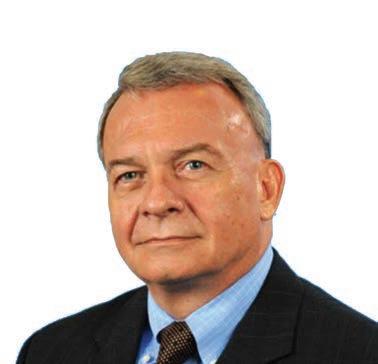
DUE DILIGENCE – KNOW YOUR CLIENT
‘Know your client’ has never been more apt a required skill-set for the observance of, and compliance with global due diligence protocols. Challenges presented by the identification of those who are not only eligible, but also qualified candidates for a government intent on conferring an alternative citizenship remain forever complex in a dangerous and unpredictable world.
CHINA – A DEEP, DARK MARKETPLACE
The largest market for alternative residency and CBI programmes is without equal China, representing nearly 90% of consumer applicants. Due diligence can be a serious challenge when counselling client prospects from China given that sourcing legitimate, verifiable information is at best problematic. Discrepancies or inconsistencies abound.
GLOBAL MARKET DYNAMICS
Global markets are in constant search for a solution to address the current maelstrom of danger and unpredictability which impacts the lives of so many in search of peace of mind and security of person. People in the global community are deserving of a sensible cost-effective solution which corresponds with their desire for a safer, if not better, life for themselves and their dependent family members.
A CONCLUSION: GLOBAL SOLUTIONS FOR GLOBAL CITIZENS
Global diaspora seeks global solutions. Caribbean CBI programmes of Antigua & Barbuda or St. Kitts & Nevis are well-regarded solutions; solutions with a future, a meaningful alternative future. An alternative citizenship and travel document offer a temporal solution for those whose lives inhabit a world unsettled by global events, and who need a multiplier to leverage a different and, hopefully, safer future. We wish to continue working with our community of government relations to keep bad actors out of the CBI system. Having accurate and up-to-date client information is critical to efforts to detect and deter rogue characters who pose as ‘innocent’ consumers whilst seeking alternative legal means of shielding their alterpersona riven with criminal intent.
Note: The author is the son of a migrant from Europe whose father was a five-year-old immigrant to Canada in 1927, an immigrant whose parents sought refuge - not unlike the multitudes of today - from chaotic conflict. The author’s father, the infant migrant from the last century, will celebrate his 96th birthday in Canada this coming November.
111 ISSUE 2 • OCTOBER 2018
“An alternative citizenship and travel document offer a temporal solution for those whose lives inhabit a world unsettled by global events.”



WOrth Noting
LuxuRy BARBAdoS-BASed hoTeL gRoup eLegAnT hoTeLS Coming To AnTiguA
hodges Bay Resort & Spa, due to open its door late 2018, is a new luxury property by elegant hotels spanning nine acres of gardens and located on a white-sand beach on the island’s north coast. Built in a contemporary style, the property will offer luxury suites, penthouses and villas which will boast optional concierge and butler service. As well as its spa, there will be extensive leisure and sporting facilities for all the family.

AnTiguA’S fiRST BuSineSS hoTeL
The marriott Courtyard hotel at VC Bird international Airport will be Antigua’s first business hotel. projected to open in 2020, the hotel, in partnership with gp group JSC and marriott international, will offer 125 rooms, a casino and gourmet restaurant as well as leisure facilities.
deLTA inTRoduCeS new diReCT fLighT

fRom new yoRk To

AnTiguA
Beginning 22nd december 2018, delta will be offering a weekly Saturday service to Antigua from Jfk new york on its Boeing 737-800 aircraft which will complement existing flights to the island from the new york area operated by American Airlines and united Airlines.
phASing ouT The uSe of STyRofoAm pRoduCTS By The end of The yeAR
Through another green initiative, the government of Antigua & Barbuda was the first Caribbean state to successfully ban single-use plastic bags in 2016. The government has now started a six-month process to increase the ban to include polystyrene or Styrofoam containers. These must be replaced by biodegradable and multiple-use products by the end of 2018.
mARRioTT - AuTogRAph CoLLeCTion ReSoRT To open in AnTiguA
Located on yepton Beach on the north-western coast of Antigua, Amavi Beach Resort & Spa will sit on five acres of landscaped gardens next to a 180-metre white-sand beach. with private access to the stunning beach as well as a luxury spa and state-of-the-art fully equipped gym, the luxury property will offer guests the ultimate in luxury and relaxation.
Cip To SuppoRT TeRTiARy eduCATion
universities around the world depend upon endowments to ensure a continuous funding source other than tuition and fees. The parliament of Antigua & Barbuda has approved another option for the Cip: a contribution of uS$150,000 to the new education development fund (edf). The fund, managed by the Cip, will be used to cover the expenses of operating the university of the west indies fourth Campus located at five islands, Antigua. The purpose of the edf is to deliver higher education to the aspiring Antiguan & Barbudan youth today and in the future.
114 The CiTizen
WaldORf asTORia HOTEls & REsORTs OpEning fiRsT nEW-Build REsORT in THE CaRiBBEan in anTigua
Hilton’s luxury brand of iconic hotels, Waldorf a storia Hotels & Resorts, has signed a management agreement with Callaloo Cay Antigua for the brand’s first new-build resort in the Caribbean. The Waldorf a storia antigua is scheduled to open in 2020 and the elegant resort will be located on the south-eastern coast of the island, only 20 minutes from the airport. The property will sit on 30 acres of prime beachfront, with an additional five acres to be developed into a national park.
Wind TuRBinE EnERgy COmEs TO anTigua & BaRBuda

The Government of Antigua & Barbuda has signed a 15 million us dollar energy deal with the french energy solutions provider, Vergnet Group. a cyclone-proof hybrid (wind and solar energy) and windonly power grids will be installed on the islands.
pROTECTiOn Of TuRTlE nEsTing gROunds HigH On THE agEnda
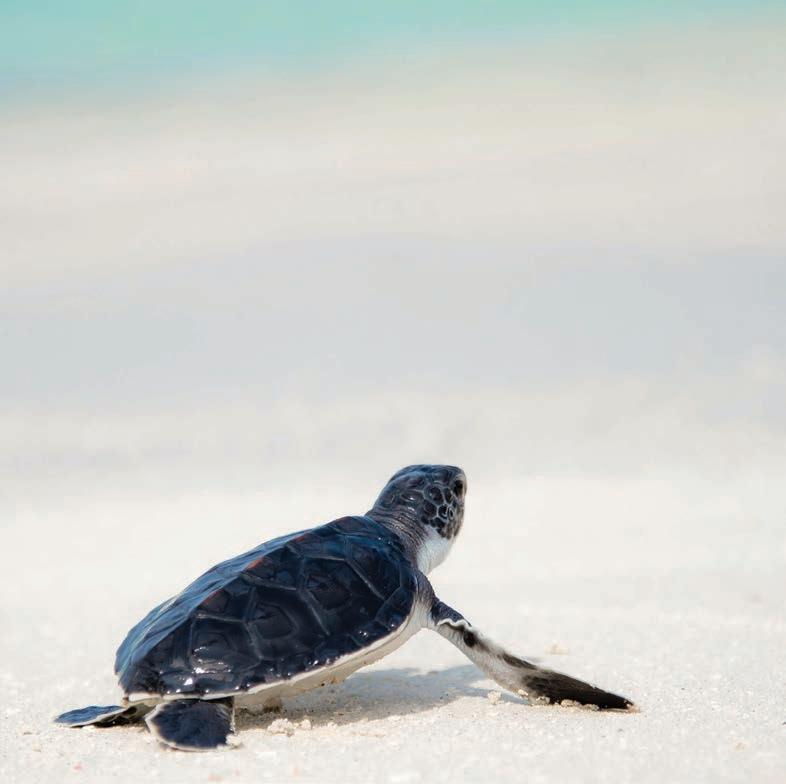
Given that turtle hatchlings only have a one-in-a-thousand chance of reaching maturity, vital measures have been taken to protect the hatching areas of species including the leatherback and hawksbill turtles near Jabberwock and darkwood beaches. These endangered creatures are attracted to illumination believing it to be the sea and thus street lights can disorient both the nesting females and the hatchlings. This makes them susceptible to predators and unfortunately often causes them to be run over by traffic when they wander onto the roads. Thanks to a 10-year long campaign by the antigua sea Turtle project, the antigua public utility authority has now replaced the previously white lights in these areas of the island with red-tinted lEds to avoid these types of occurrences and to safeguard these magnificent animals.
BluE HalO BaRBuda
Blue Halo Barbuda, a collaboration between the Barbuda Council, Government of Antigua & Barbuda and the Waitt institute, amongst others, has adopted new ocean management regulations as well as a no-fish zone around the island to strengthen fisheries management and establish marine sanctuaries so that fish populations can rebuild and habitats recover. Five marine sanctuaries will be established which will protect 33% of the coastal area and make Barbuda the first Caribbean island to put this type of measure in place.
ThE UnIVErSITy oF ThE WEST IndIES To opEn FIVE ISlAnd CAmpUS In AnTIGUA & BaRBuda in 2019
The University College of Antigua will become a college of the University of the West Indies. It will unify all the tertiary institutions on the island, including the antigua & Barbuda Hospitality Training institute and the institute of Technology. The campus will also include departments of undergraduate studies in the school of nursing, department of Business, department of Education, school of pharmacy and department of Advanced level Studies, amongst others.
115 ISSUE 2 • OCTOBER 2018
a gReeneR econoMy
the citizenship by investment program of antigua & Barbuda has financed a solar project which will make the twin-island state one of the greenest countries in the caribbean. More than 12,000 solar panels will generate up to 4.645 Mwh each year and aid, and even surpass the country’s goal to achieve 20% of its electricity from renewable energy sources by 2020. the country’s energy policies also include plans to educate the islands’ residents on how to reduce their electricity consumption as well as the impact of climate change on the country.
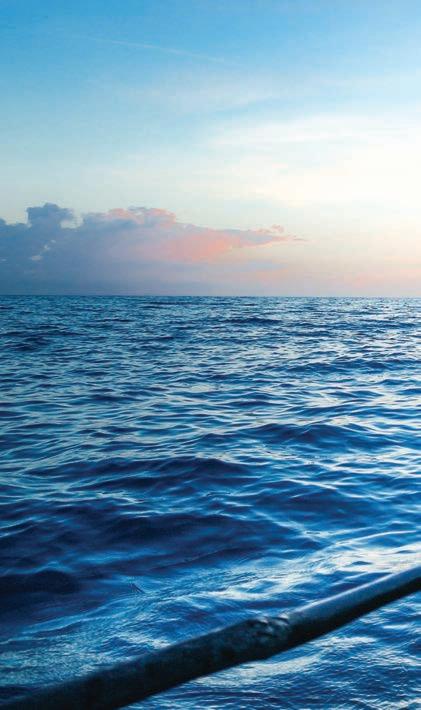

Rosewood selected to opeRate a new ultRaluxuRy ResoRt in antigua
Rosewood Hotels & Resorts together with Replay Resorts are opening a luxury resort on one of the most beautiful beaches in antigua; Half Moon Bay. set to open in 2021, the resort will be situated on 132 oceanfront acres and feature 47 luxury pavilion-style suites including a sumptuous three-bedroom presidential suite. the resort will include sense, a Rosewood spa, a state-ofthe-art fitness centre and two swimming pools. an onsite organic farm and vegetable gardens will provide guests with fresh seasonal produce all year round.
116 The CiTizen
worth noting
Moving towaRds
The “Green” reGaTTa

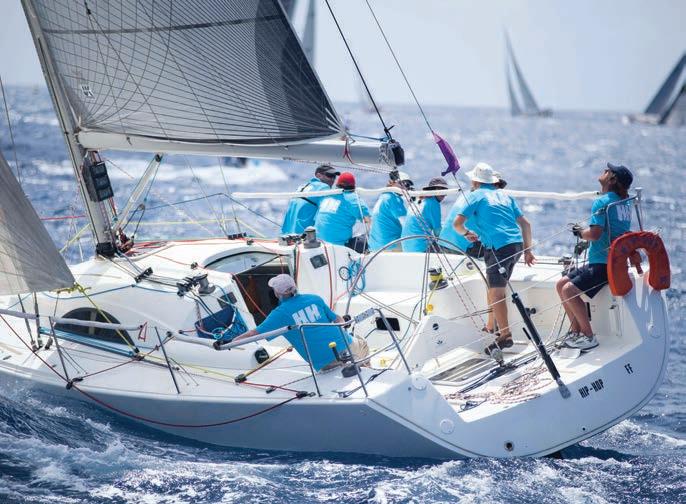
antigua Sailing Week (aSW) is the one of the premier sailing regattas in the world as well as one of the islands’ most important yearly events. Thanks to its green initiatives and innovative approach to waste management and closed seasons for fish and lobster stocks, the event is now considered to be the ‘green’ regatta. By introducing reusable cups at all official events and venues, meant that around 35,000 plastic cups were prevented from entering the island’s landfill during the 2018 regatta.
anTiGua iSland GirlS makinG hiSTory
Team Antigua Island Girls, who are representing Antigua & Barbuda in the 2018 Talisker Whisky Atlantic Challenge are on course to make history. These women are the first female team from antigua and the Caribbean to take part in the 3,000-nautical mile transatlantic row race as well as the first allblack team to attempt this event and indeed to have rowed any ocean. Depending on the trade winds, the journey could take between 30 and 85 days from its start in December in La Gomera in the Canary Islands, to the finishing line in Antigua.
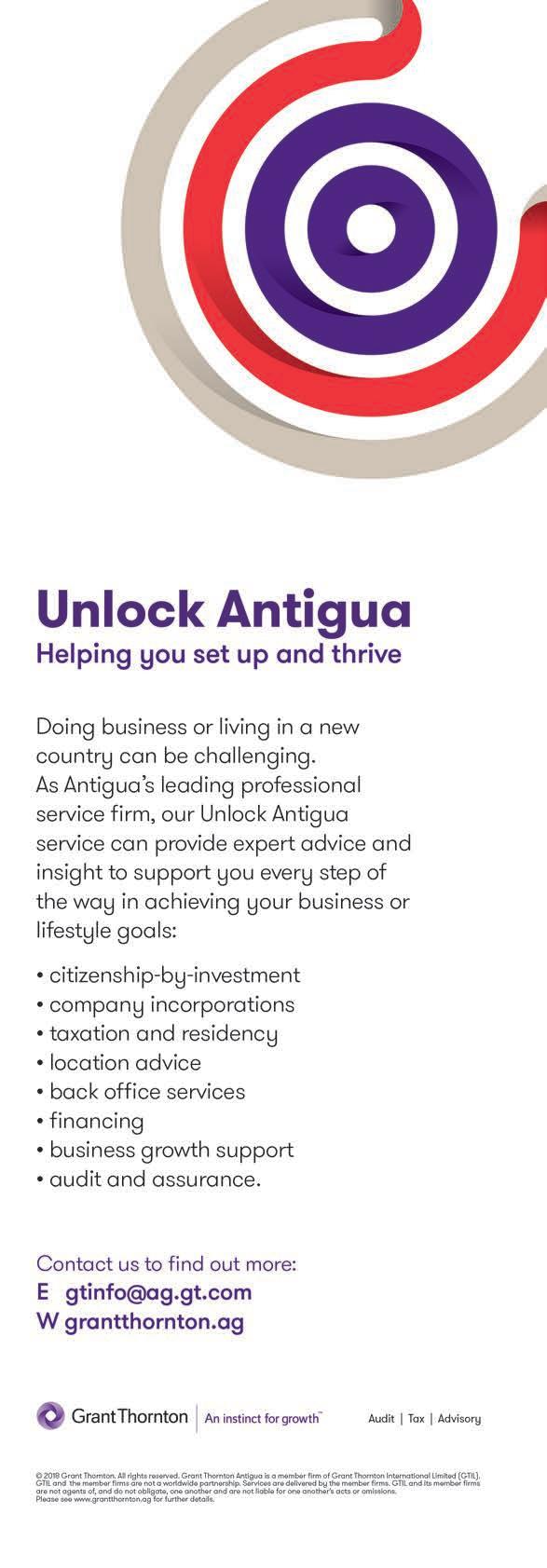
Antigua is the hub of Caribbean yachting


118 The CiTizen
Where can your passport take you?
Explore the world of passports, sorted, compared and ranked. Discover how you can improve your Global Mobility Score by investing in a second citizenship.


Become a Global Citizen®


PASSPORTINDEX.ORG EMPOWERING GLOBAL CITIZENSHIP ®



MONTREAL | ROSEAU | SAINT JOHN'S | PARIS | LONDON | BUDAPEST | PODGORIC A | SOFIA | ISTANBUL | LIMASSOL | BEIRUT | DUBAI | SINGAPORE | BEIJING | ARTONCAPITAL.COM It is all about the future generation. Borders should not be boundaries. Be welcomed, not rejected. Your family deserves it. Discover the benefits of investing in a second residence and citizenship. Contact us for a private consultation. Become a Global Citizen® EMPOWERING GLOBAL CITIZENSHIP ® Arton Capital is the leading global financial advisory firm providing custom-tailored services for immigrant investor programs to government agencies, certified partners and high net-worth individuals and families from around the world. Become a Global Citizen® and Empowering Global Citizenship® are registered trademarks of Arton Capital. FUTURE@ARTONCAPITAL.COM | T +1 268 764 8634 A world without borders 25, MANDOLLIN PLACE, FRIARS HILL ROAD, SAINT JOHN'S ANTIGUA AND BARBUDA





 Honourable Gaston Browne Prime Minister
Honourable Gaston Browne Prime Minister


















































































































































































